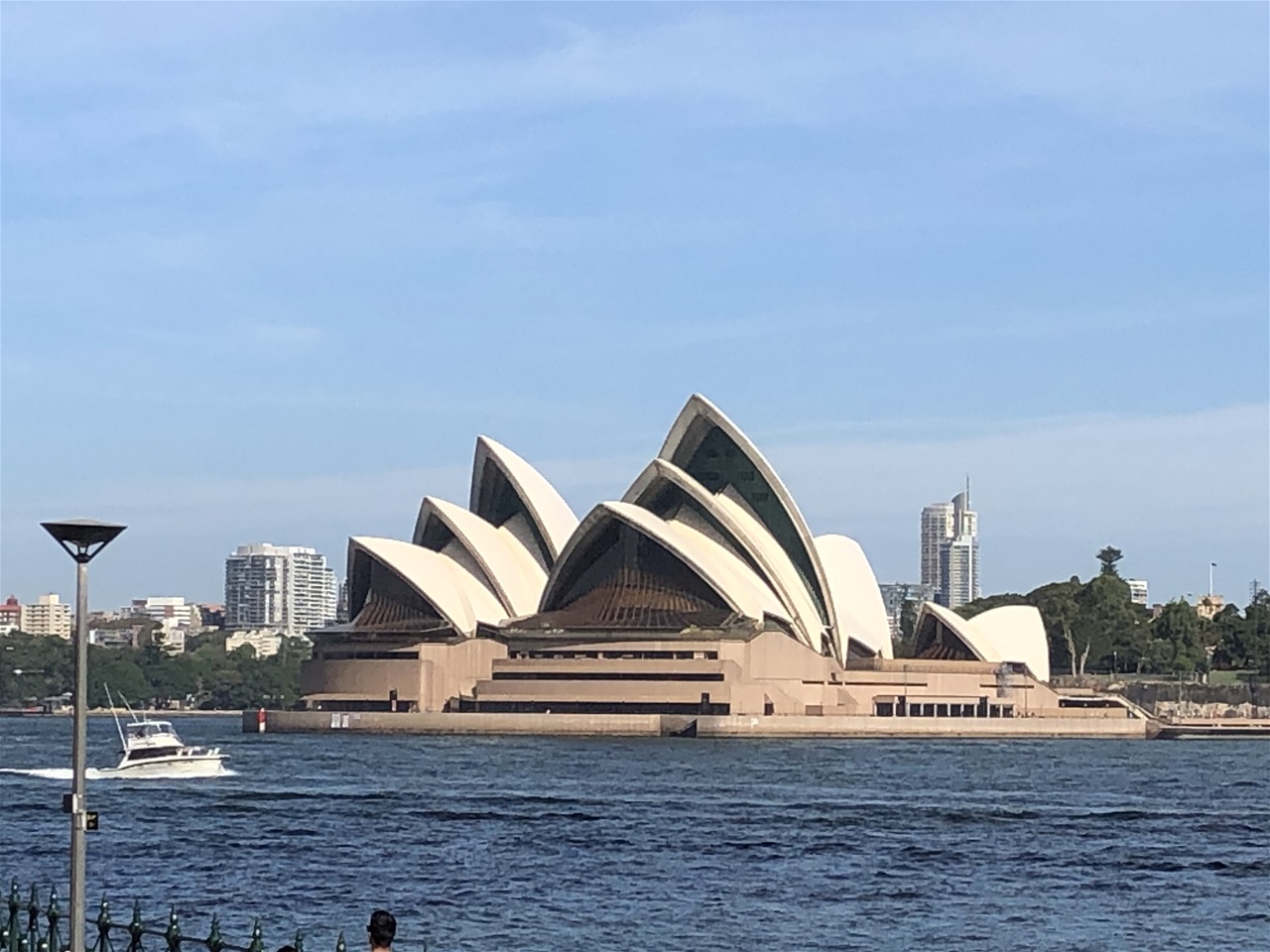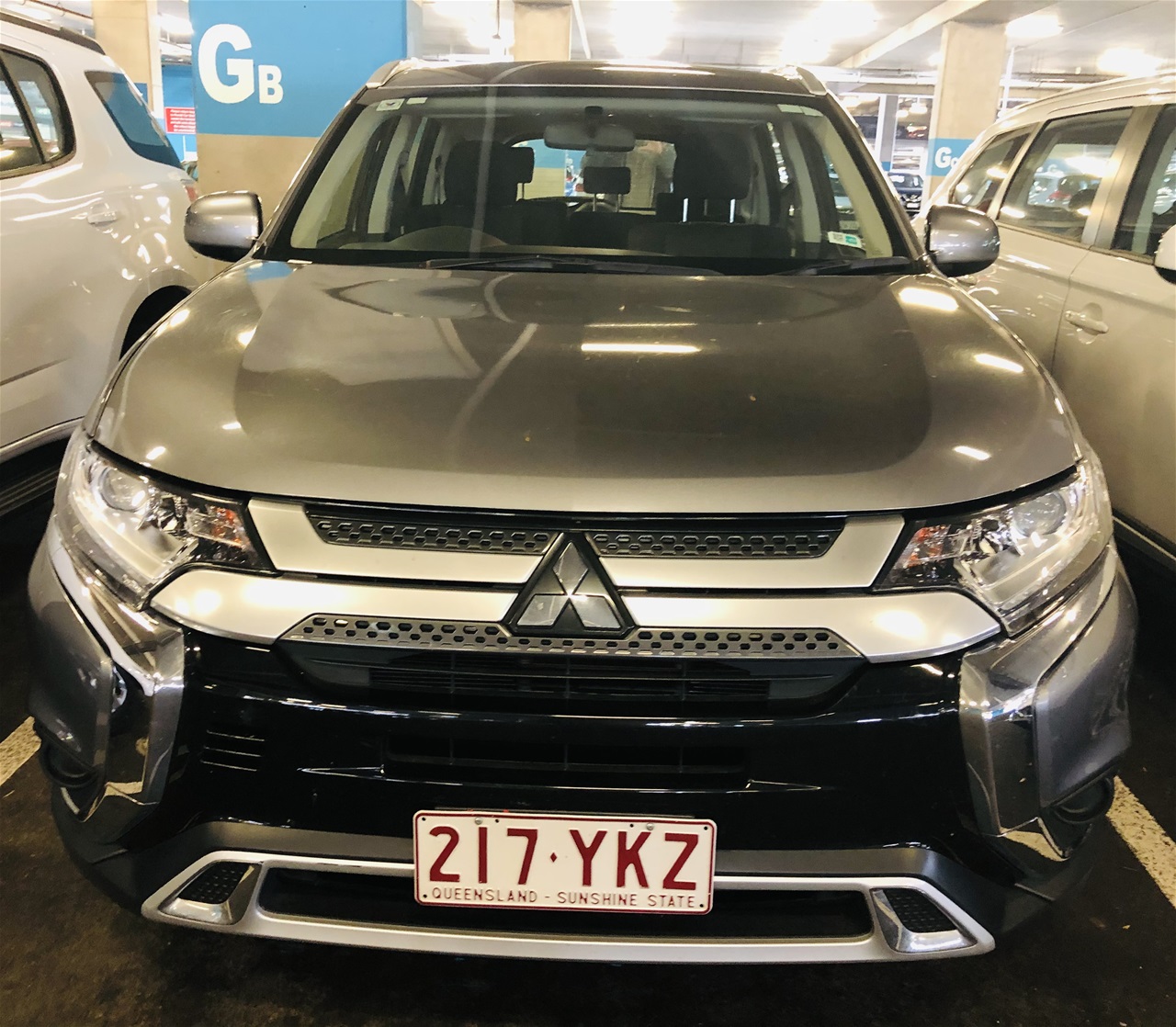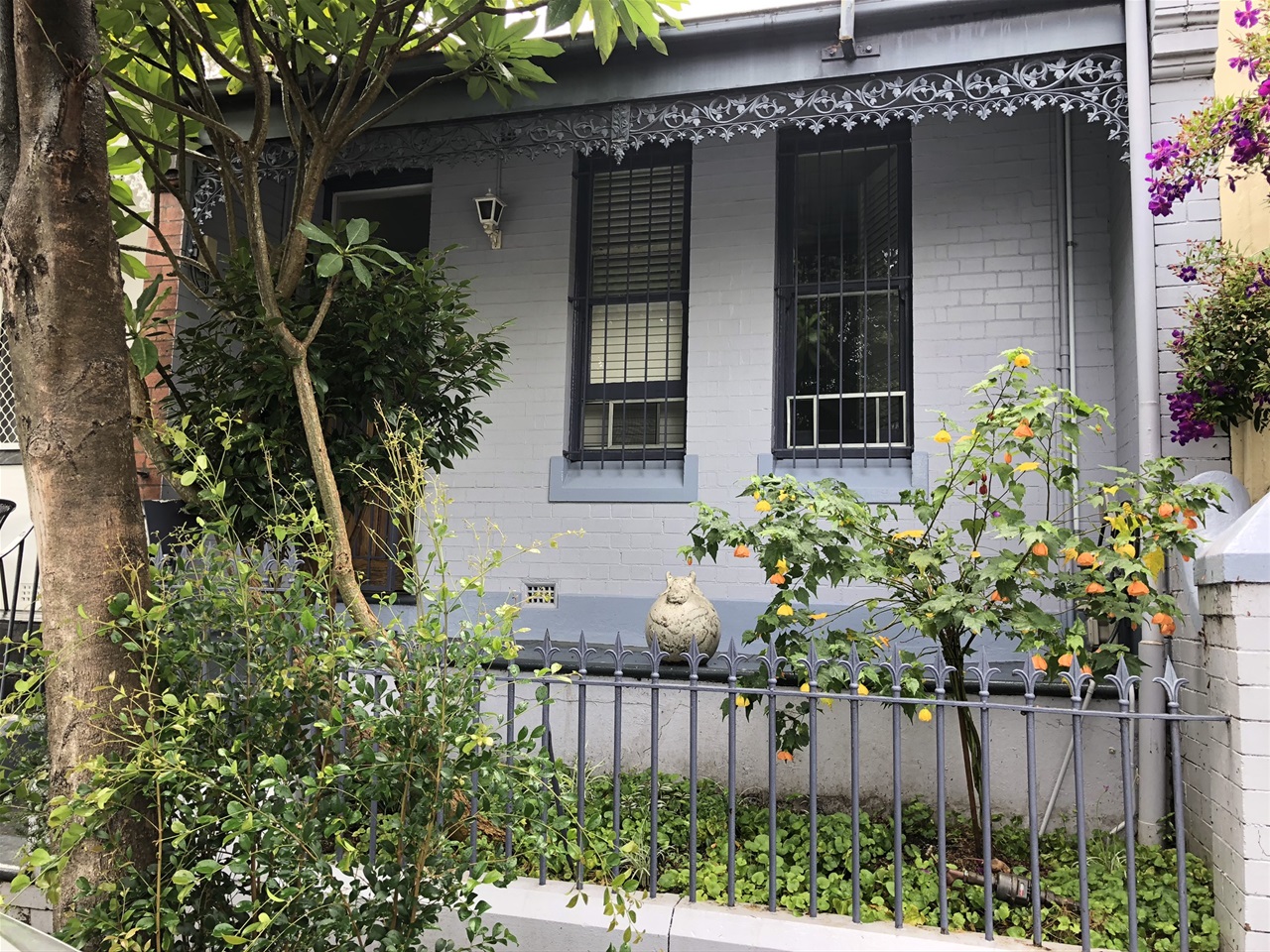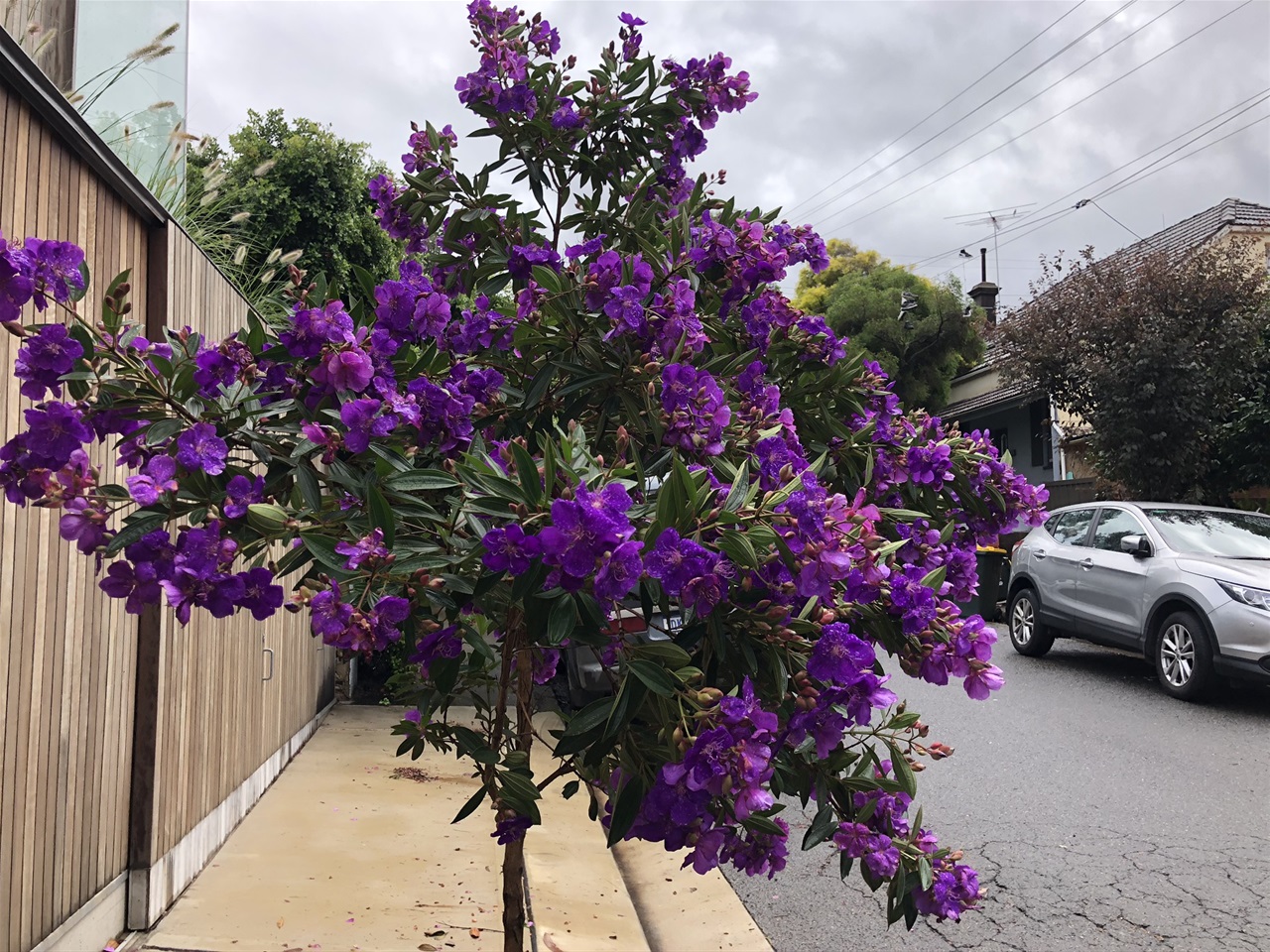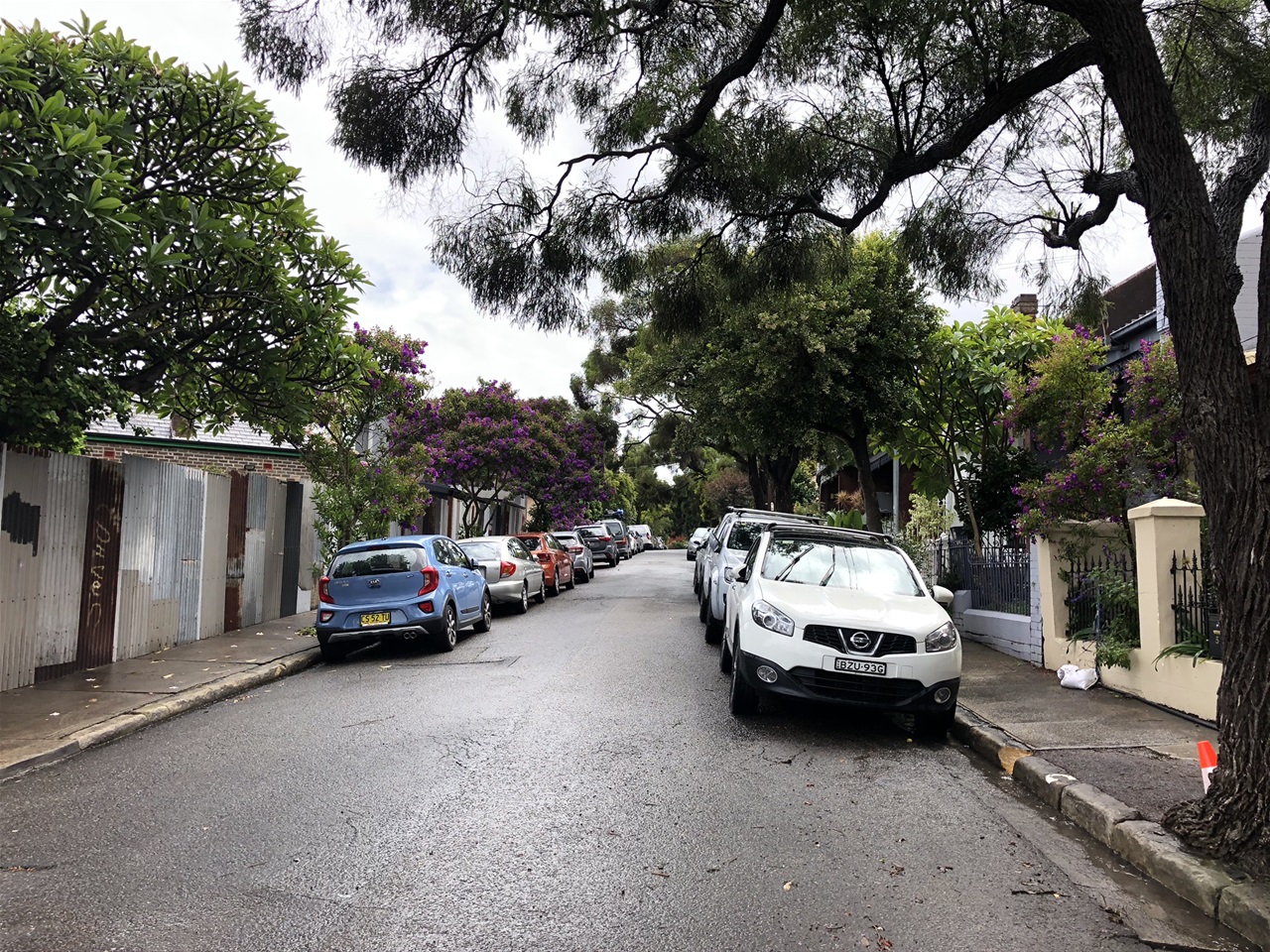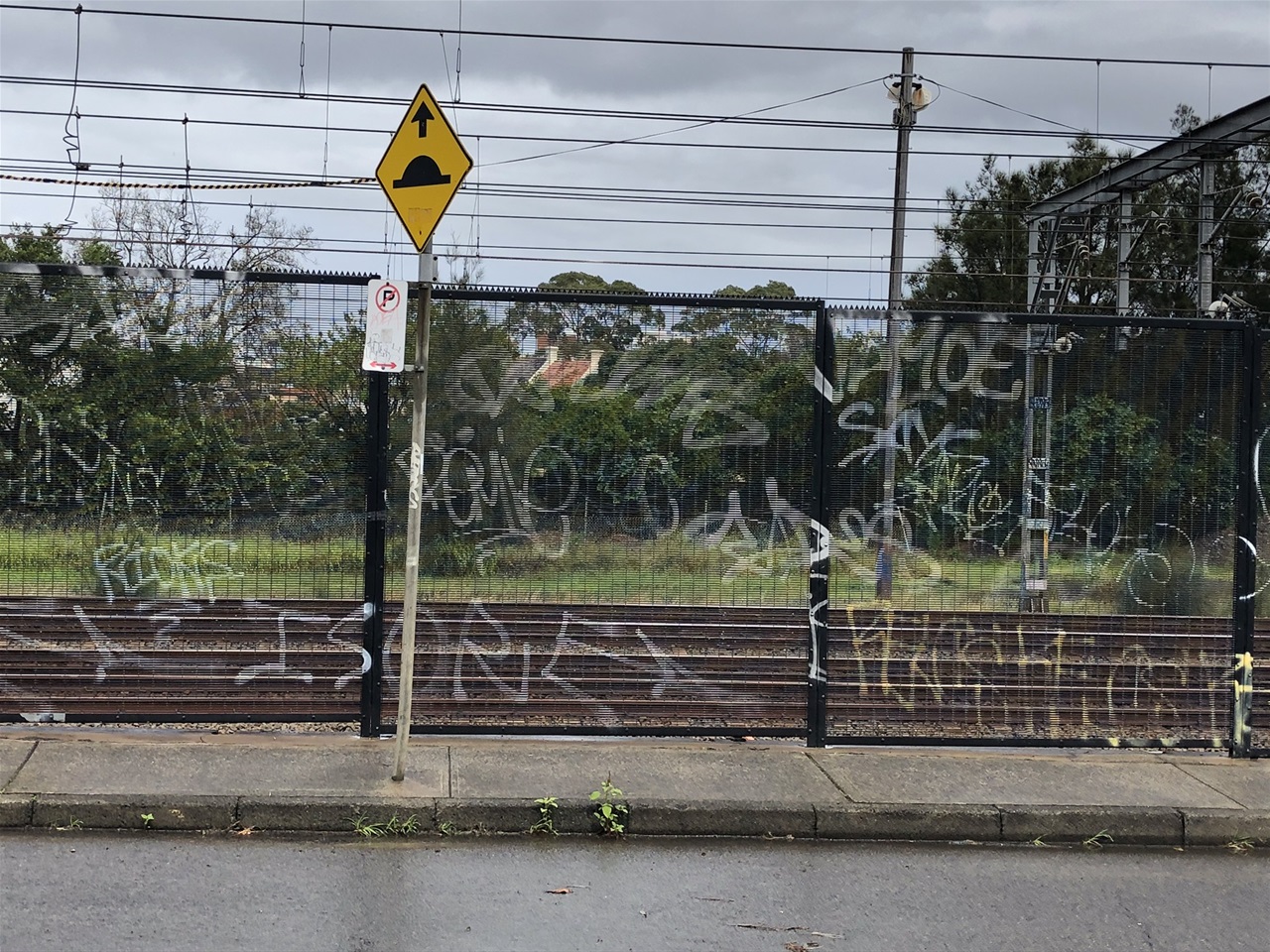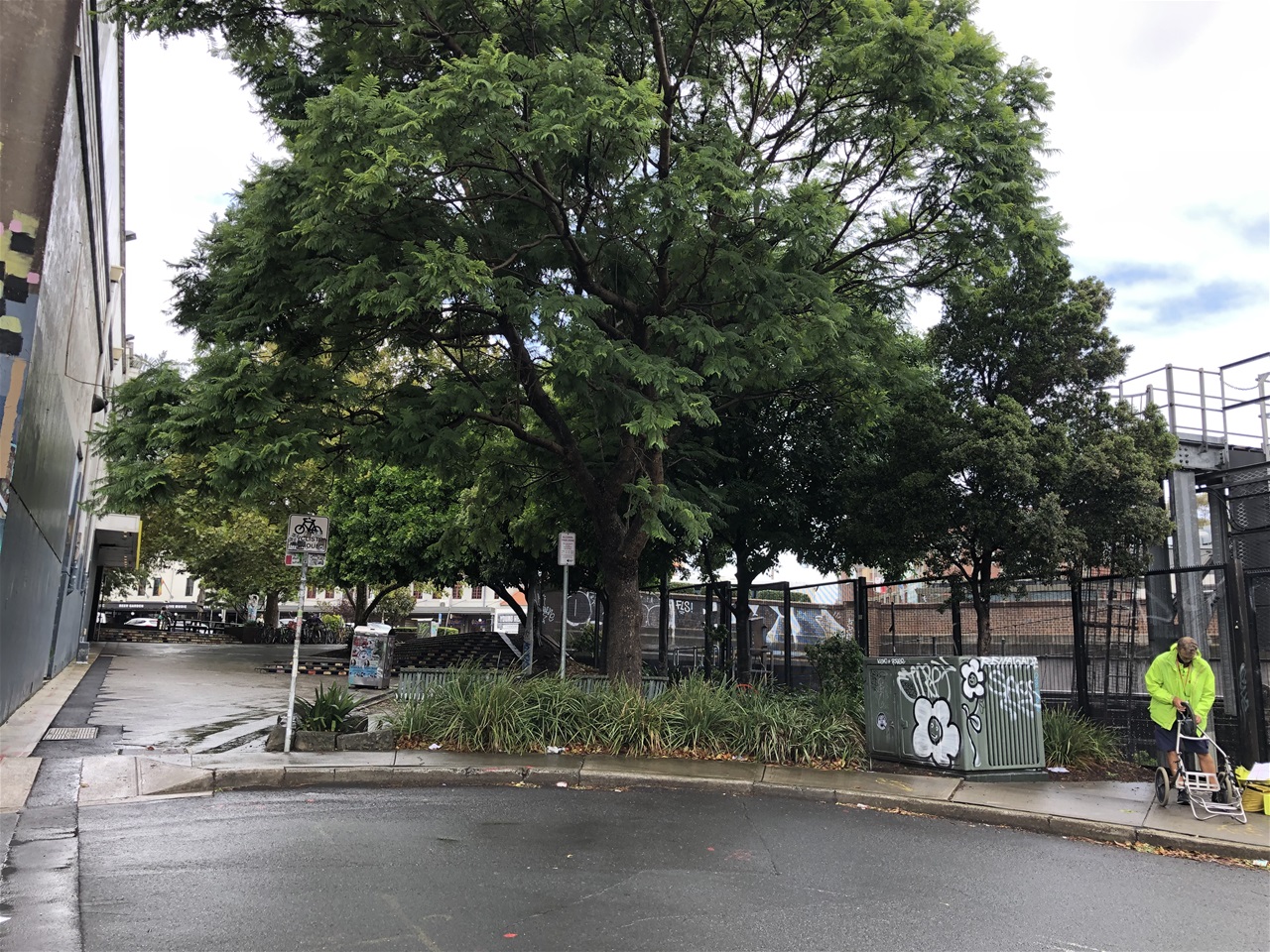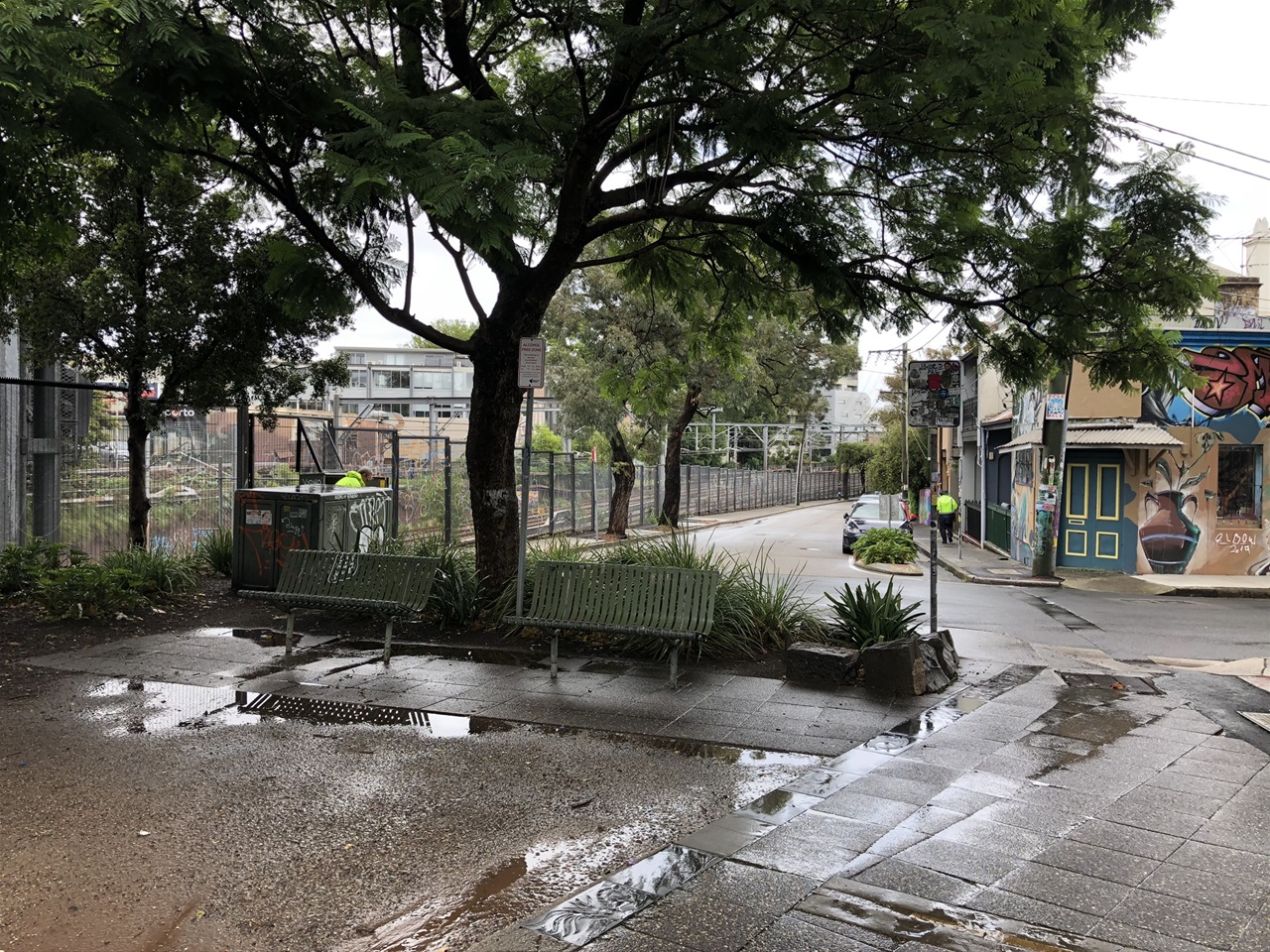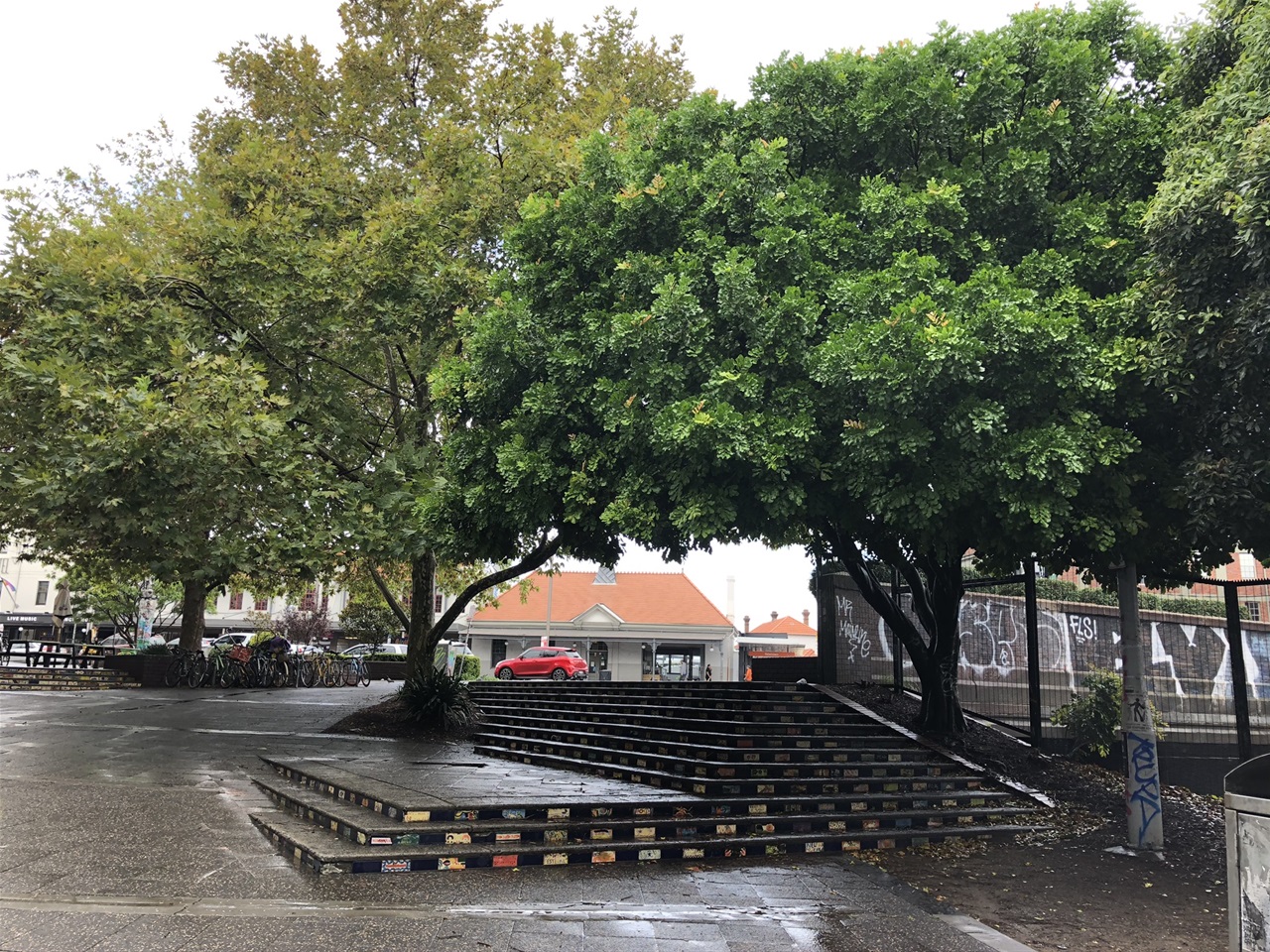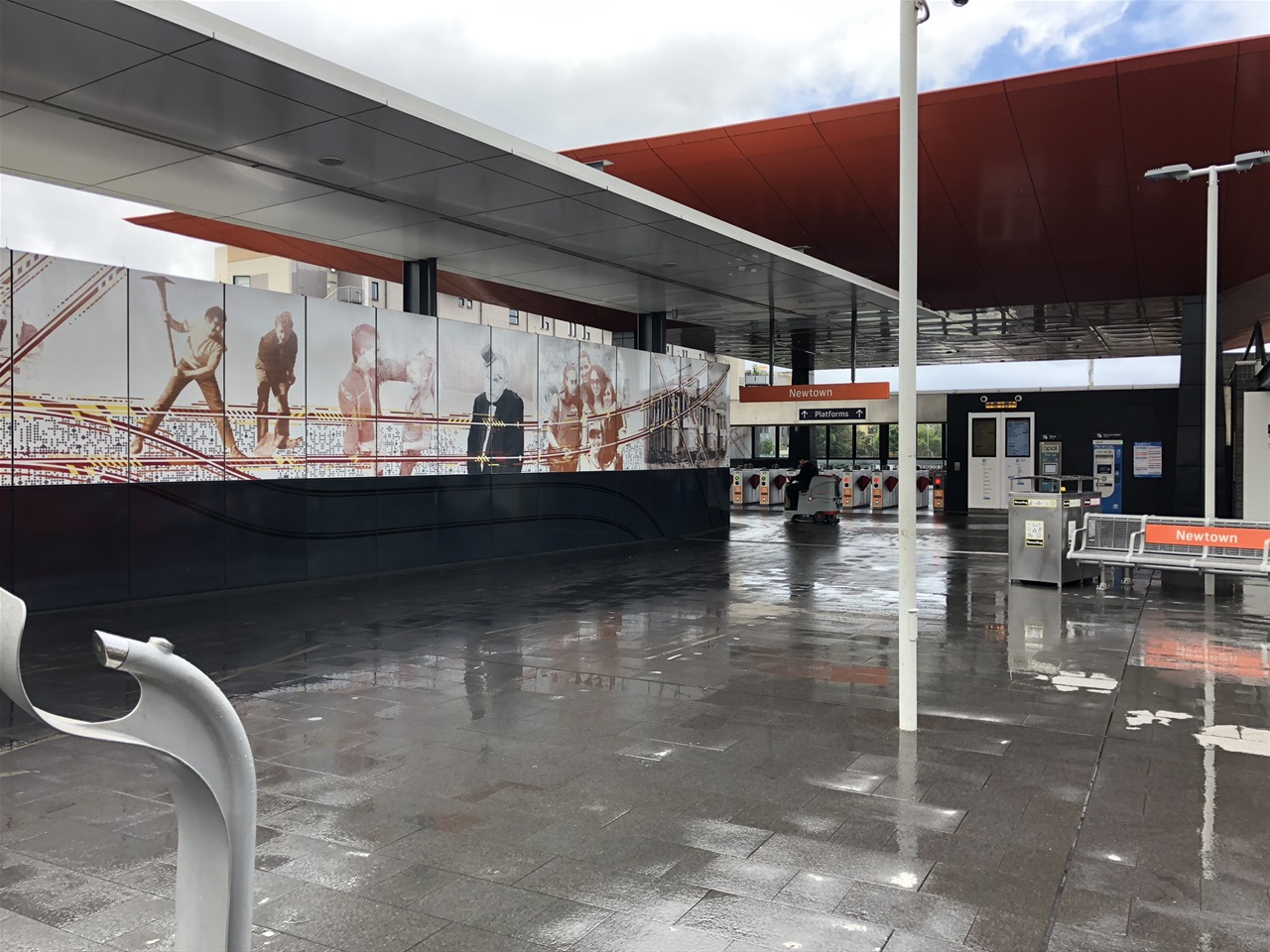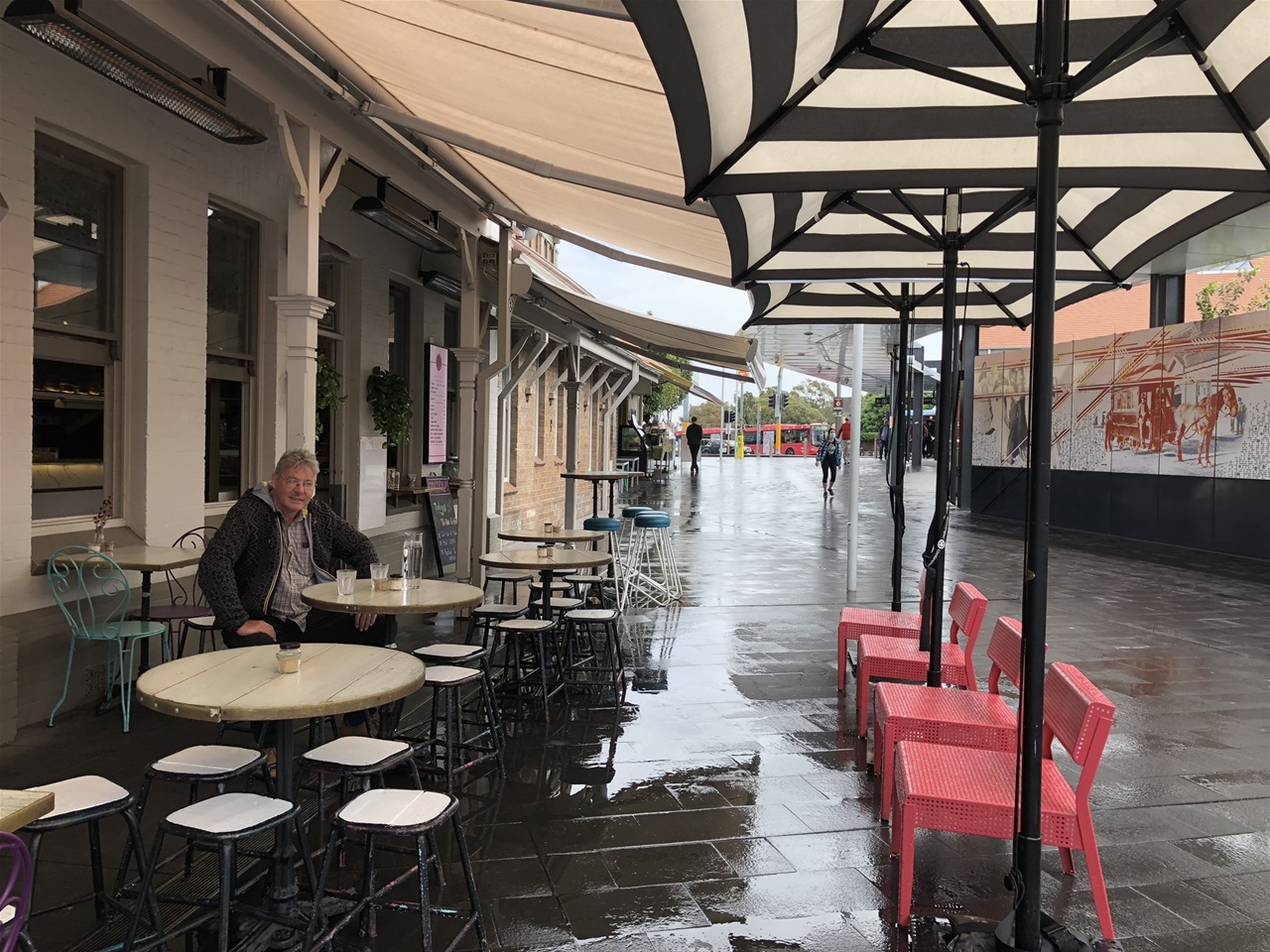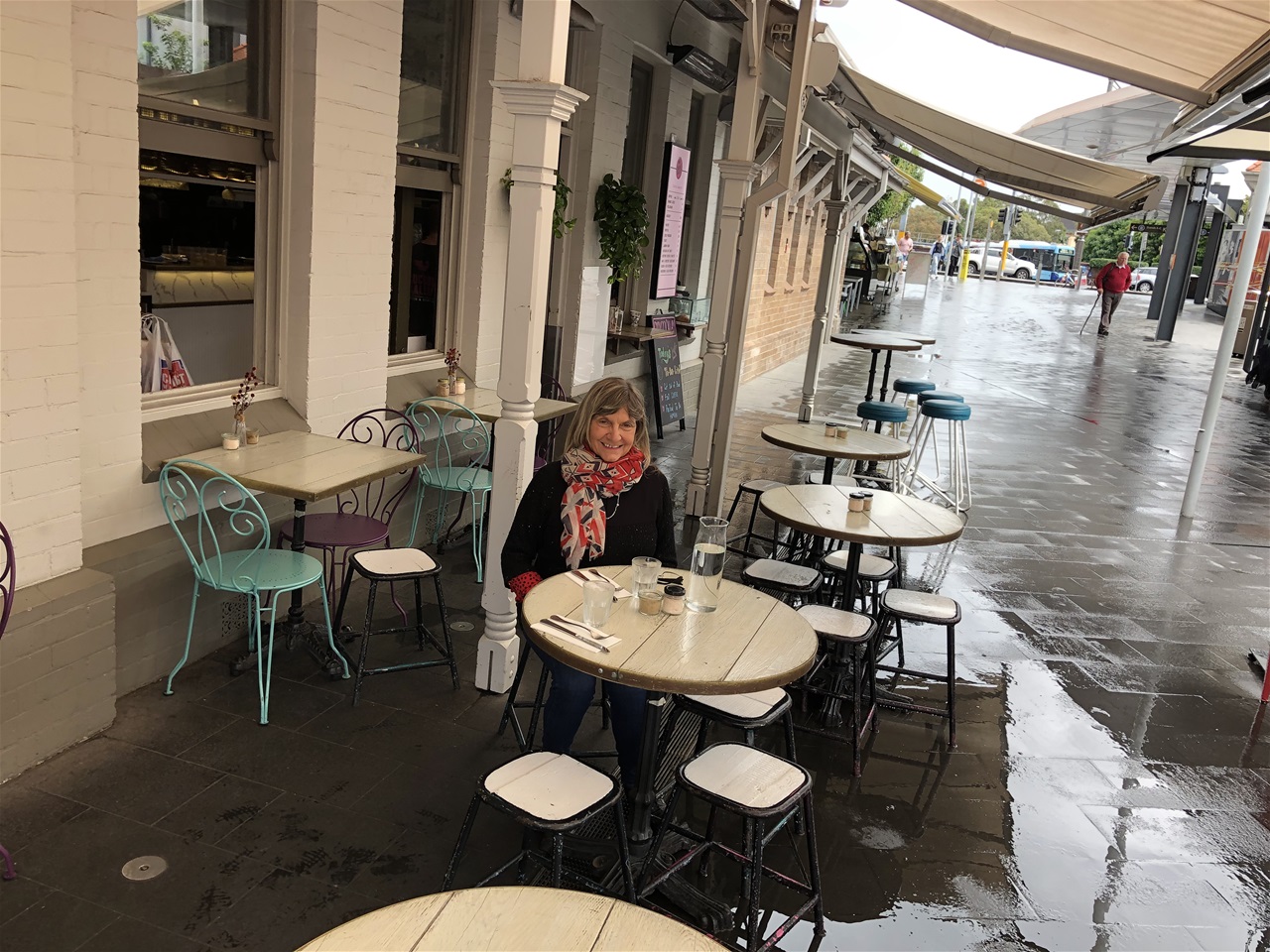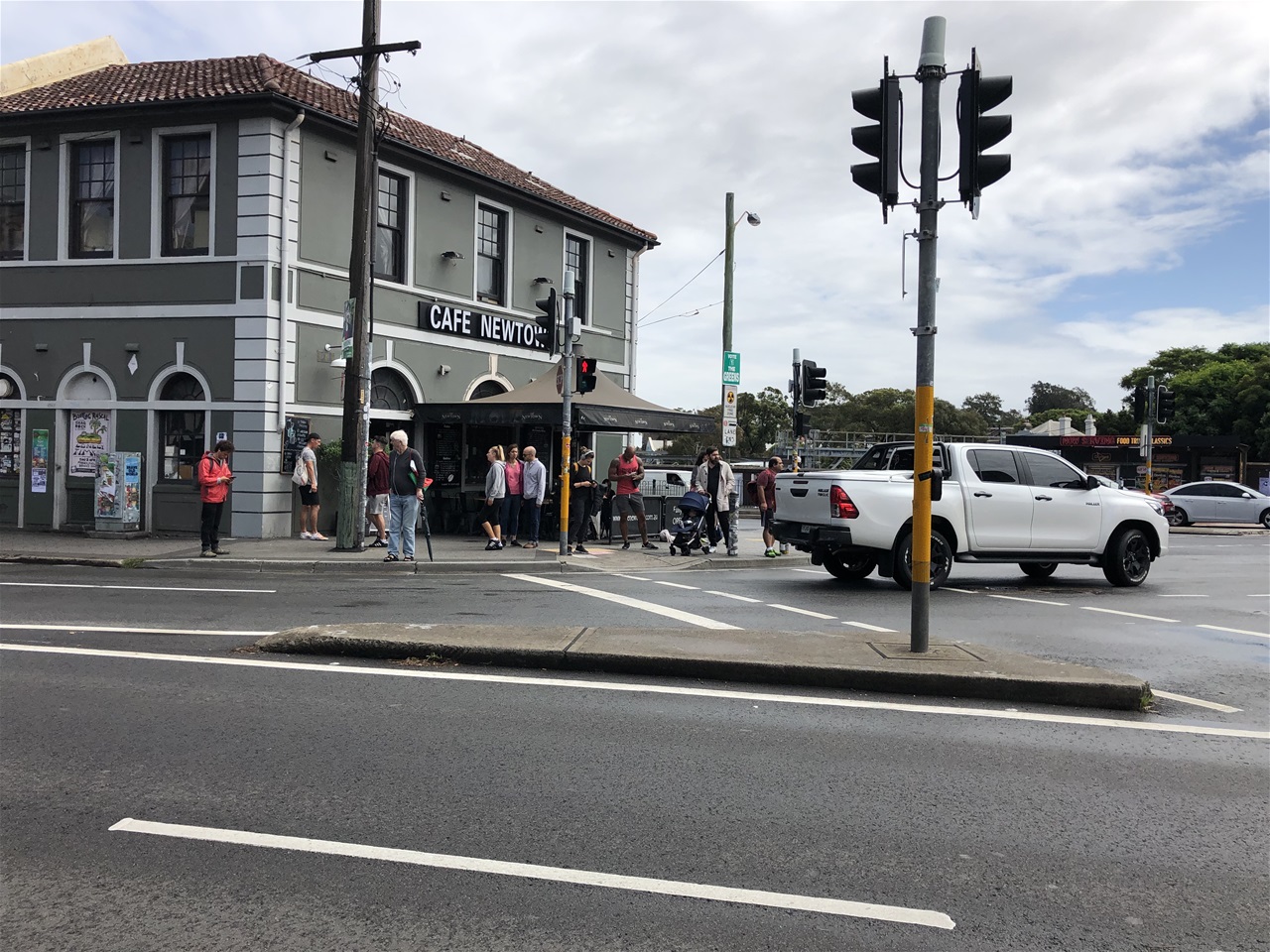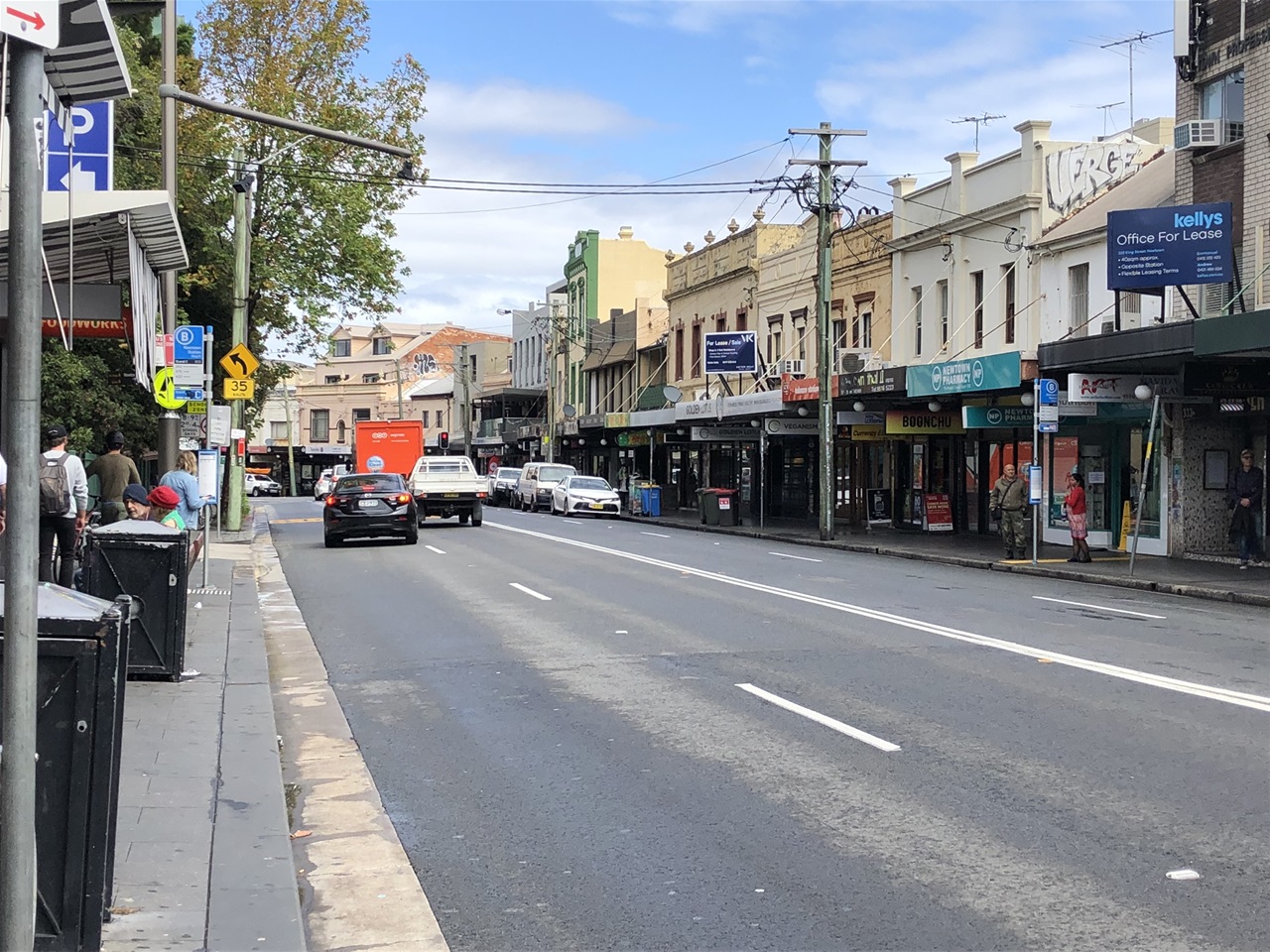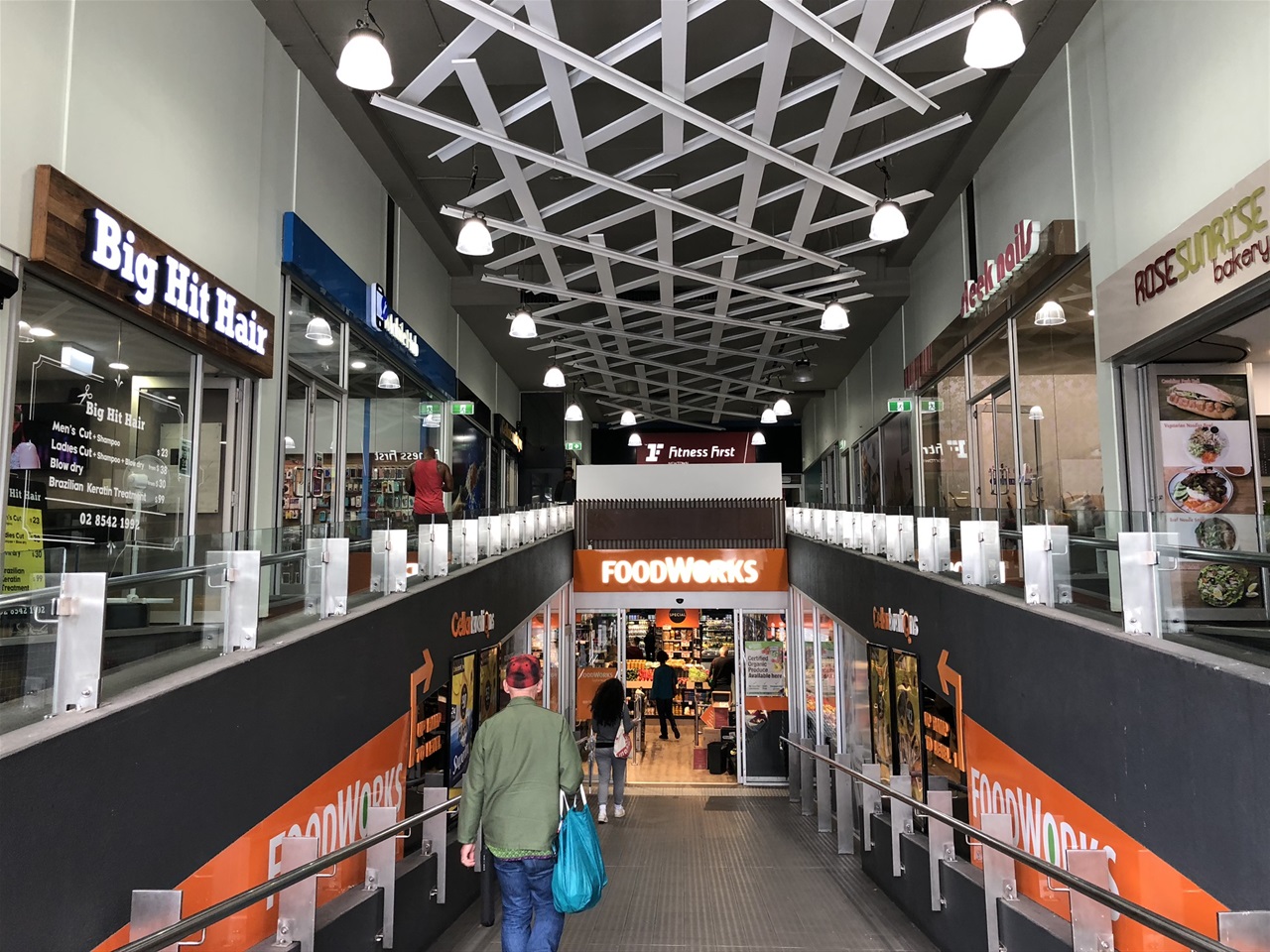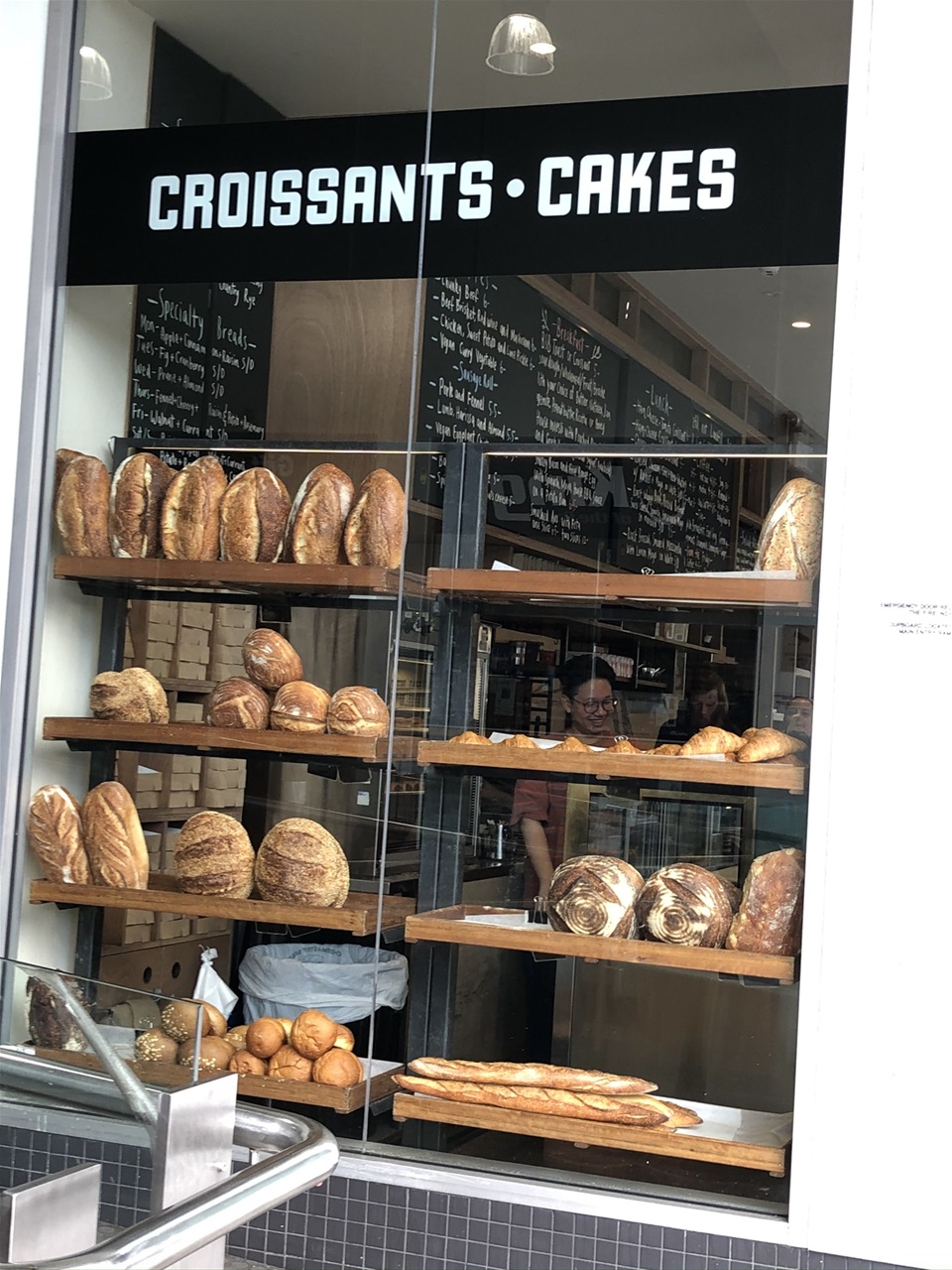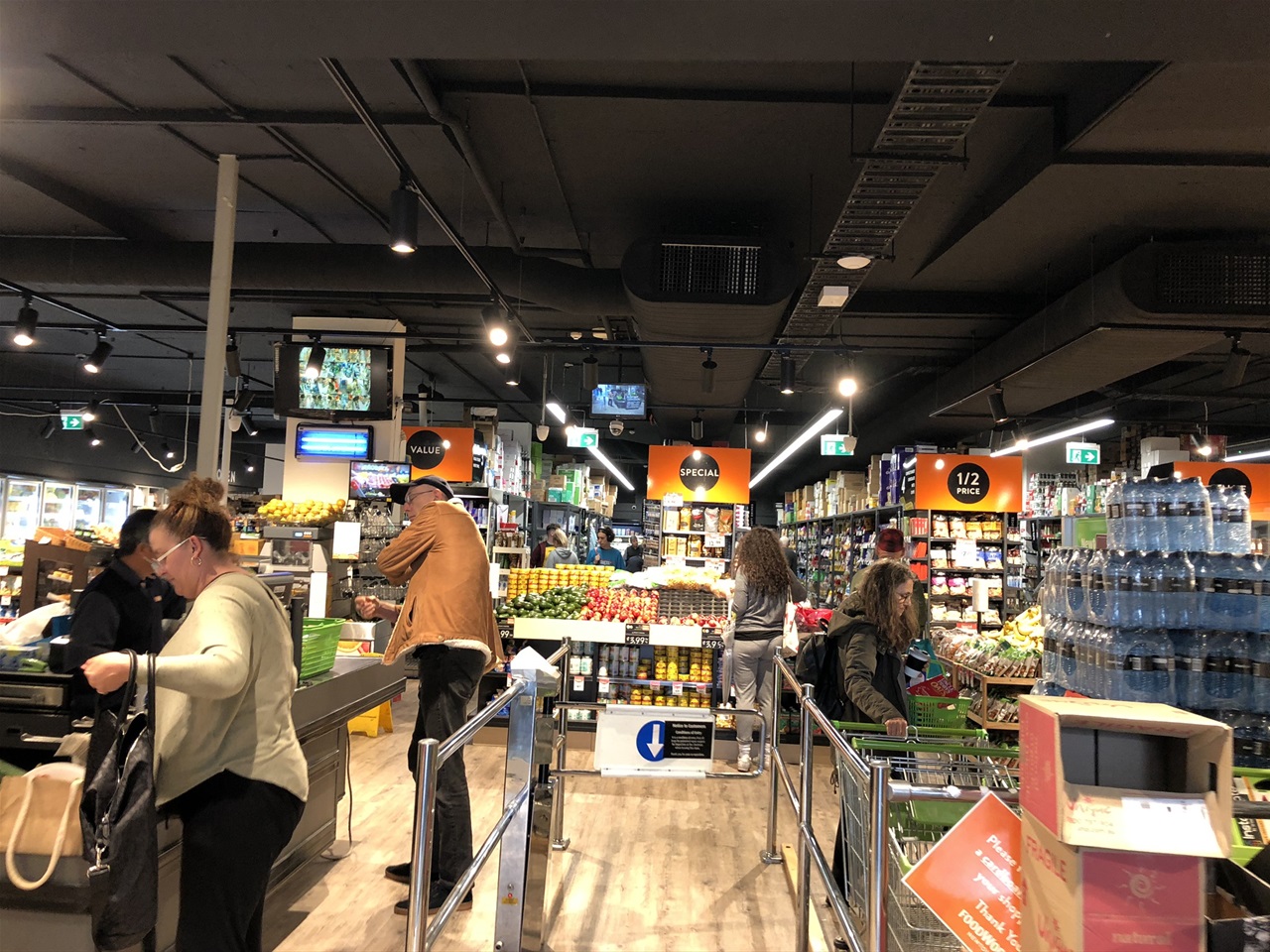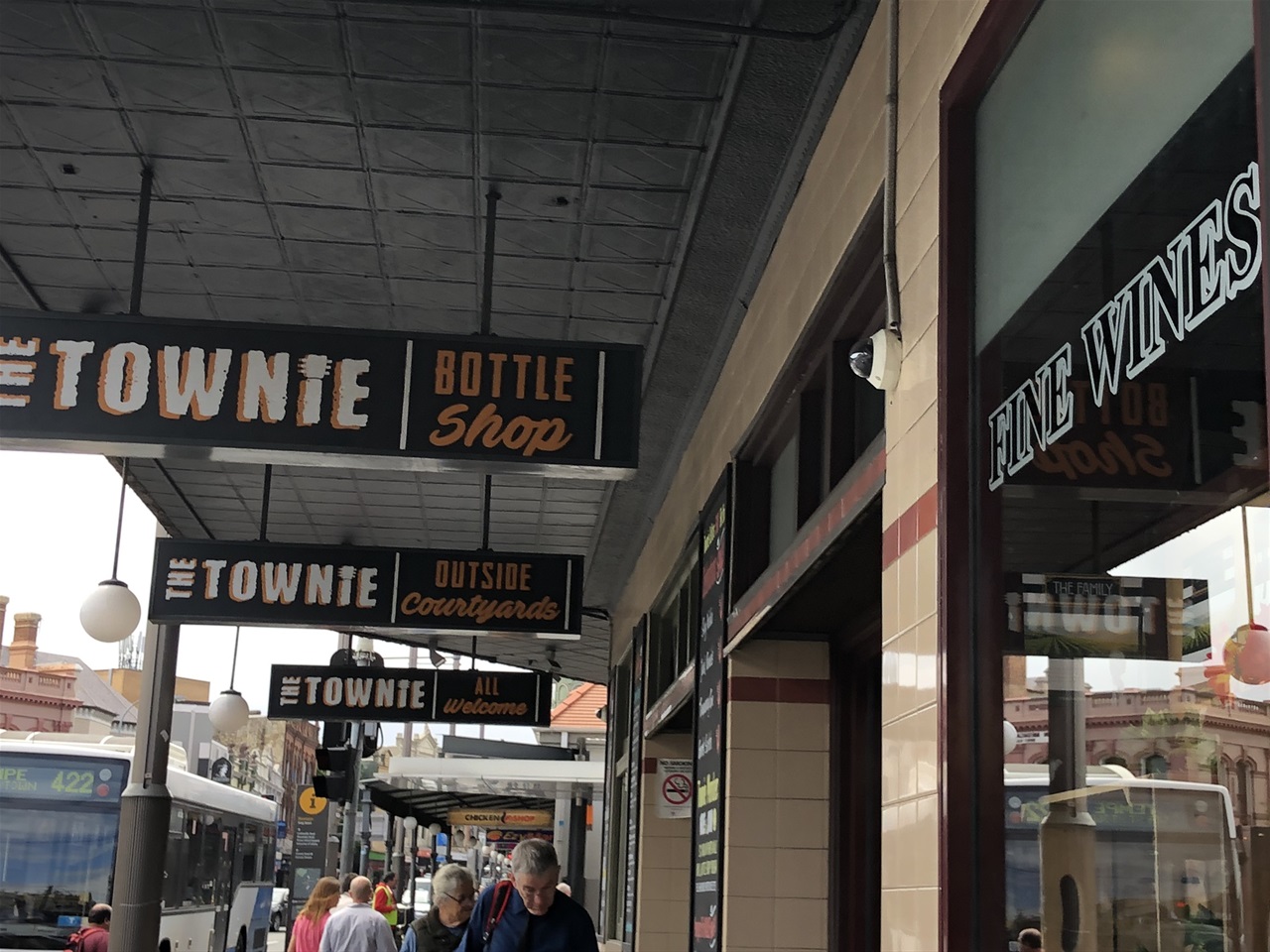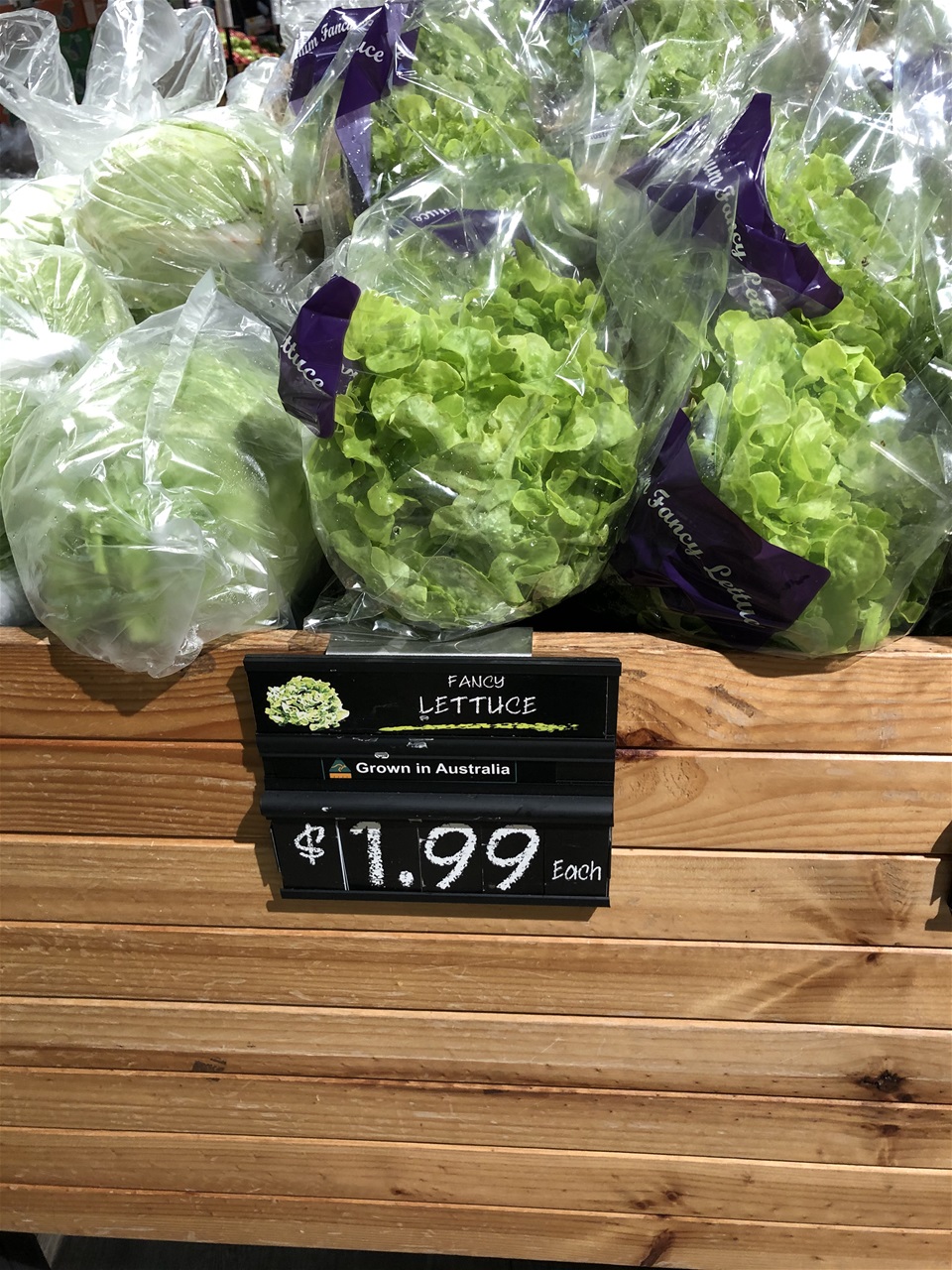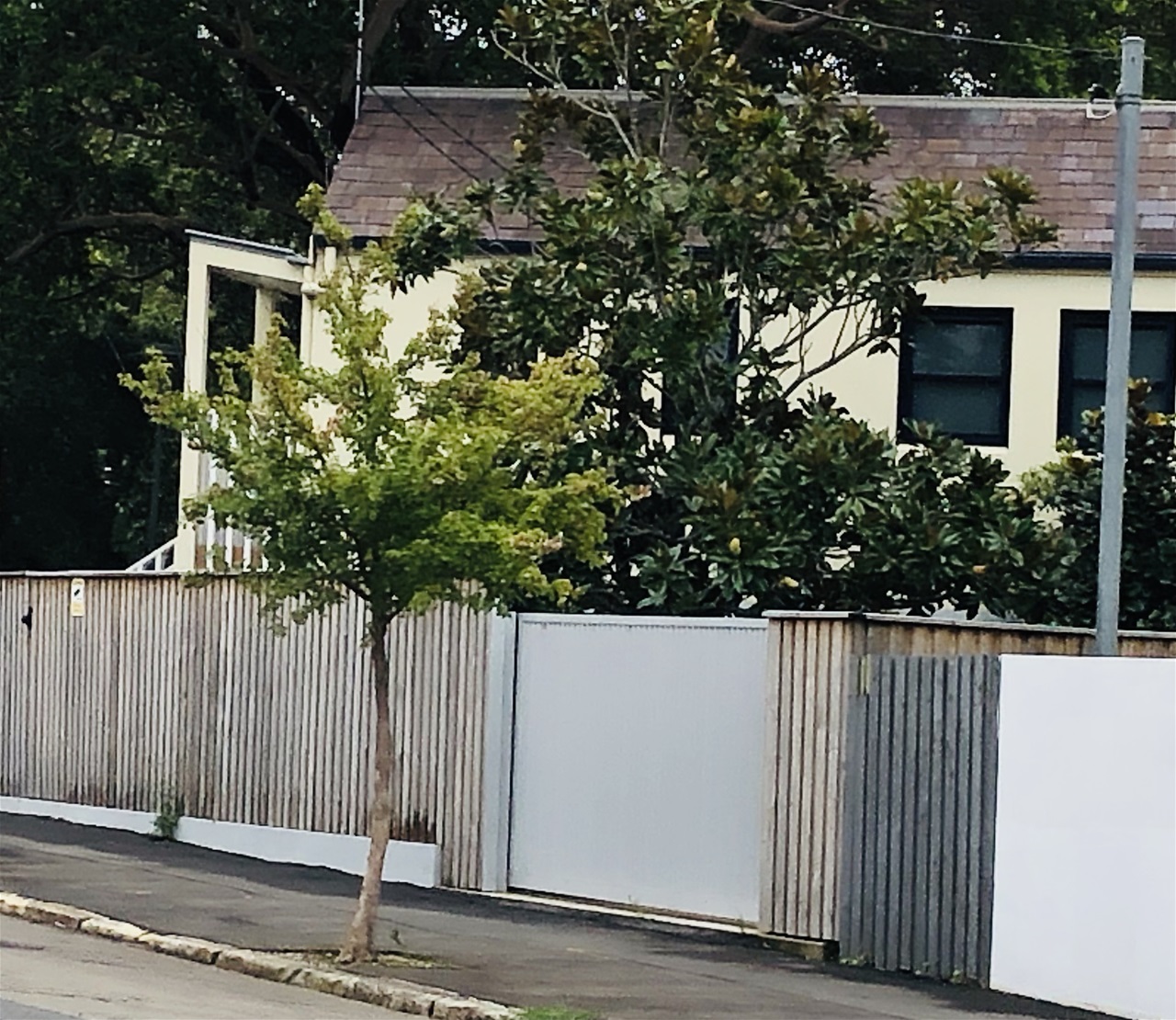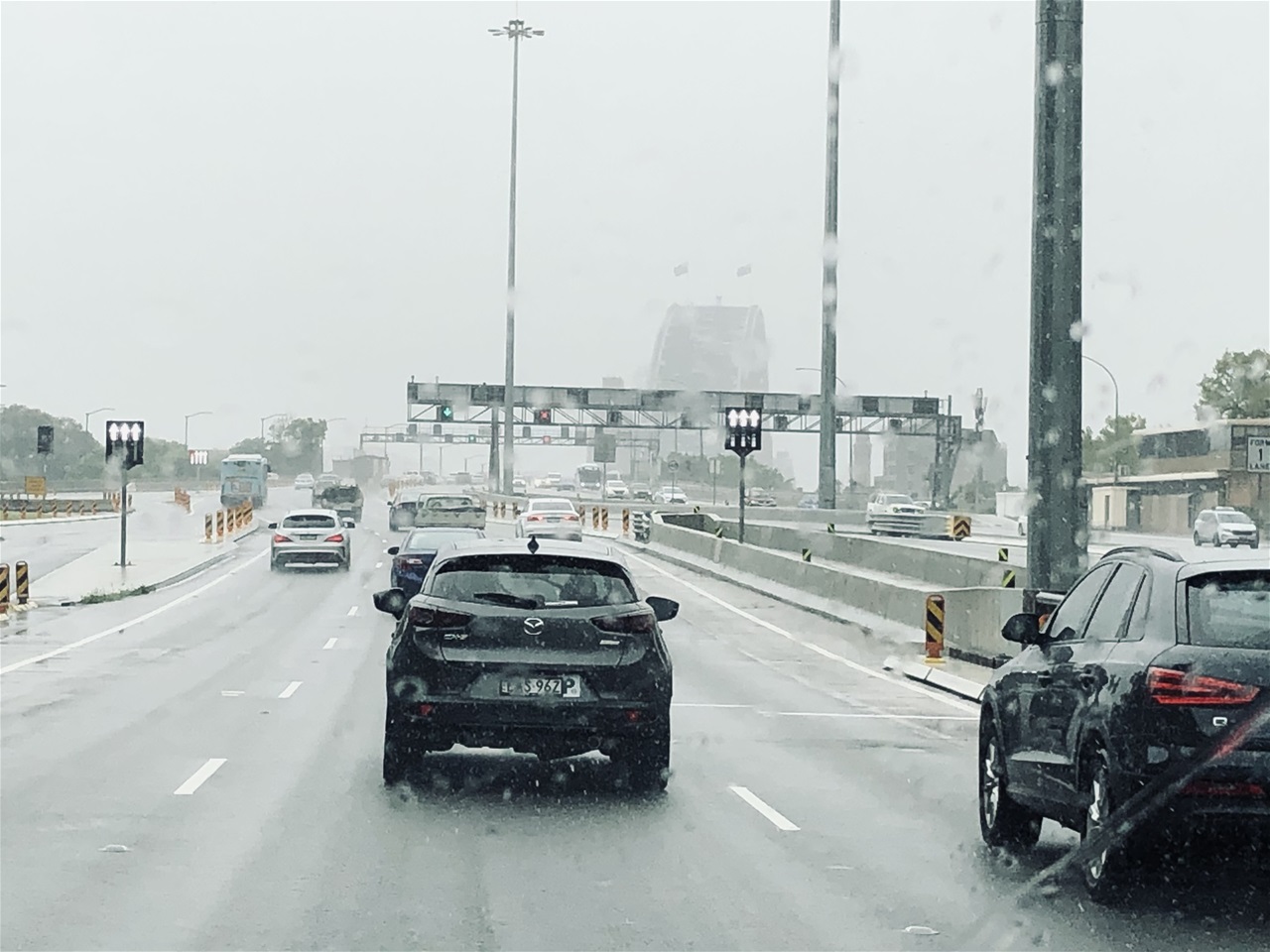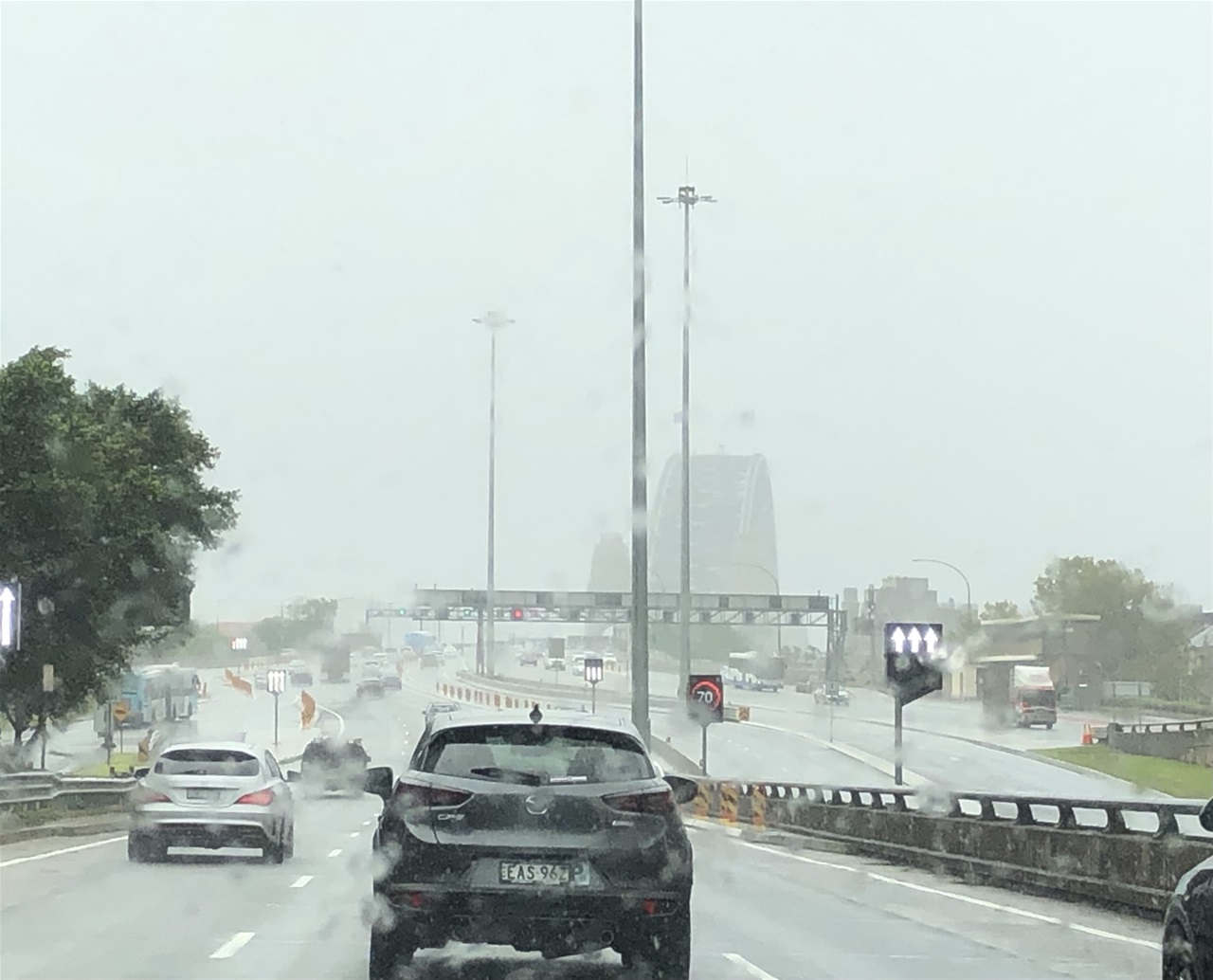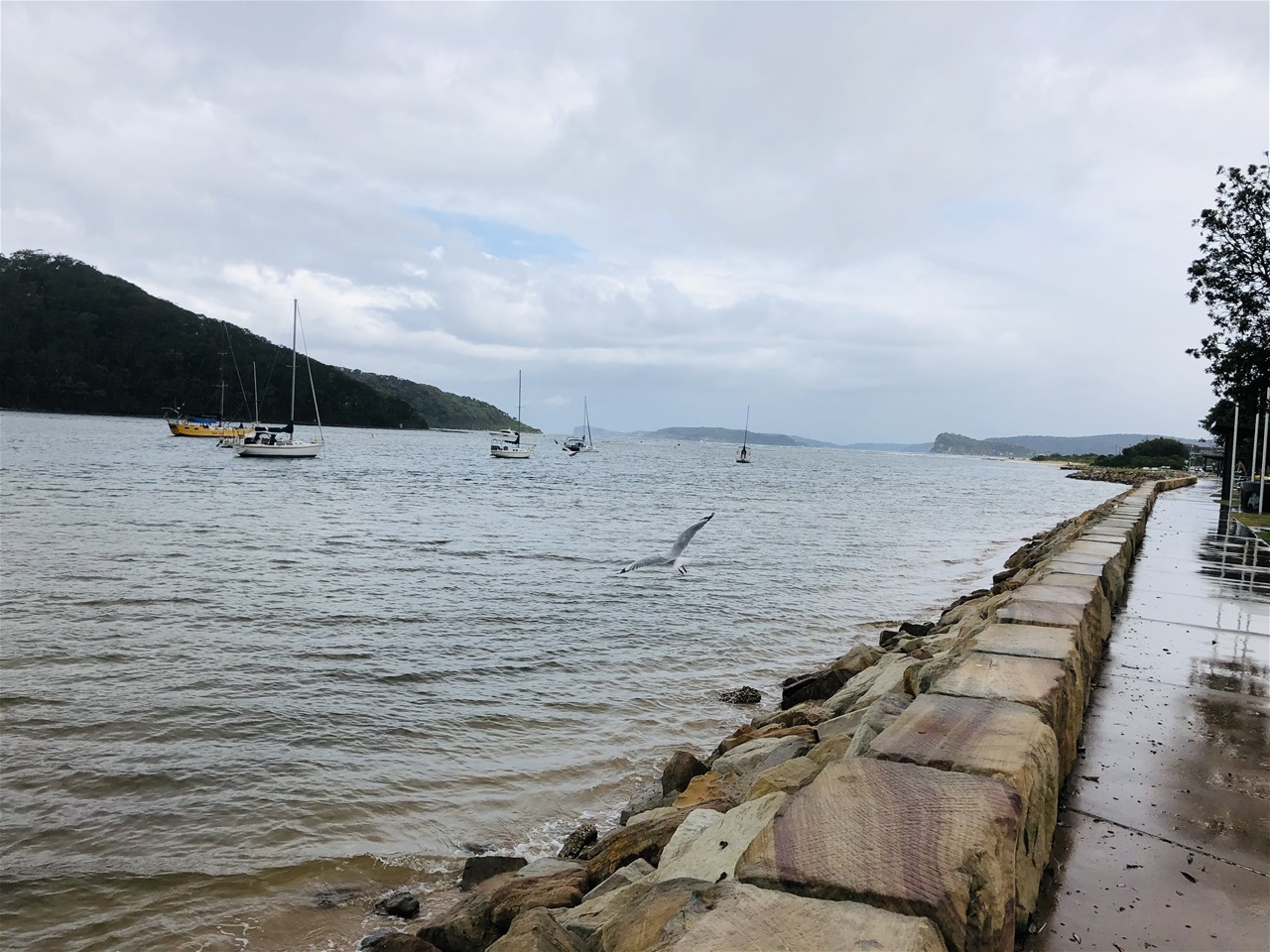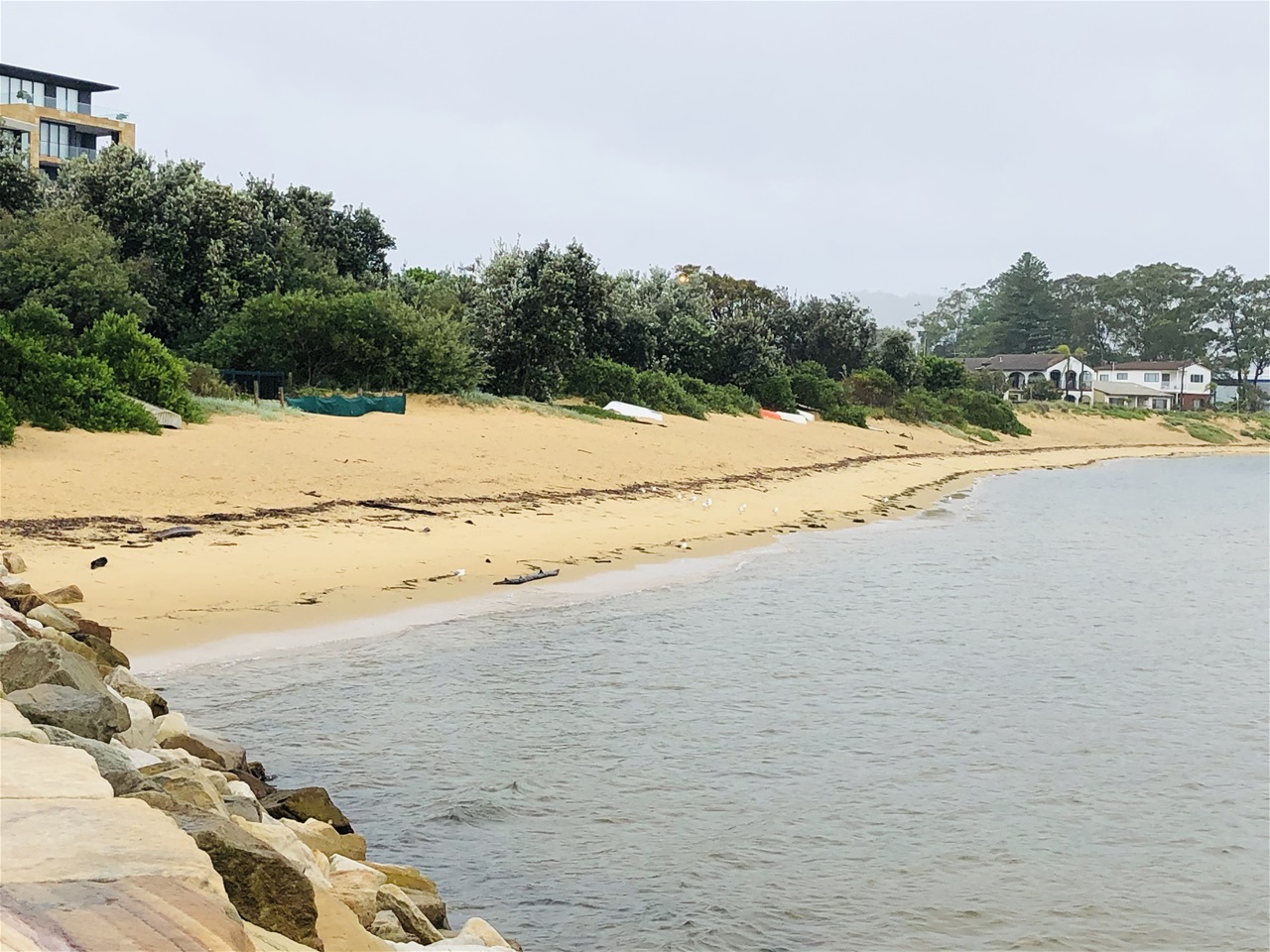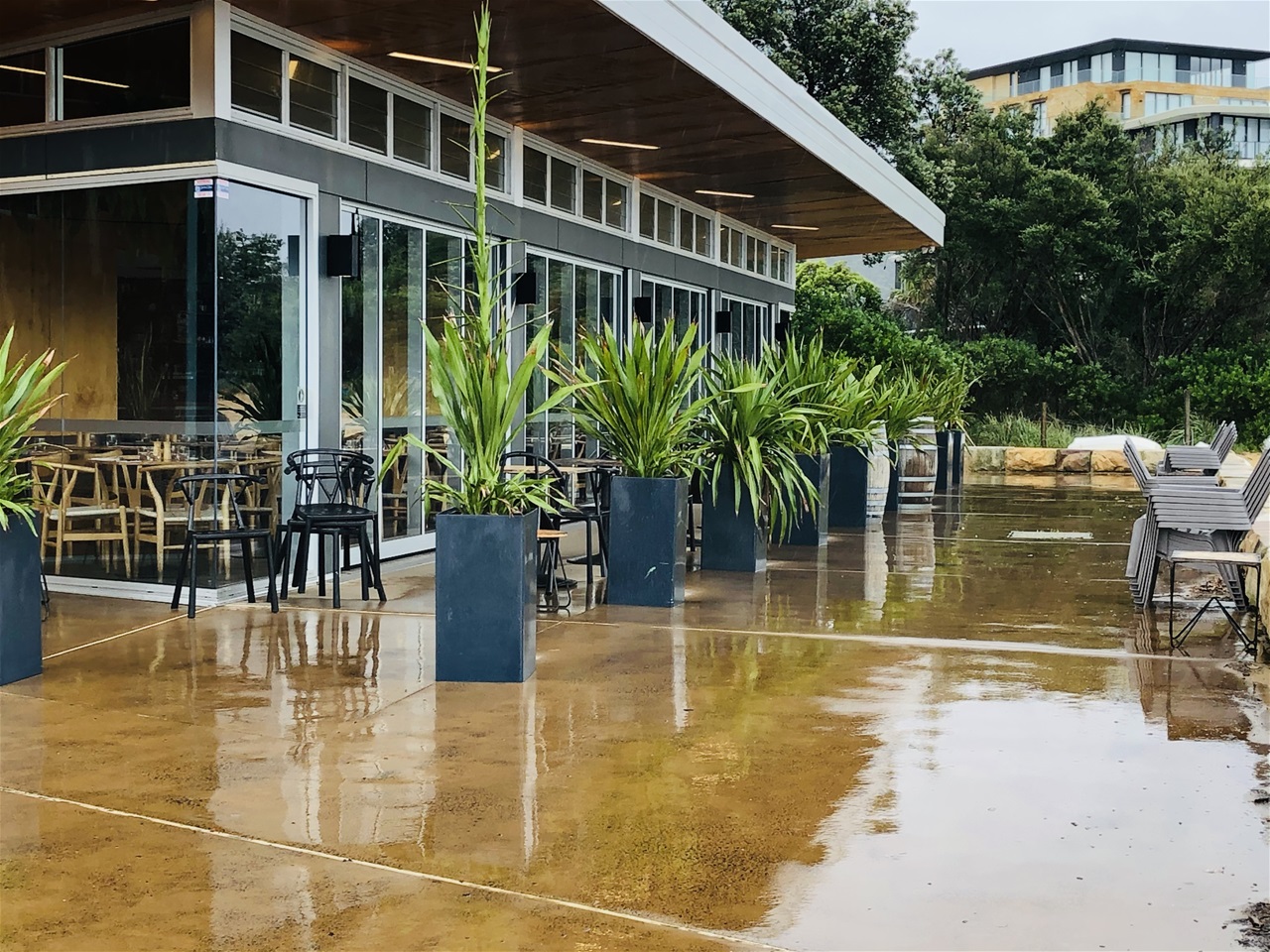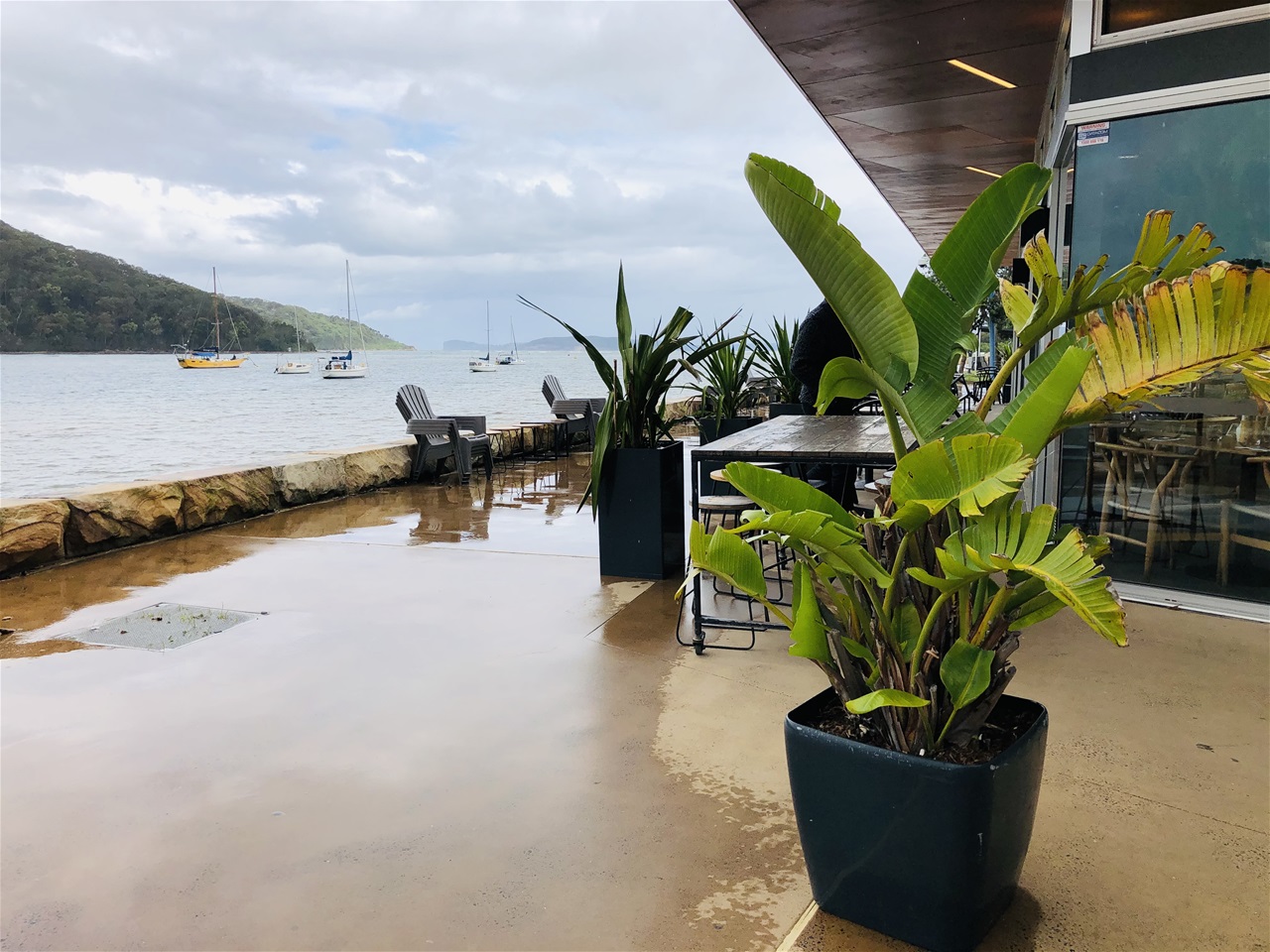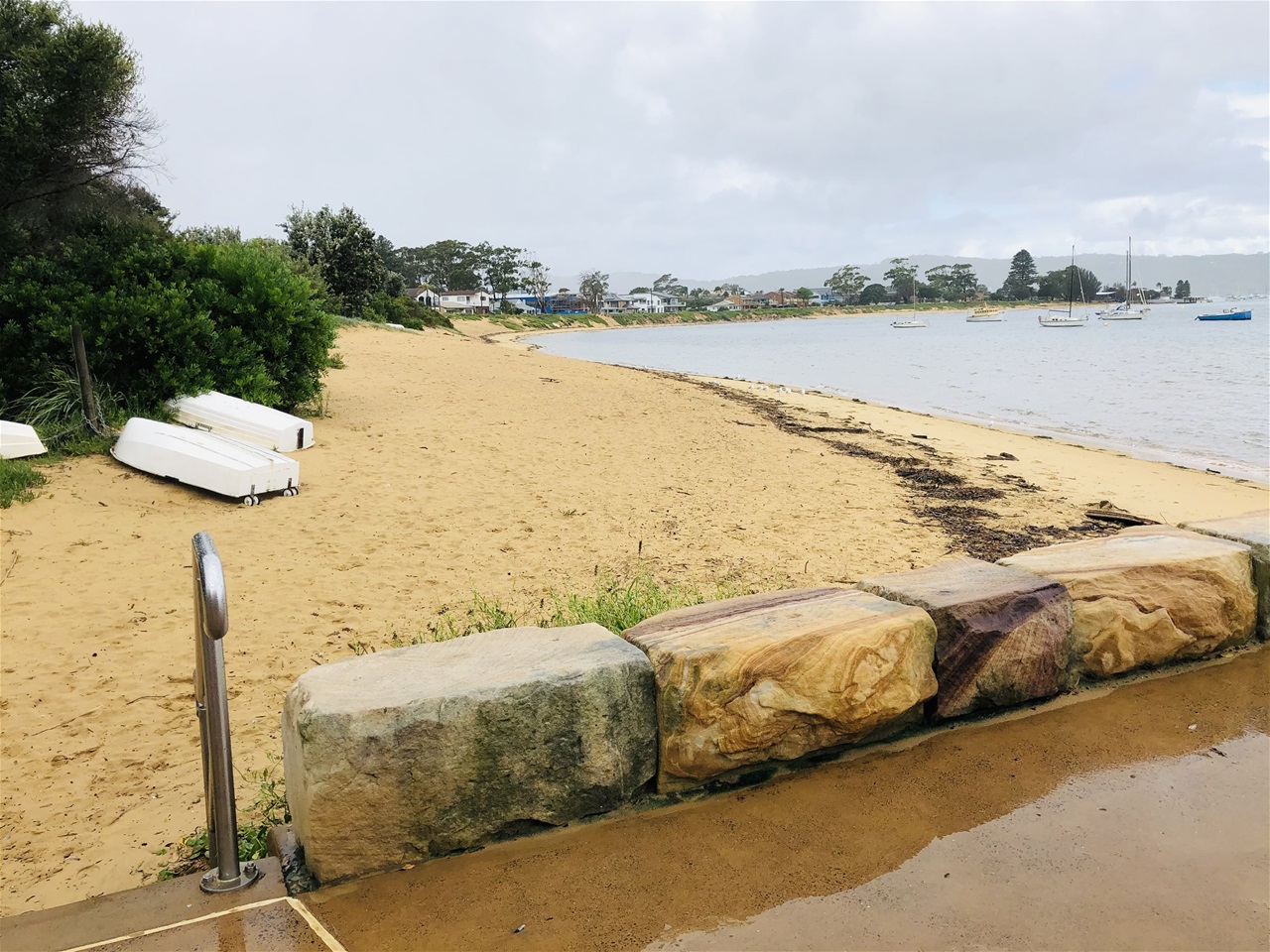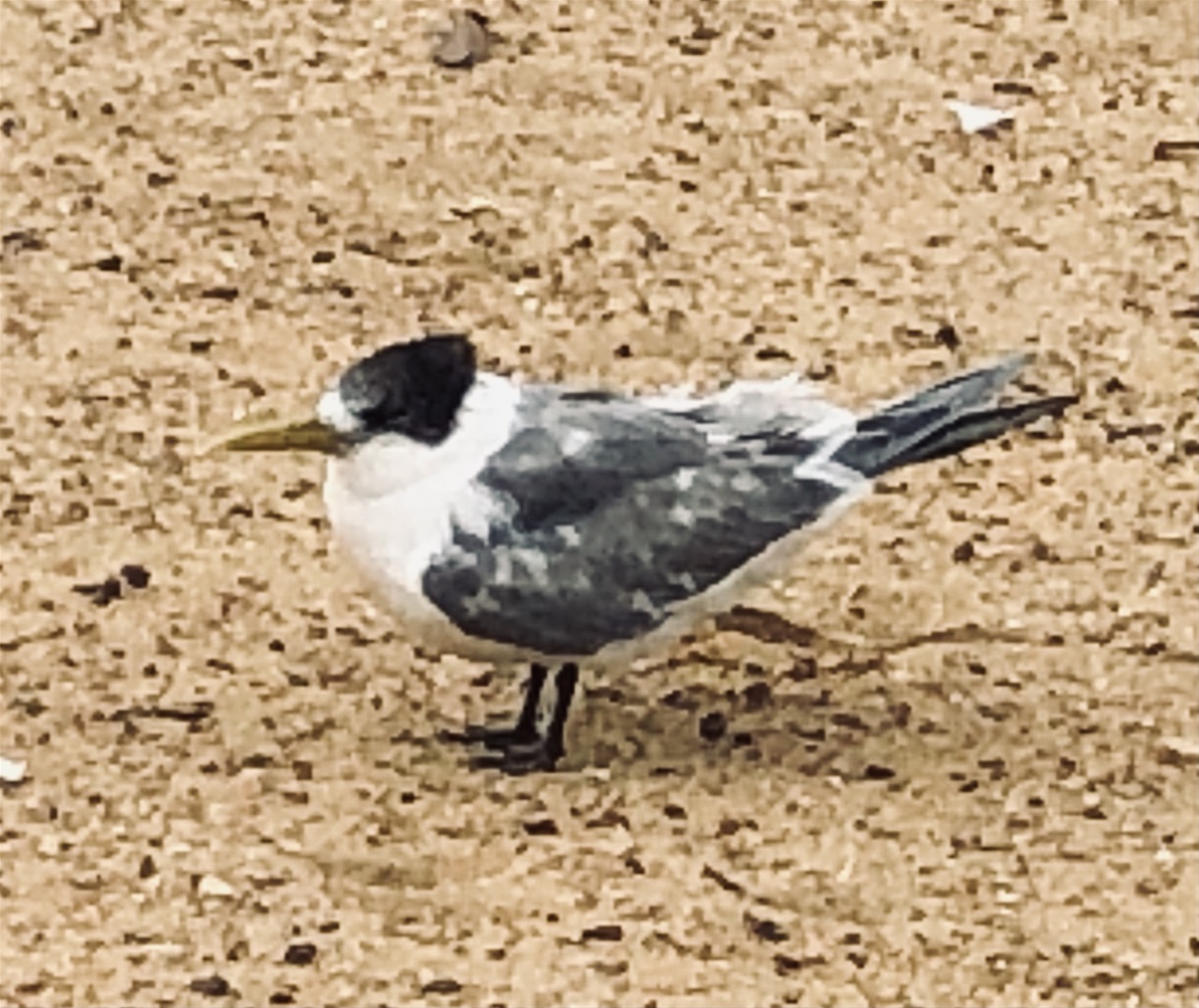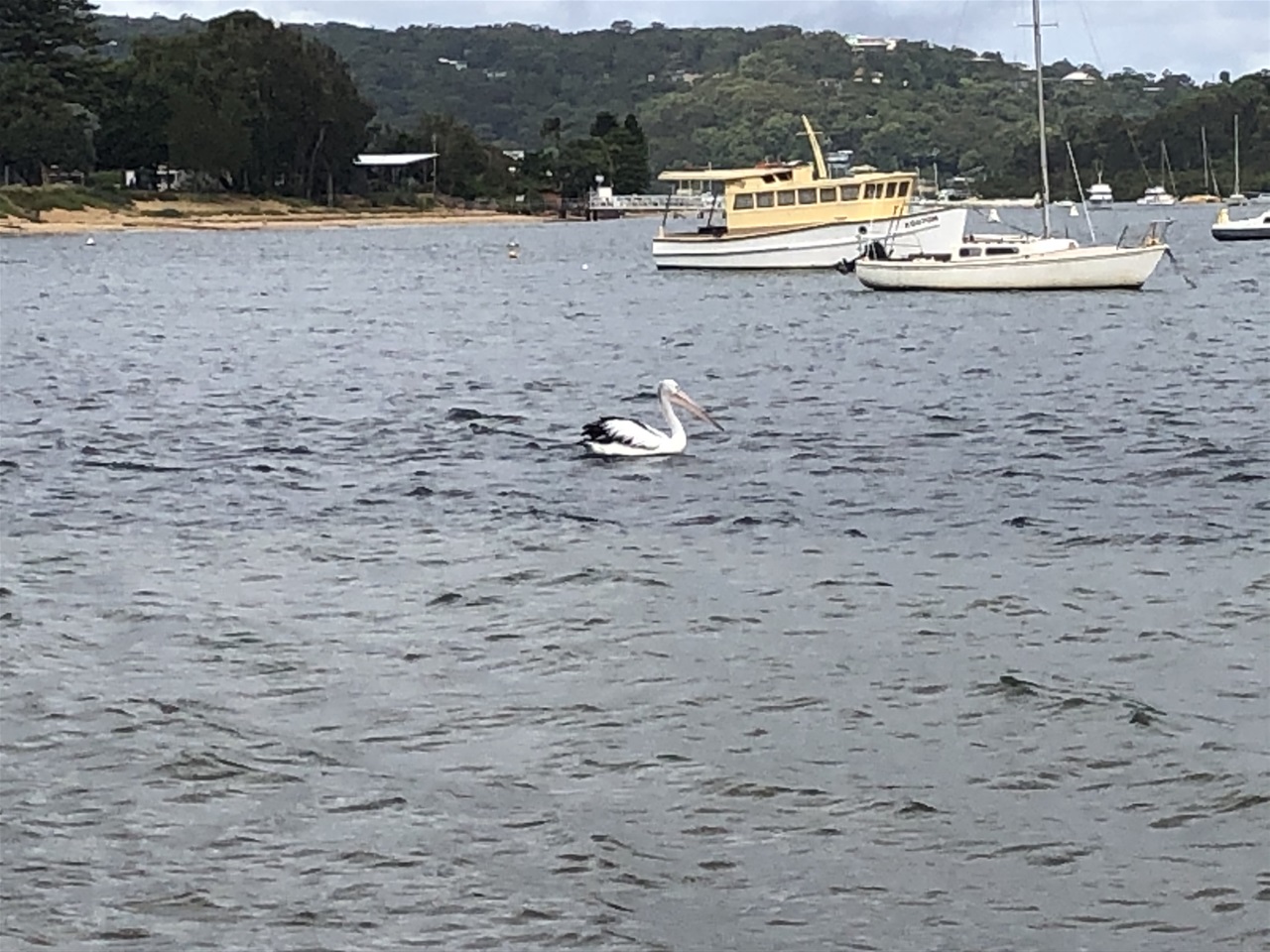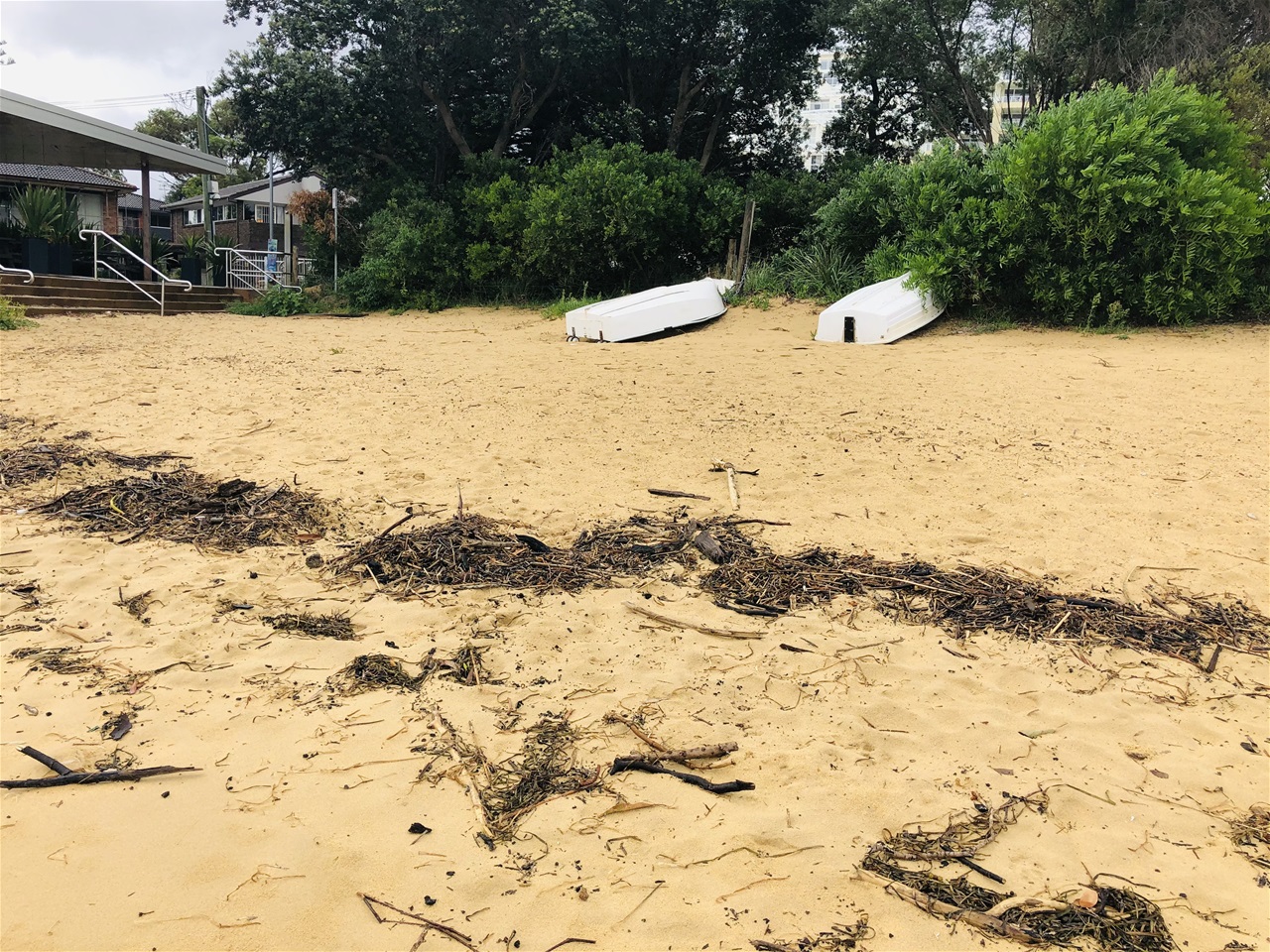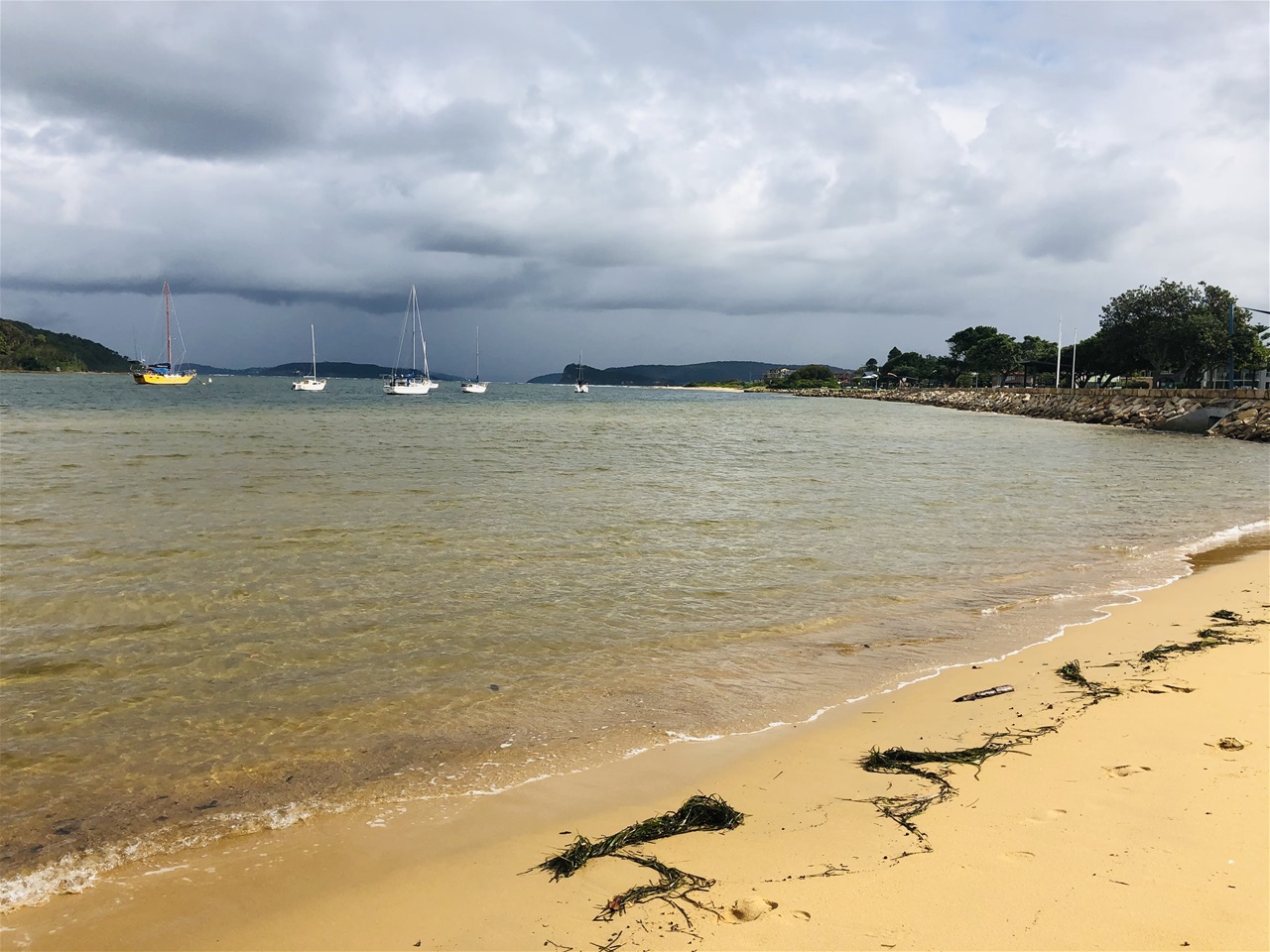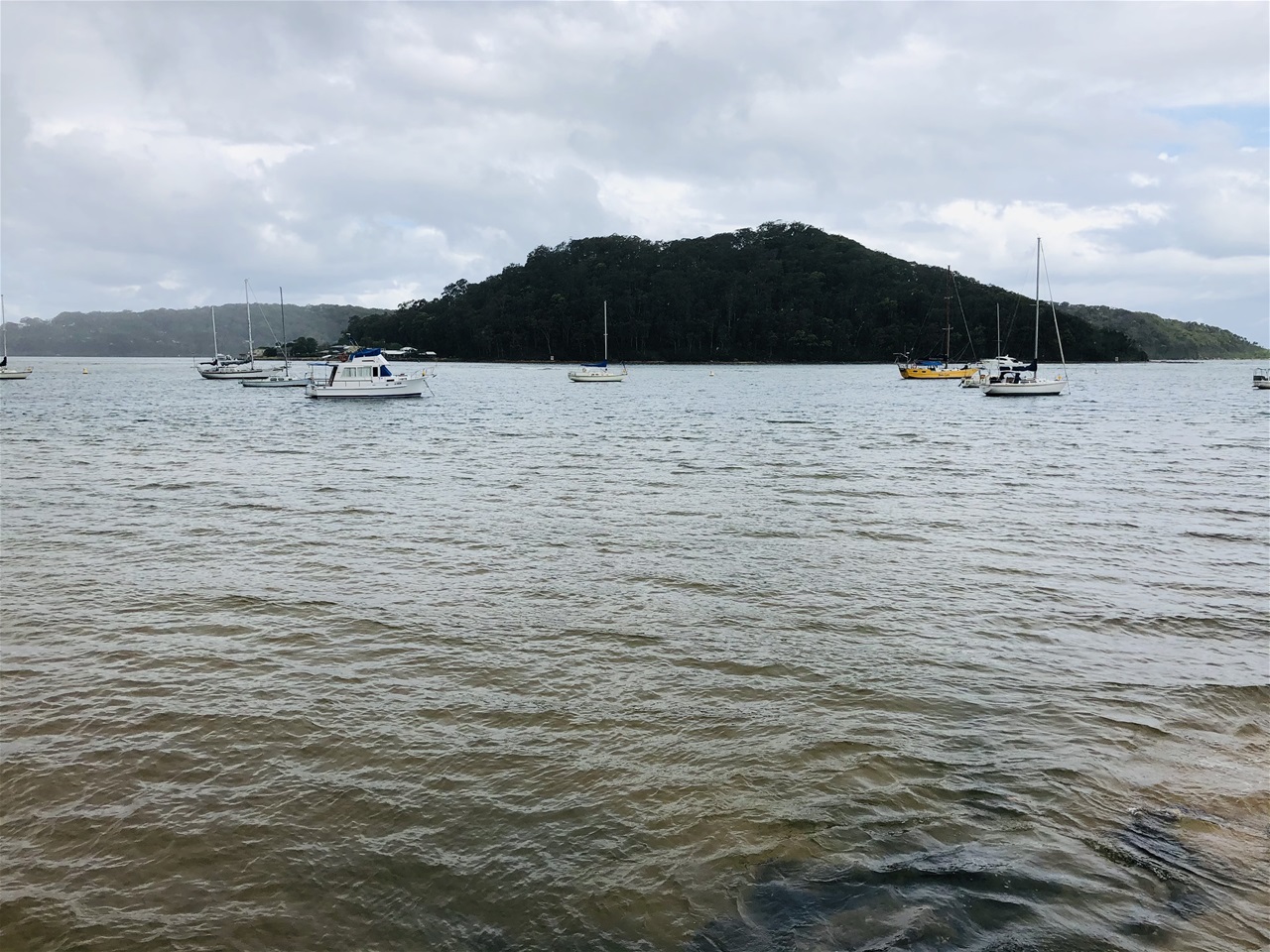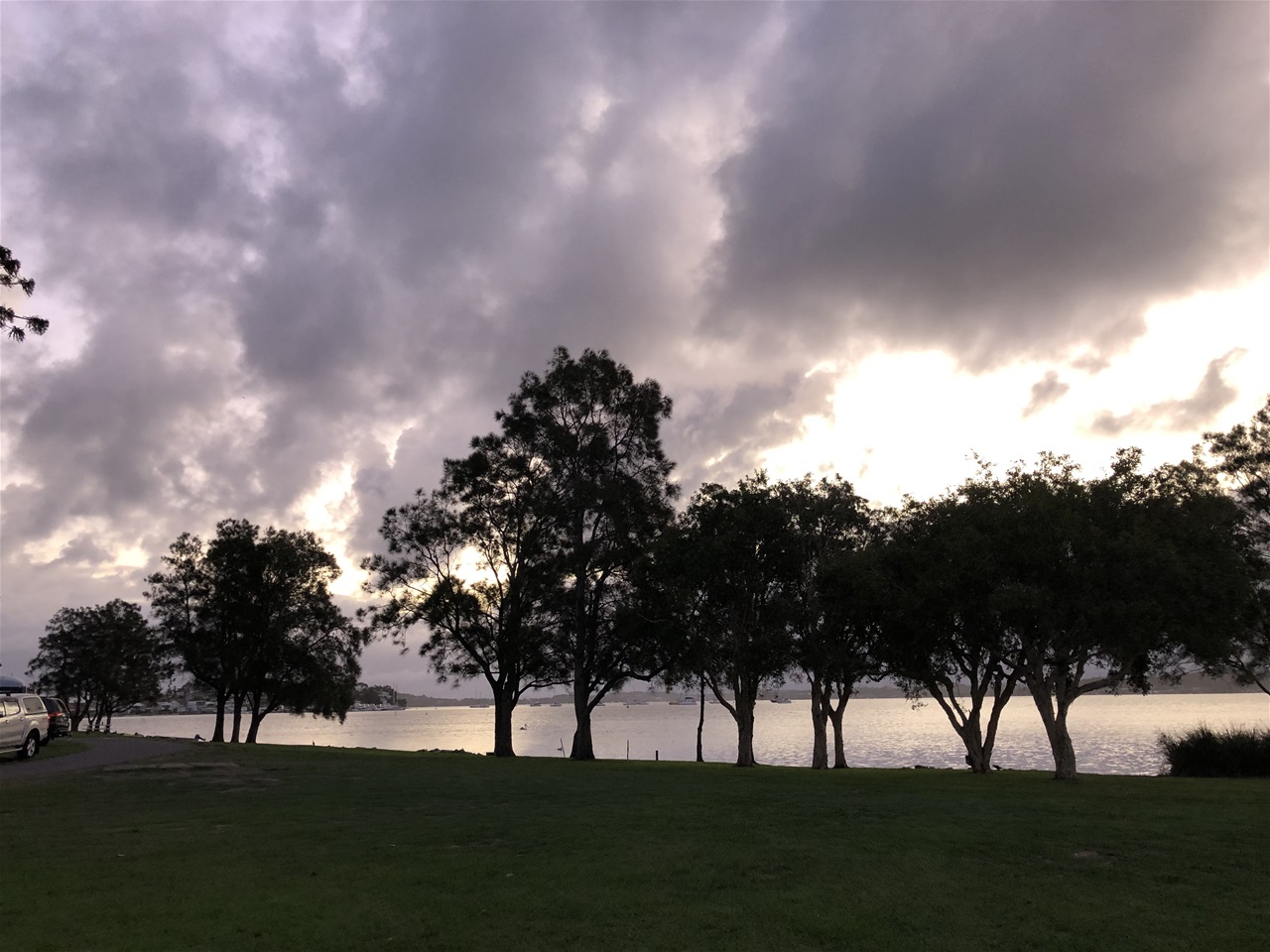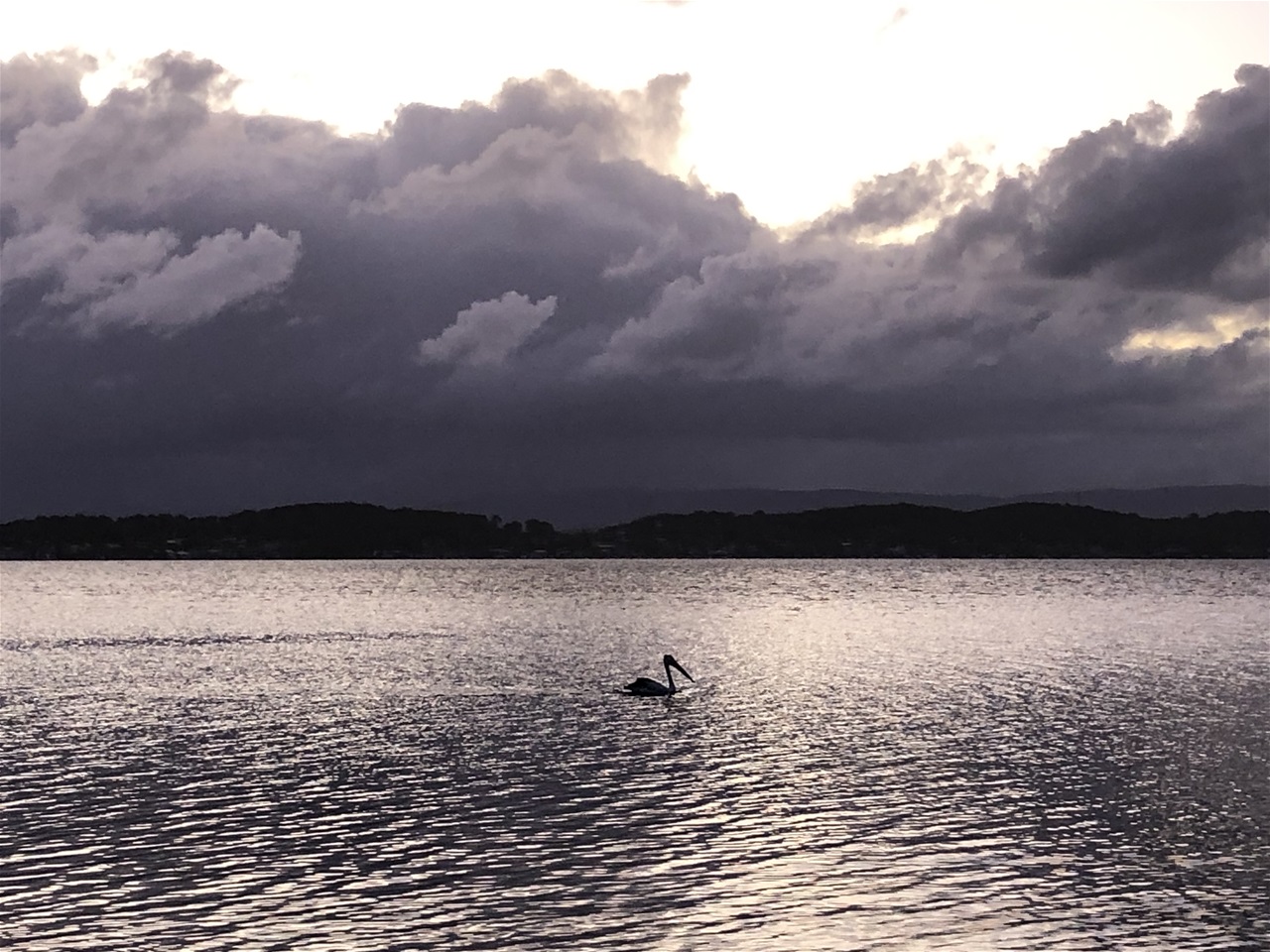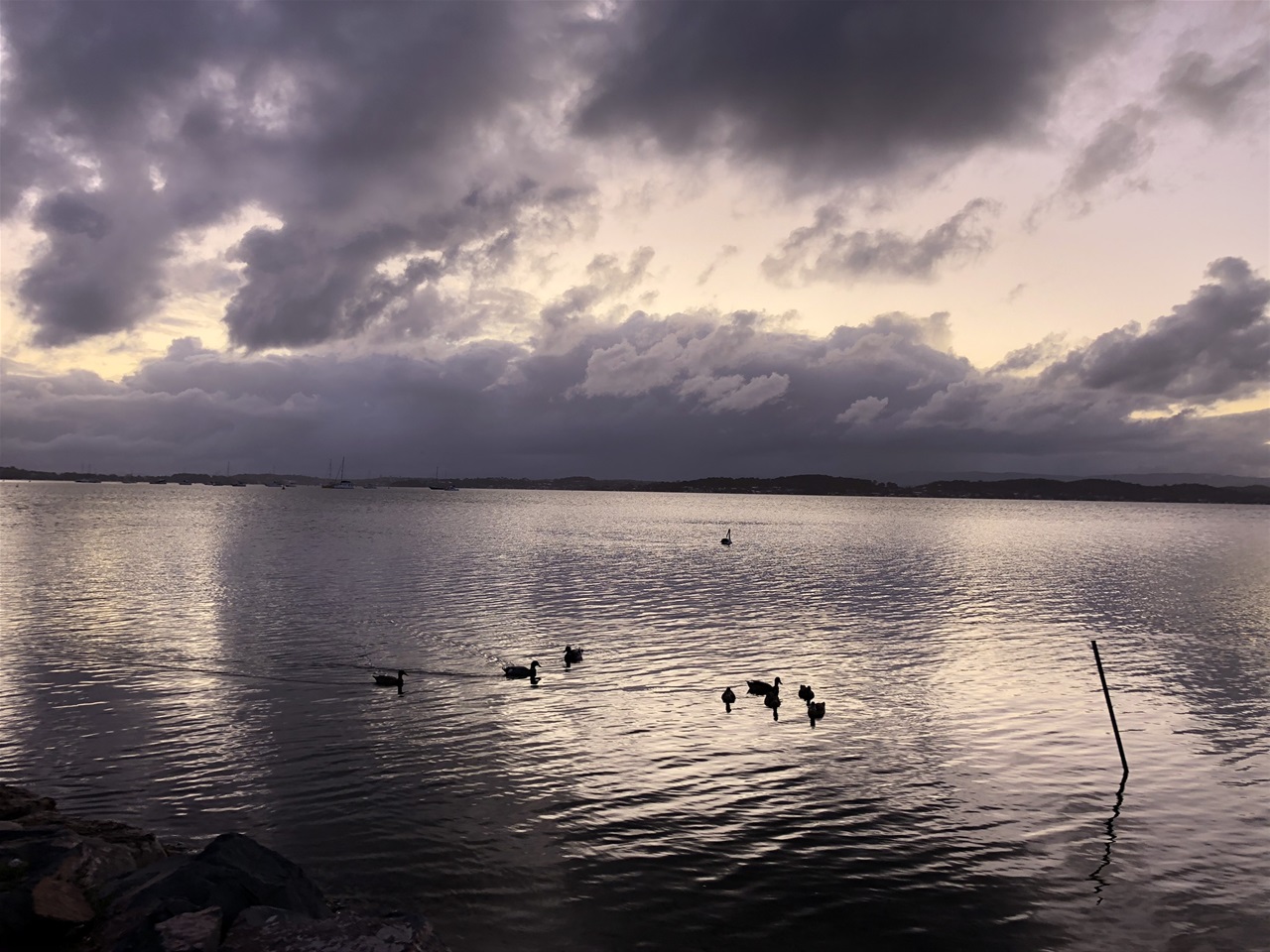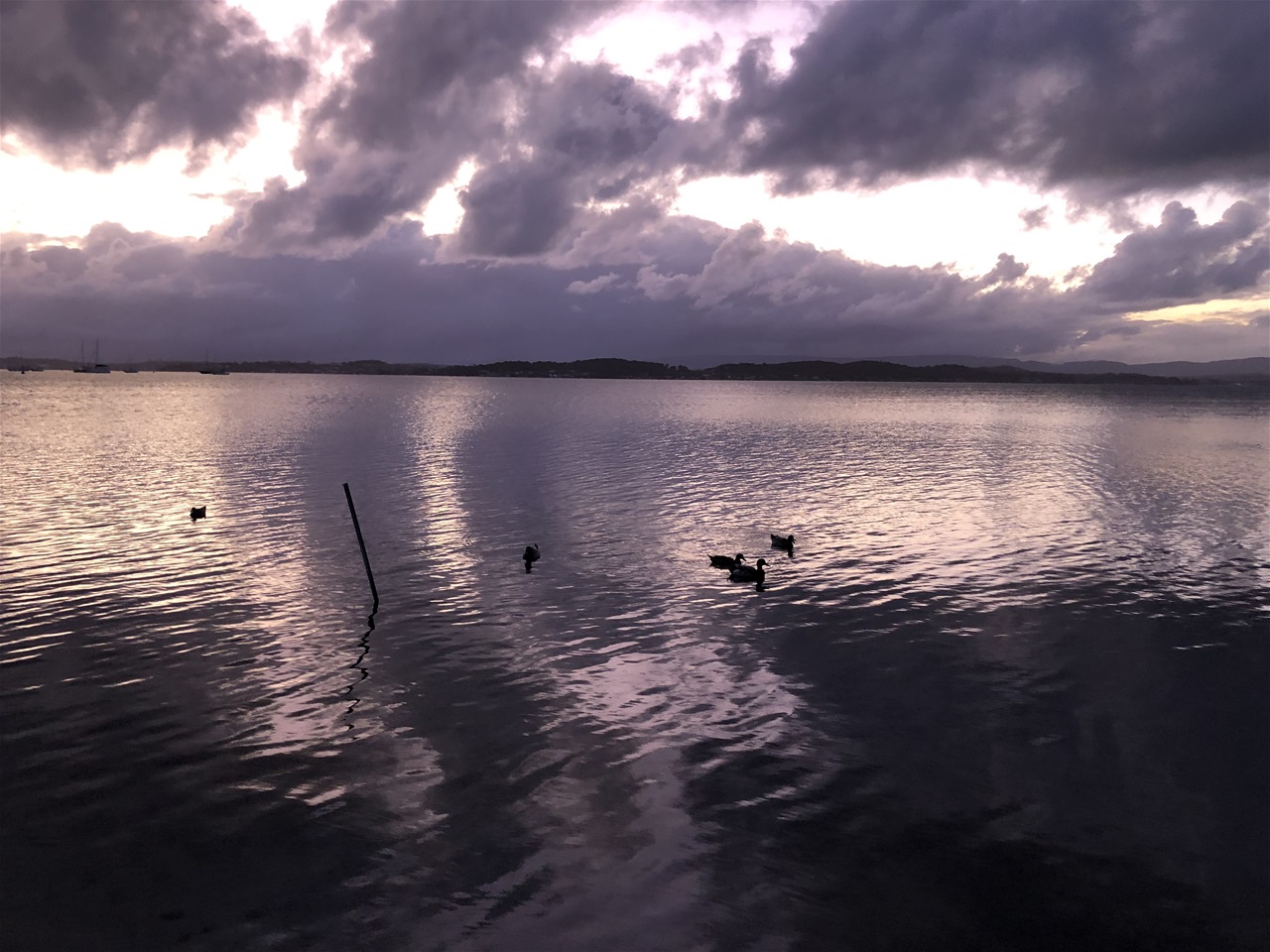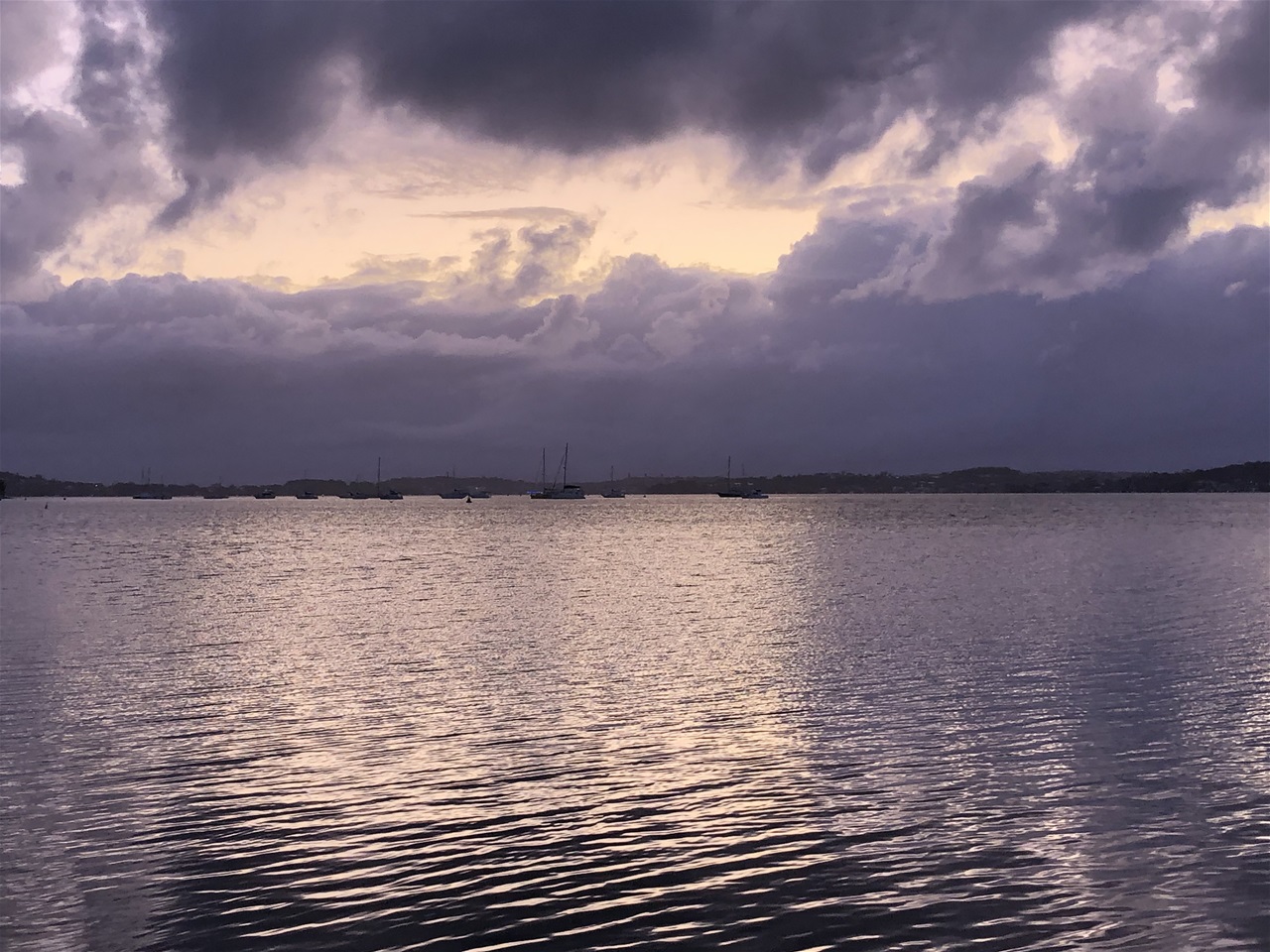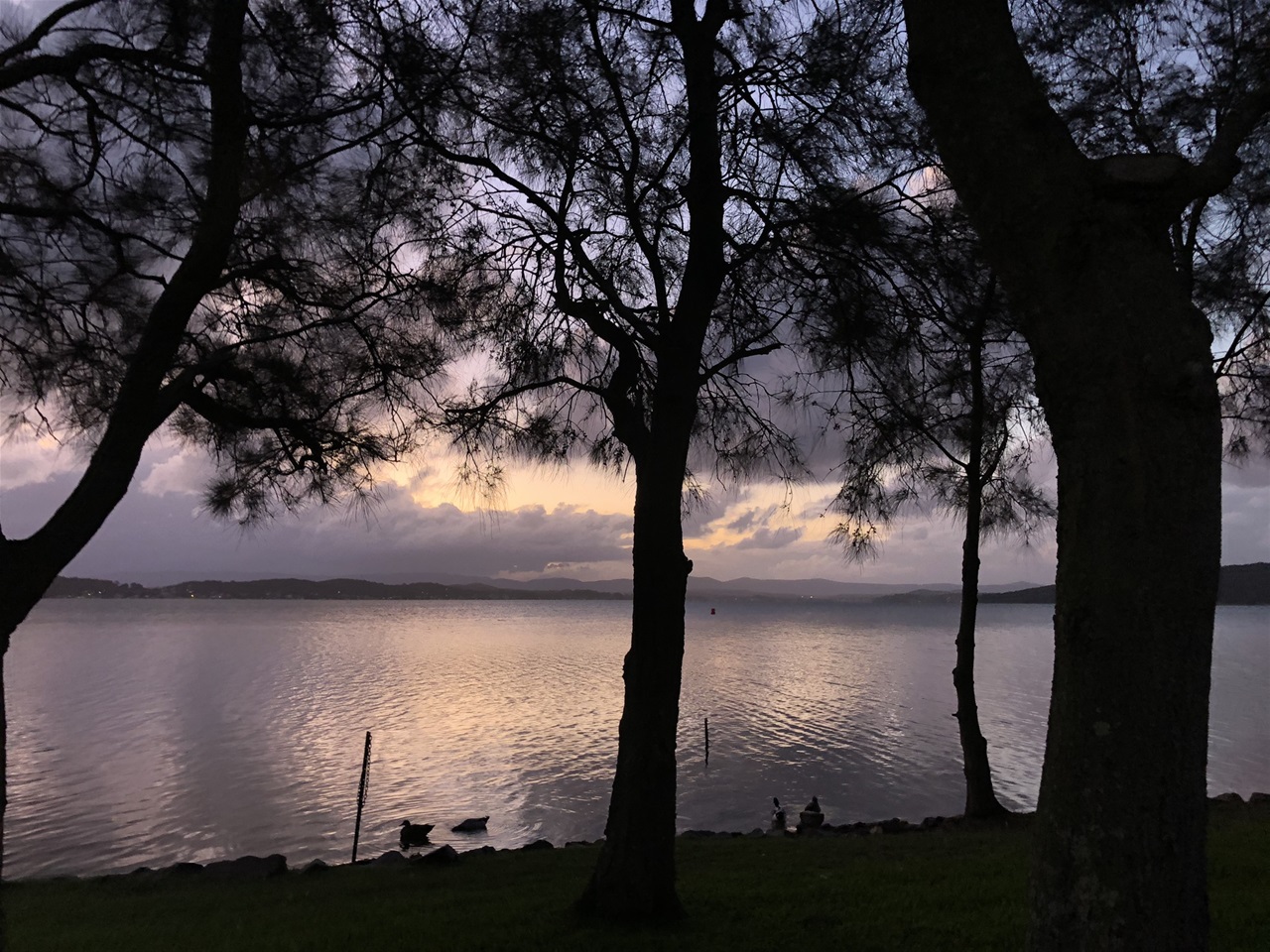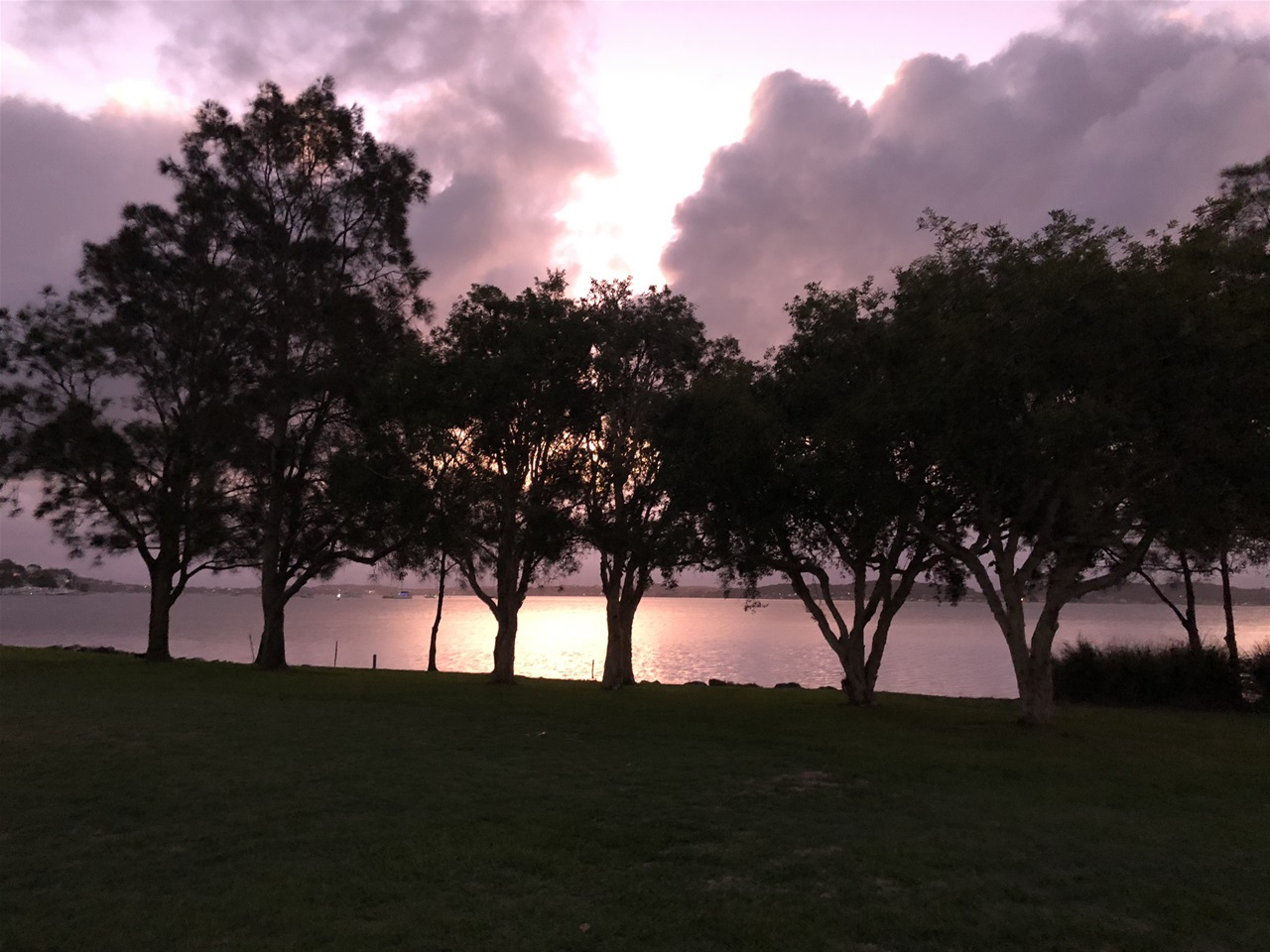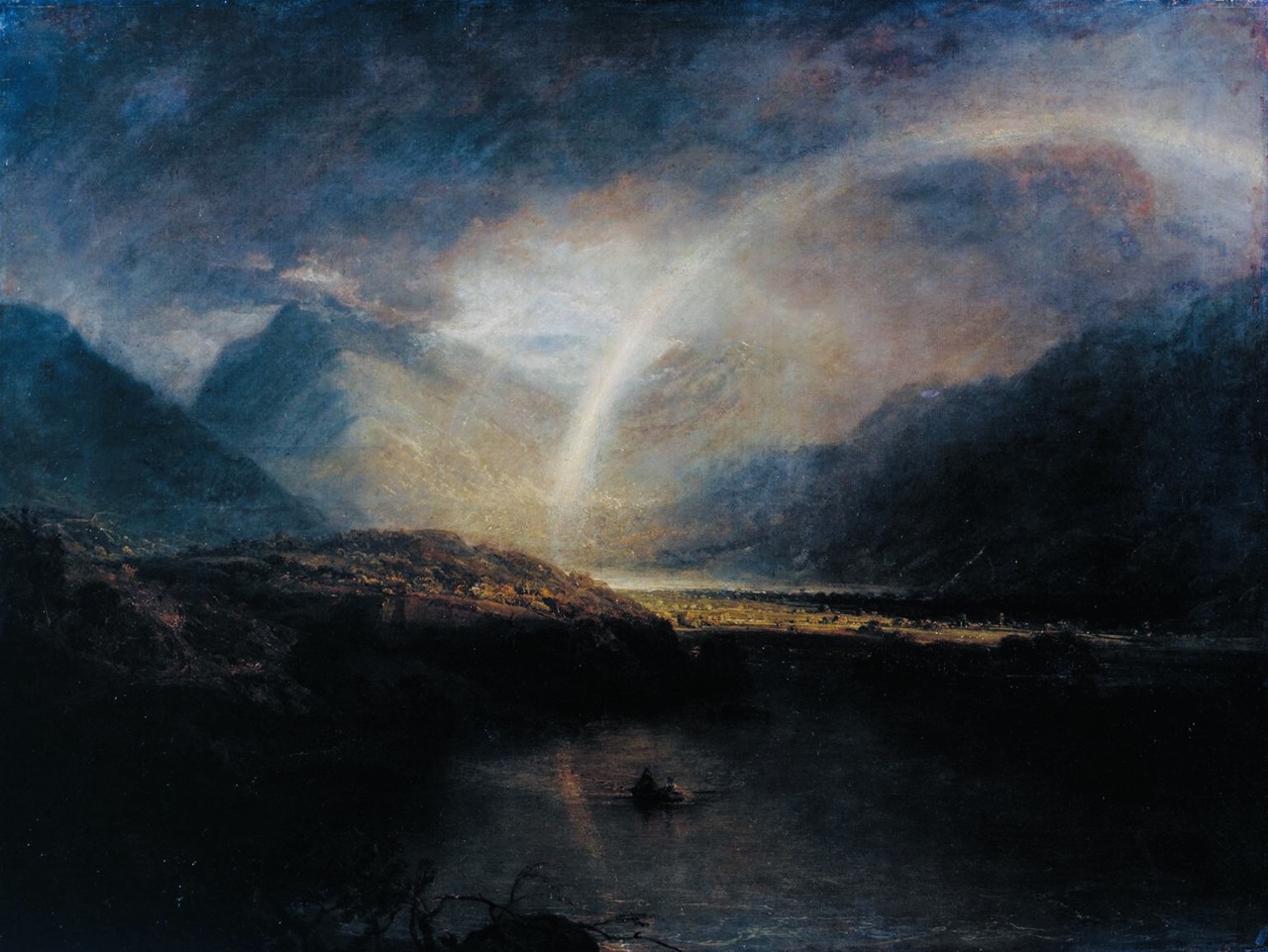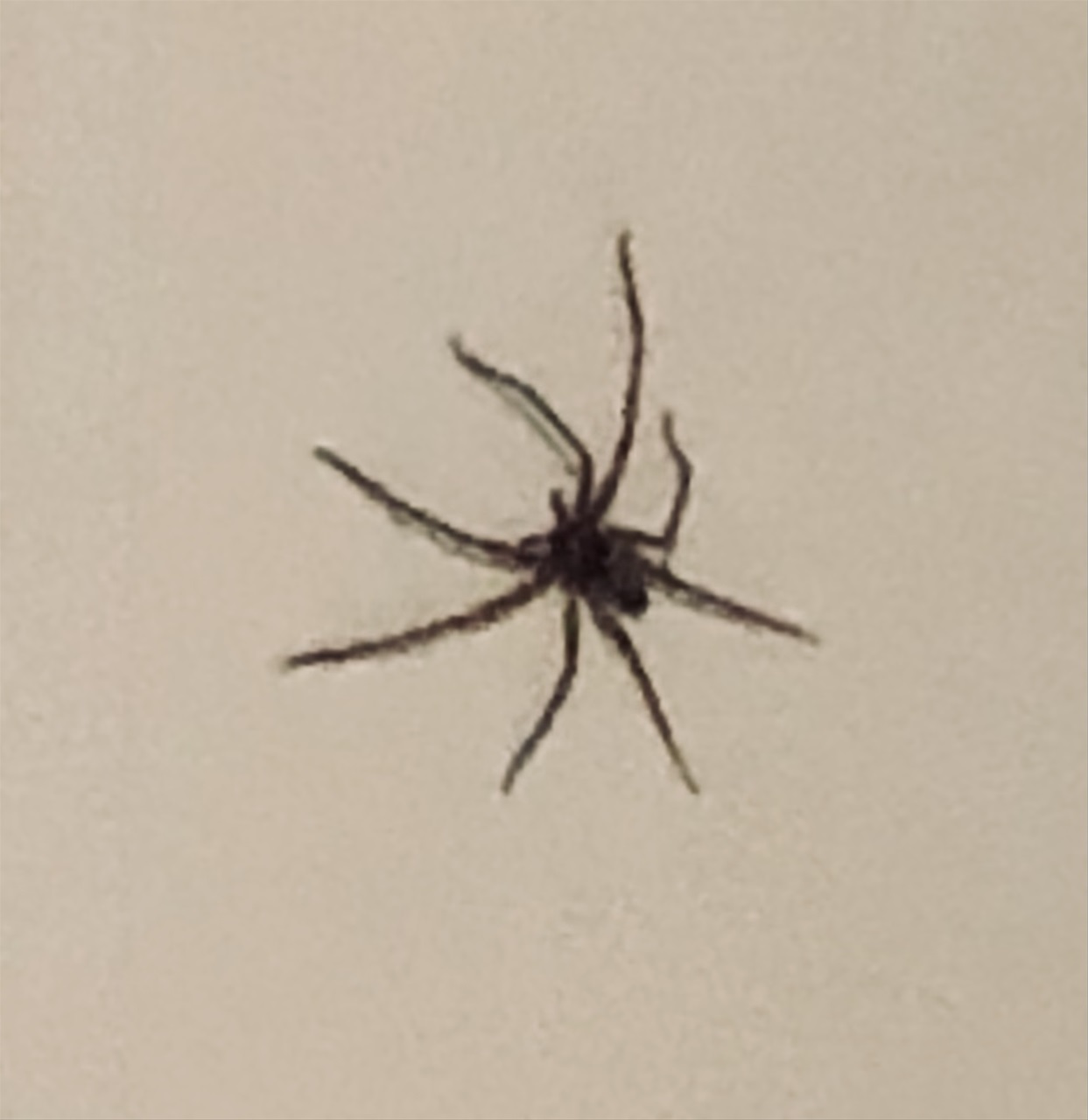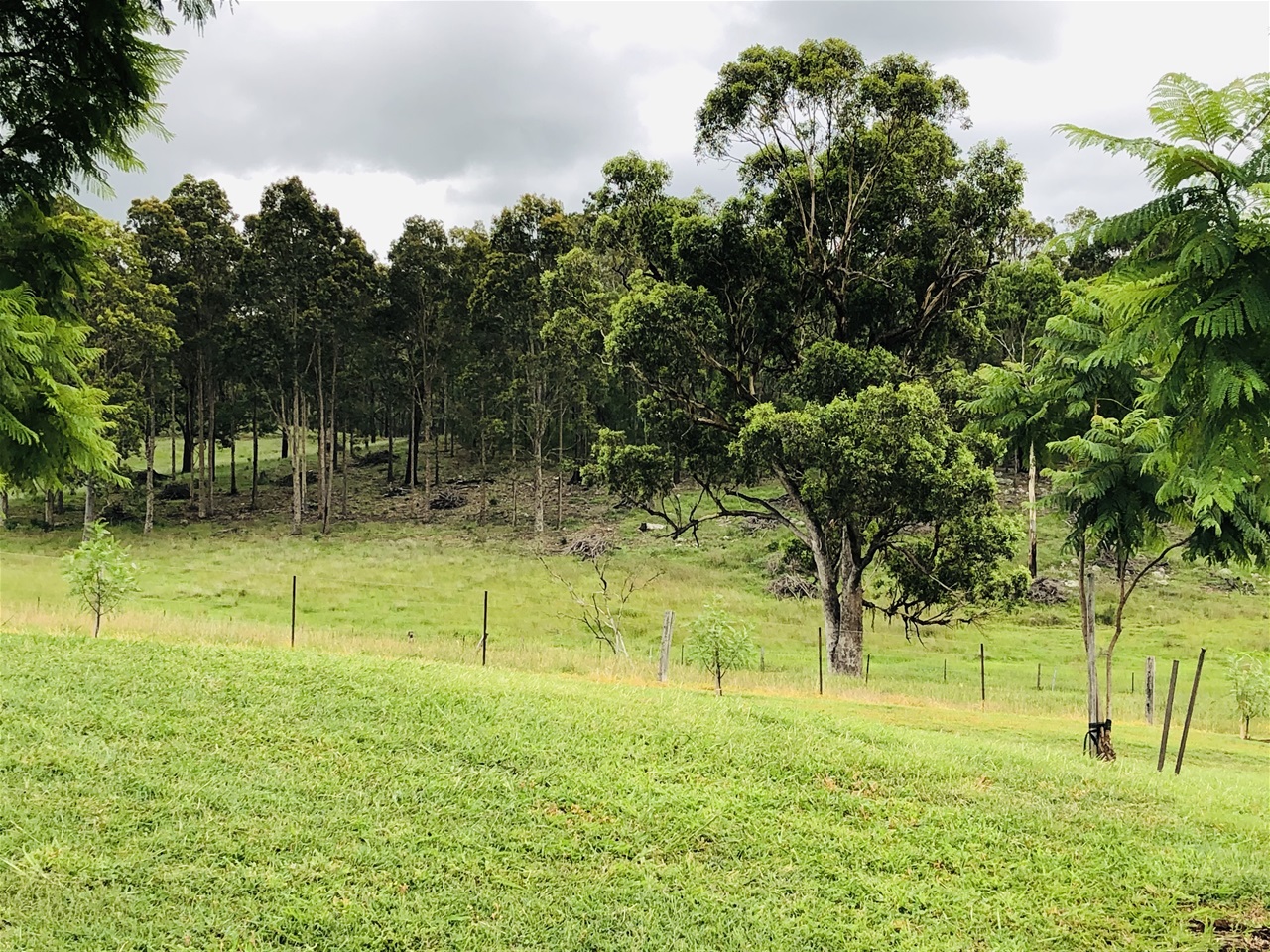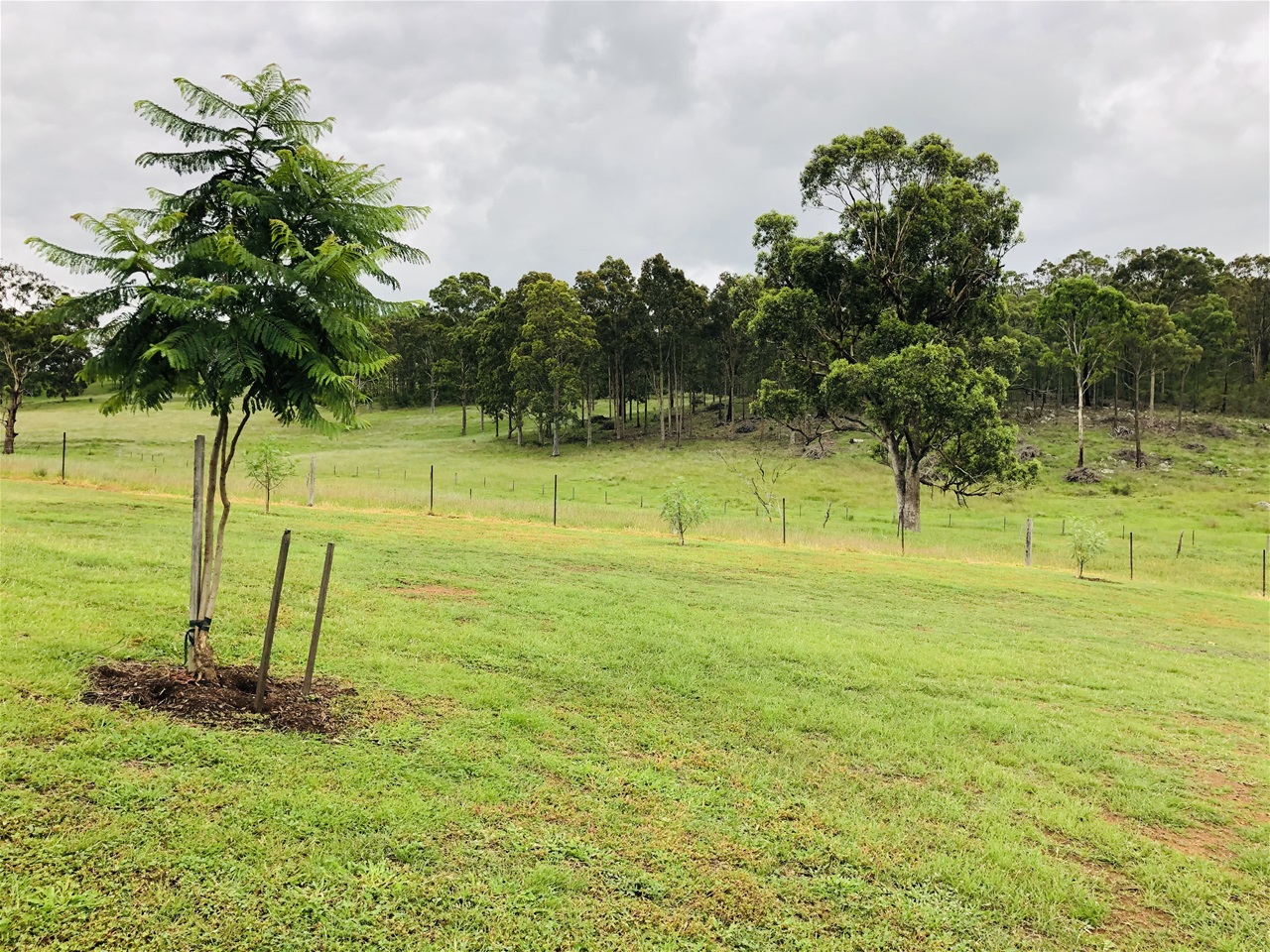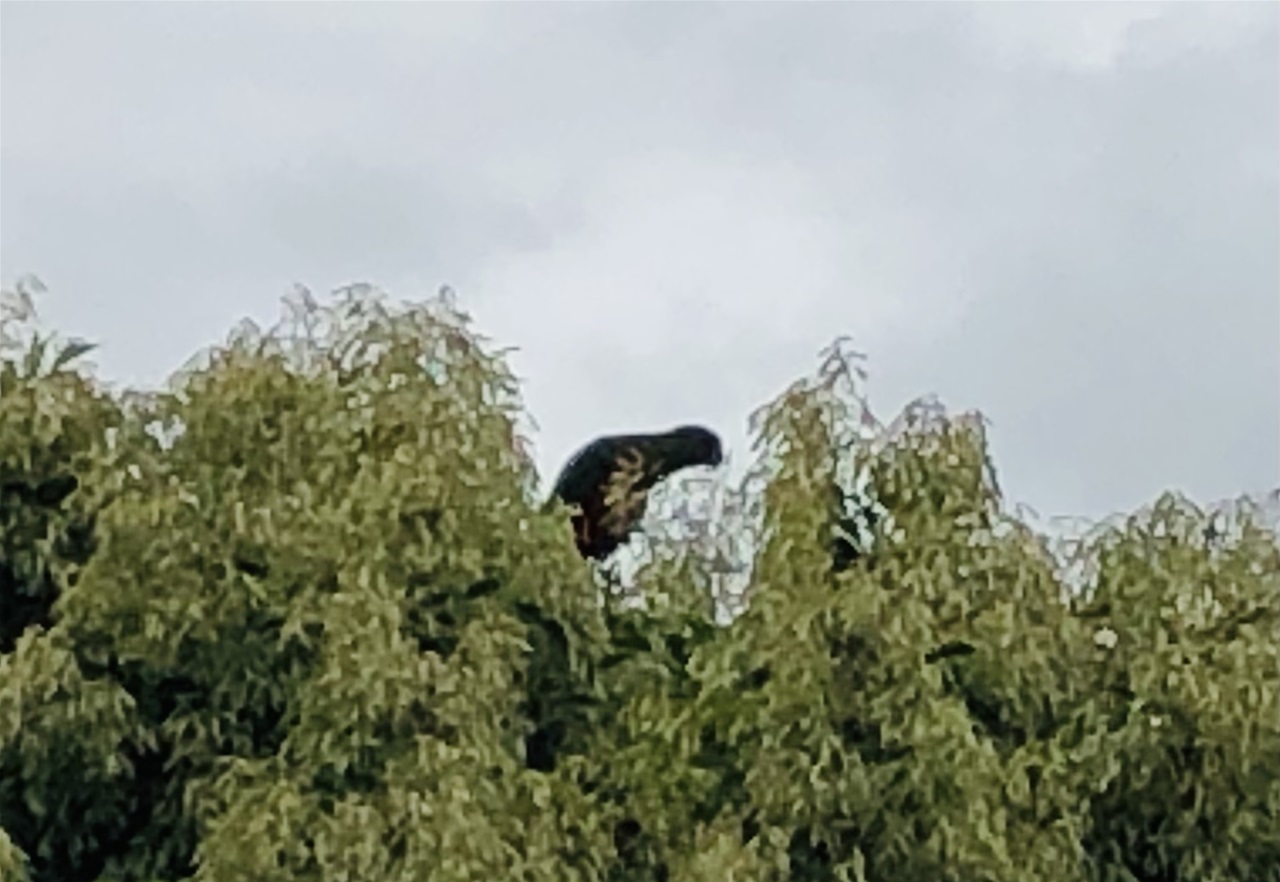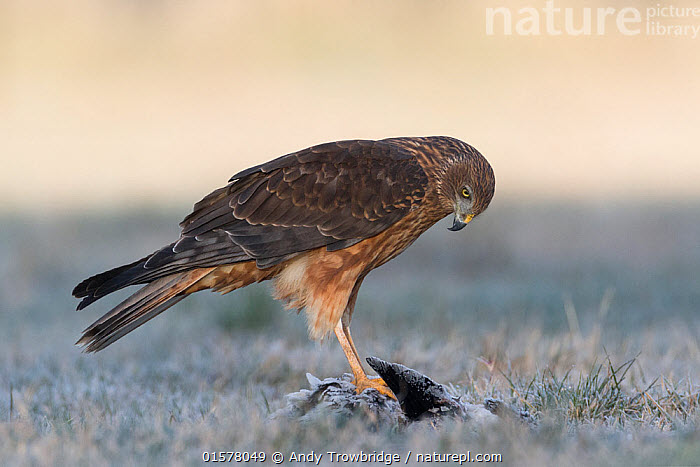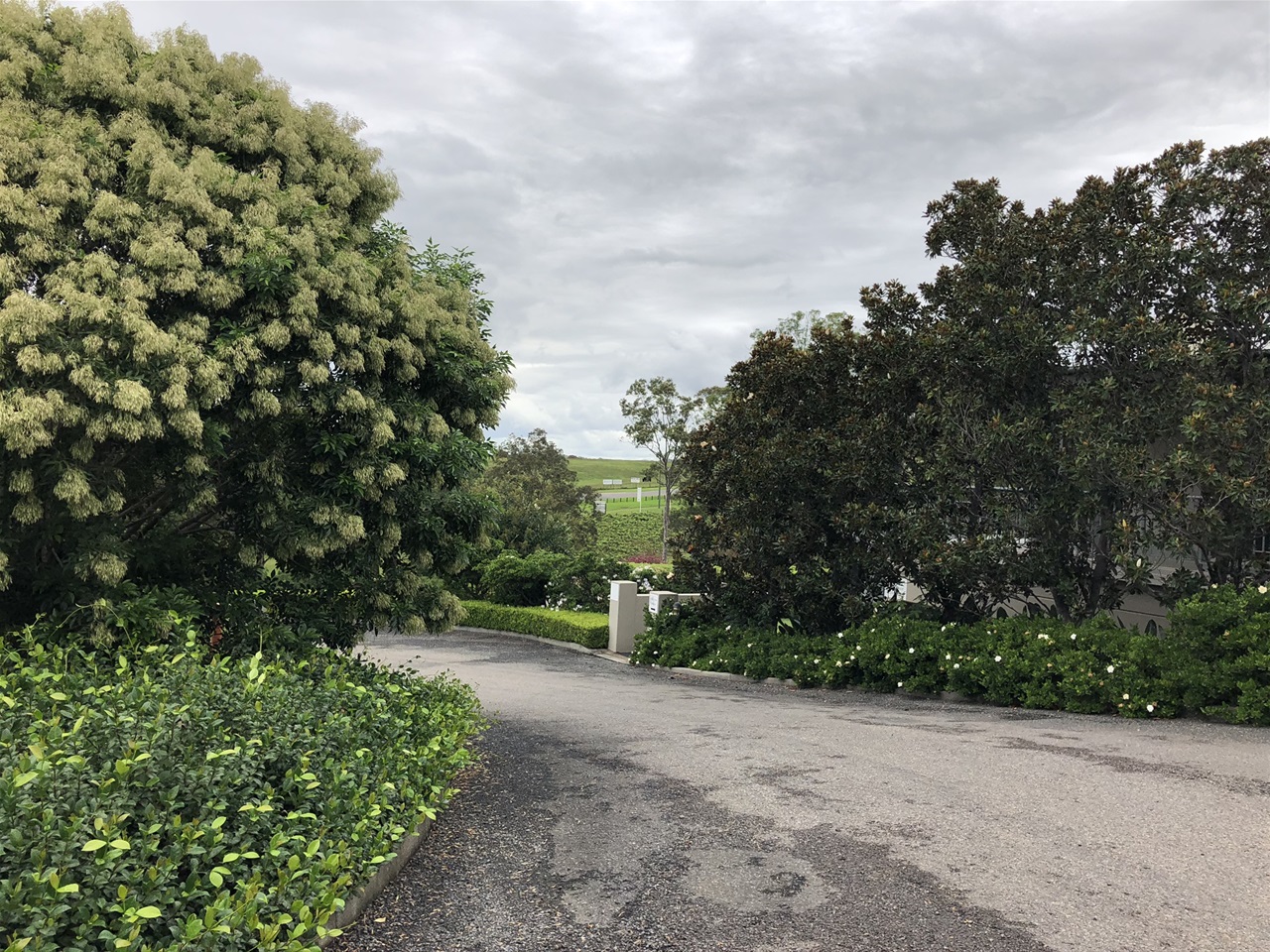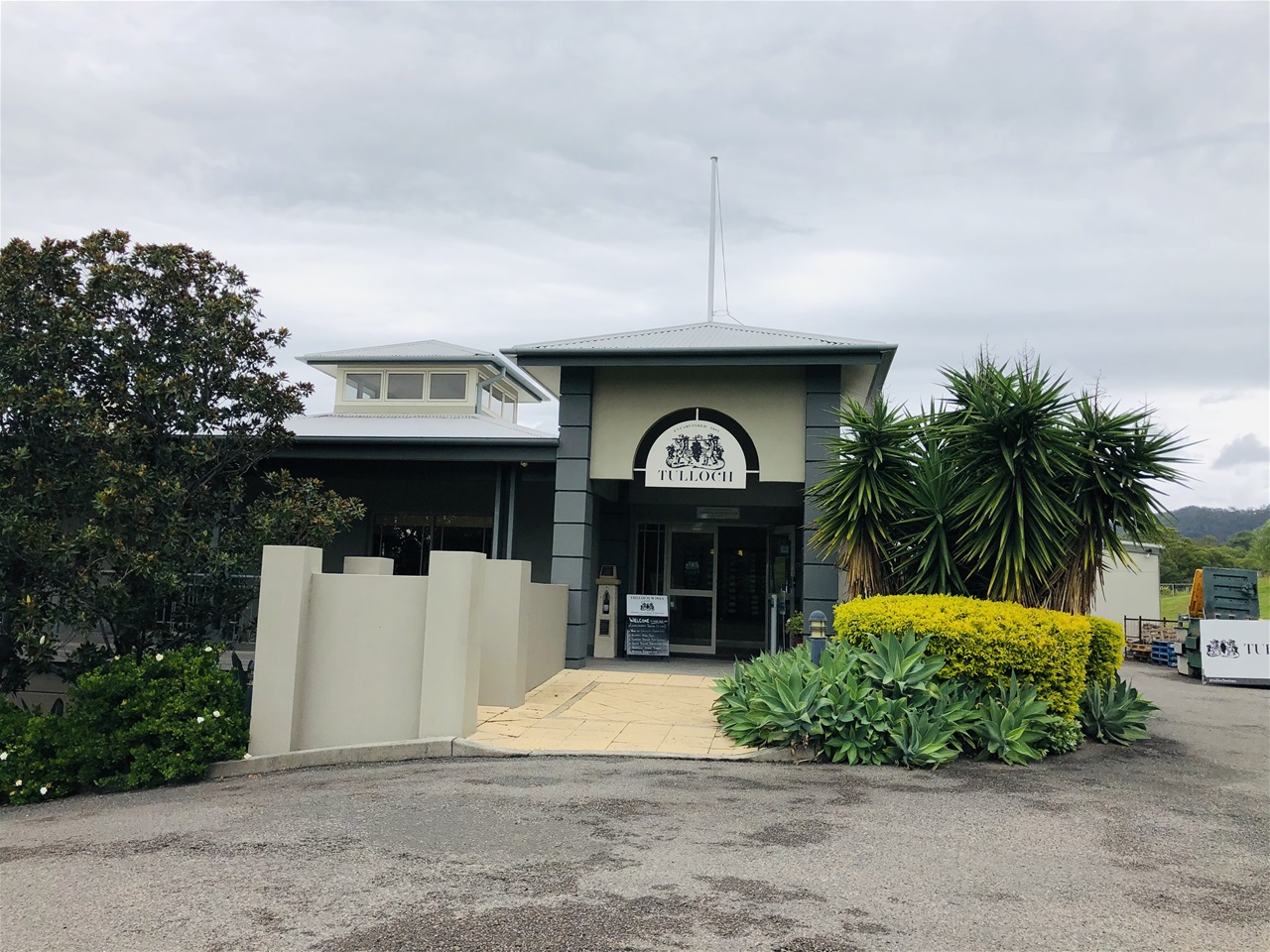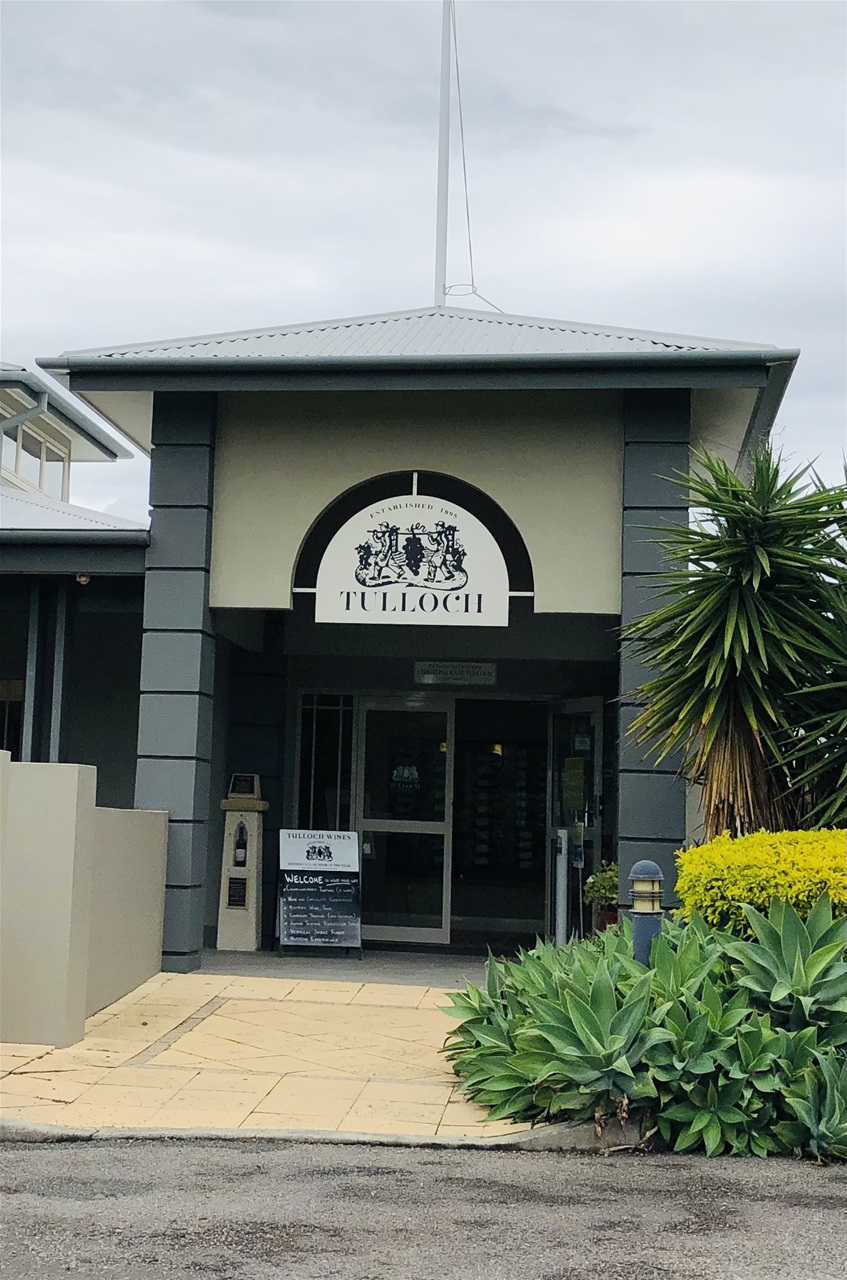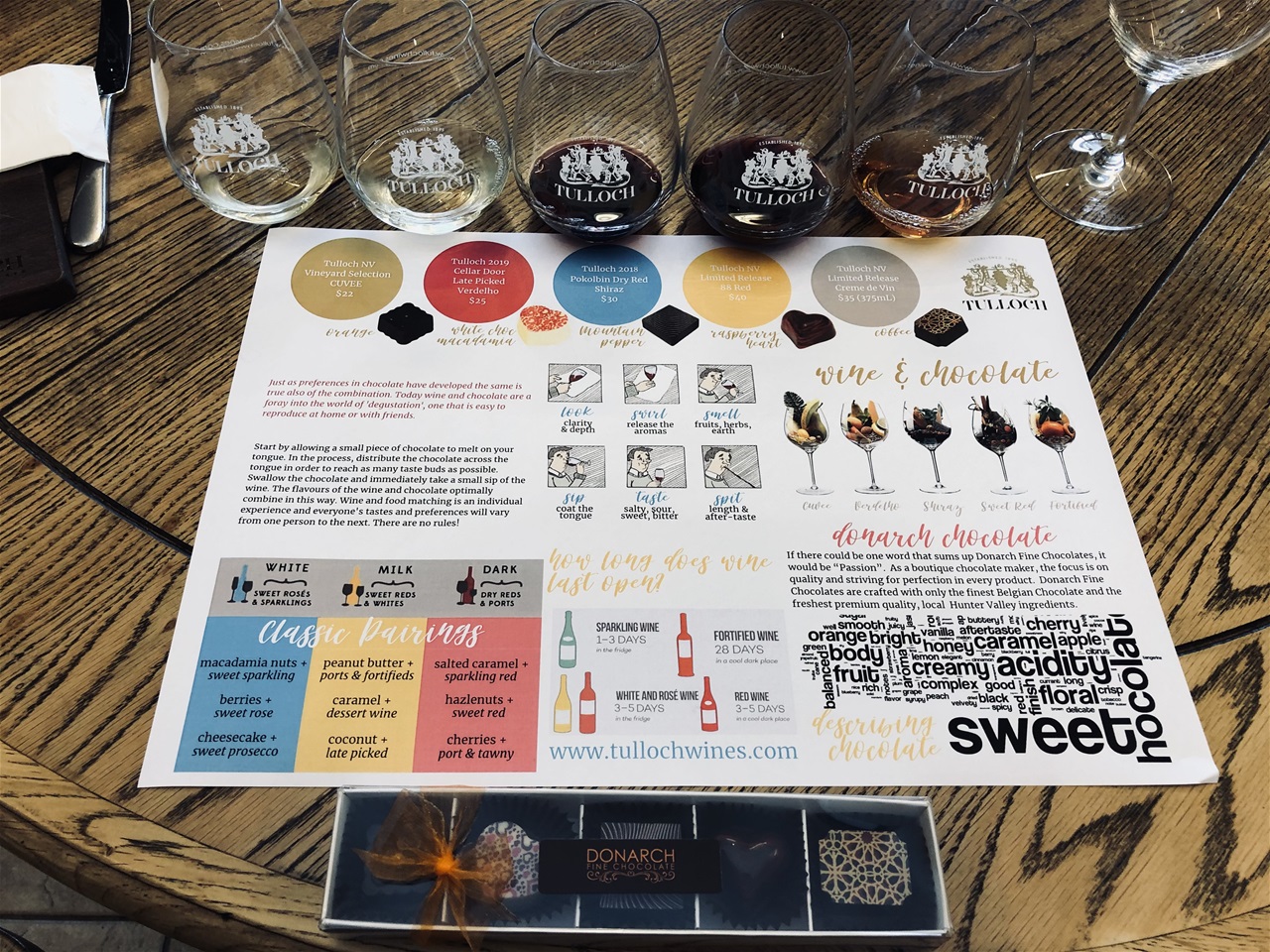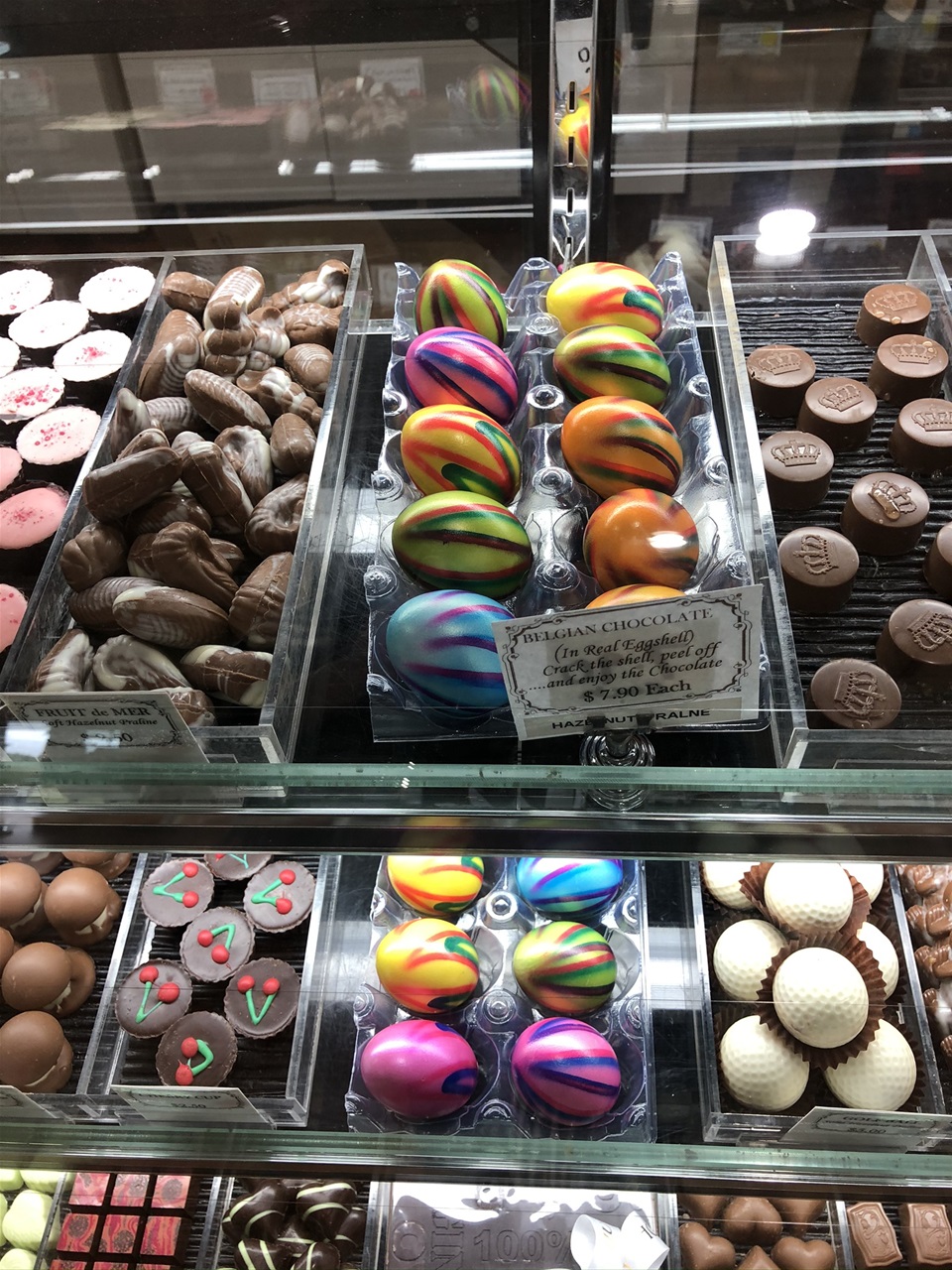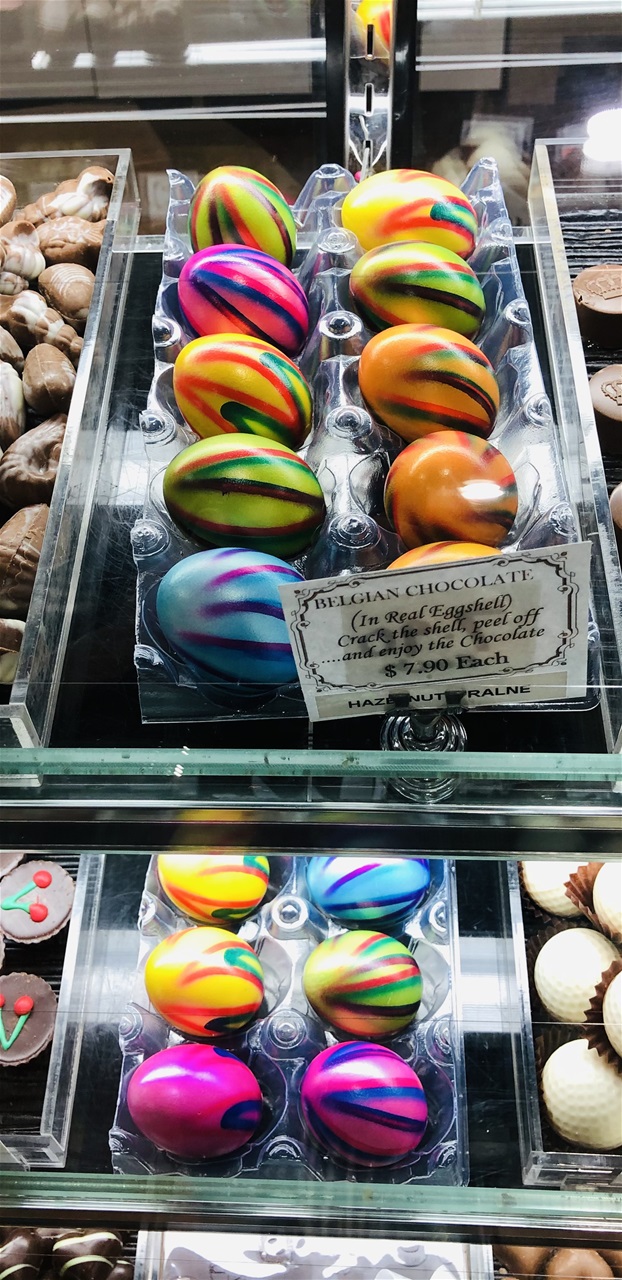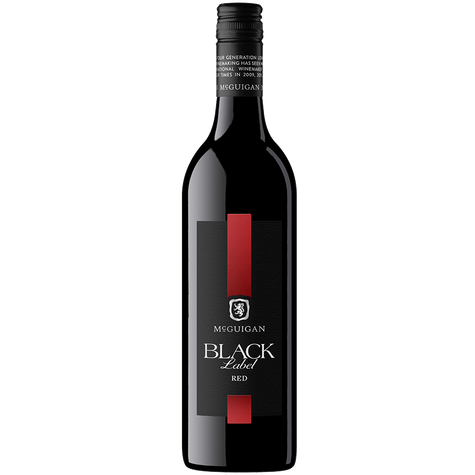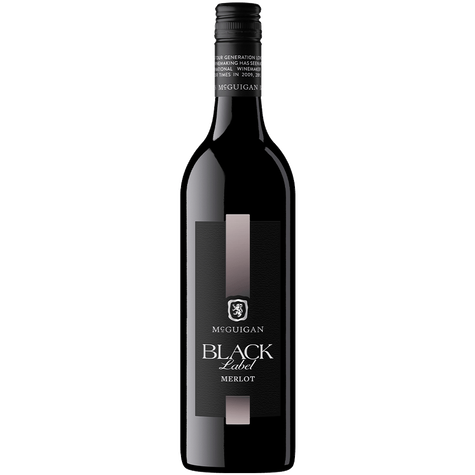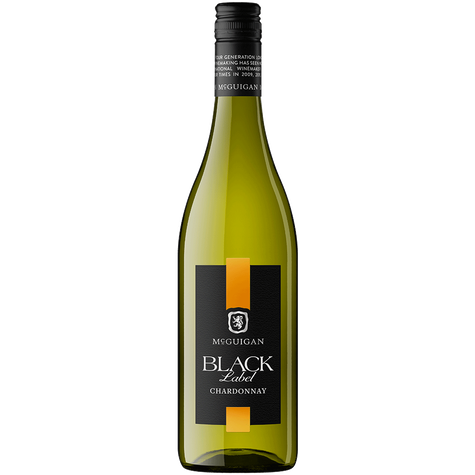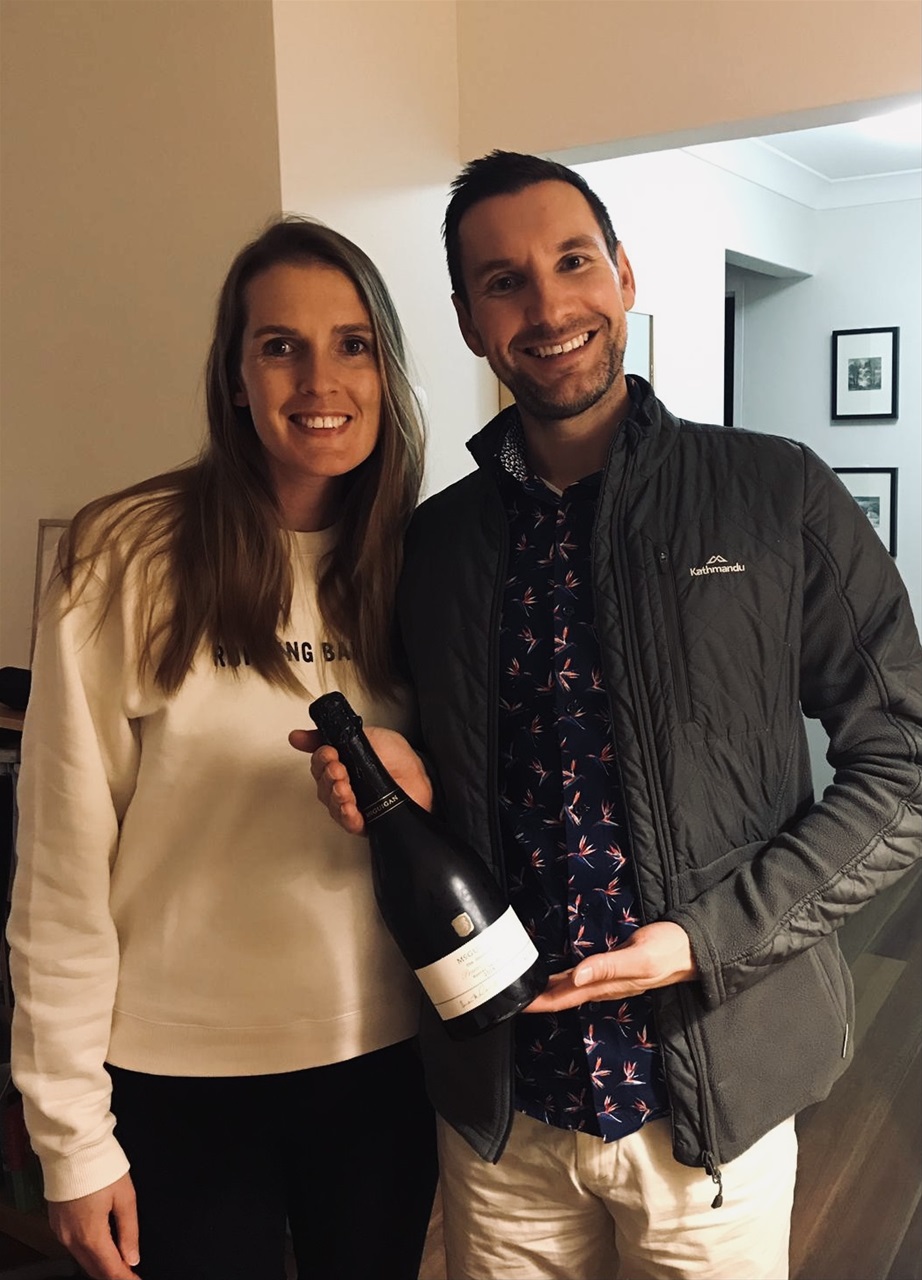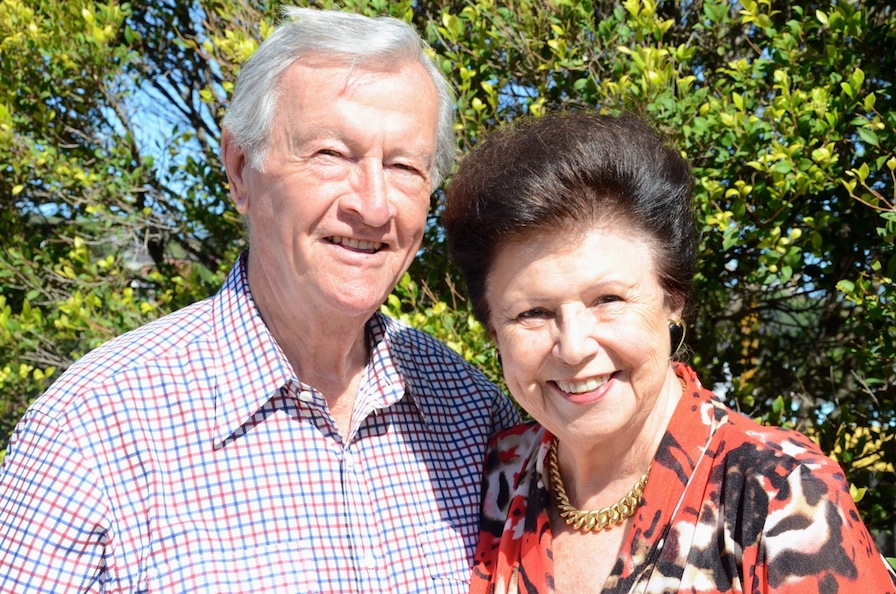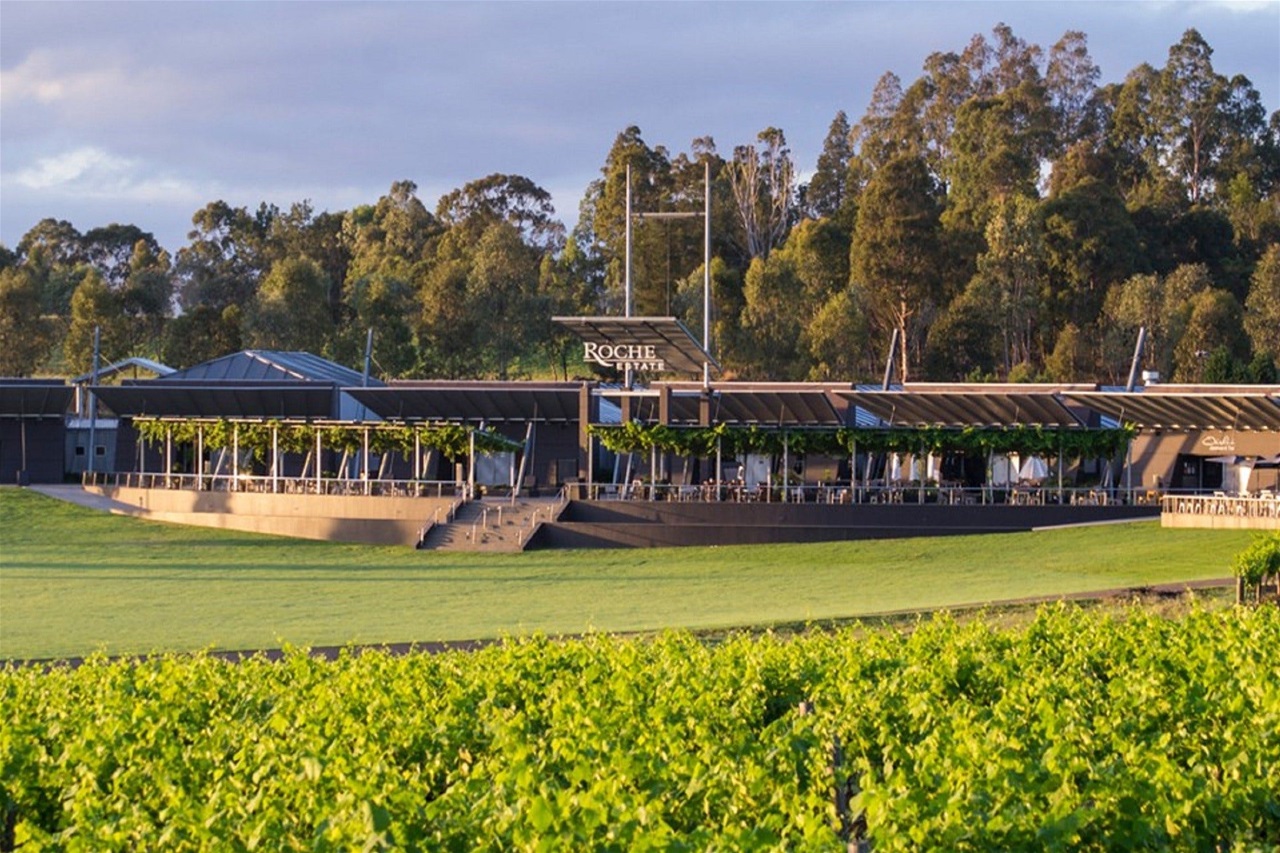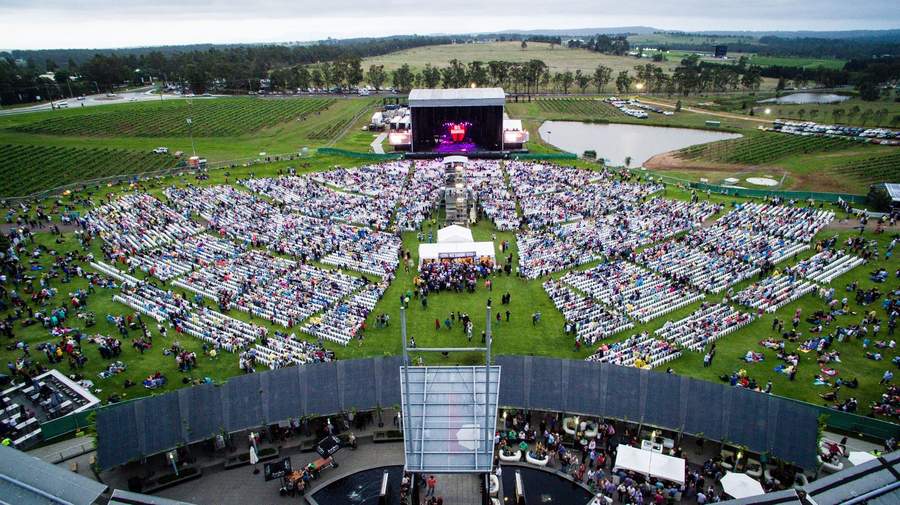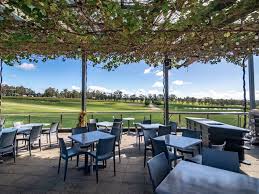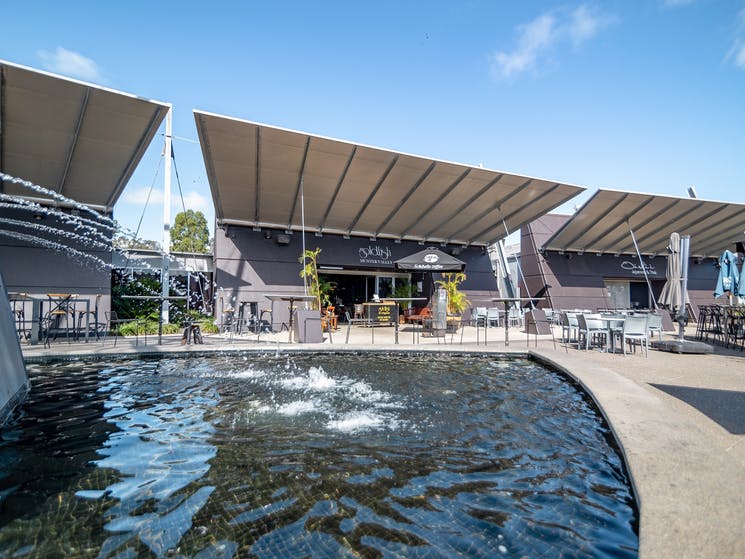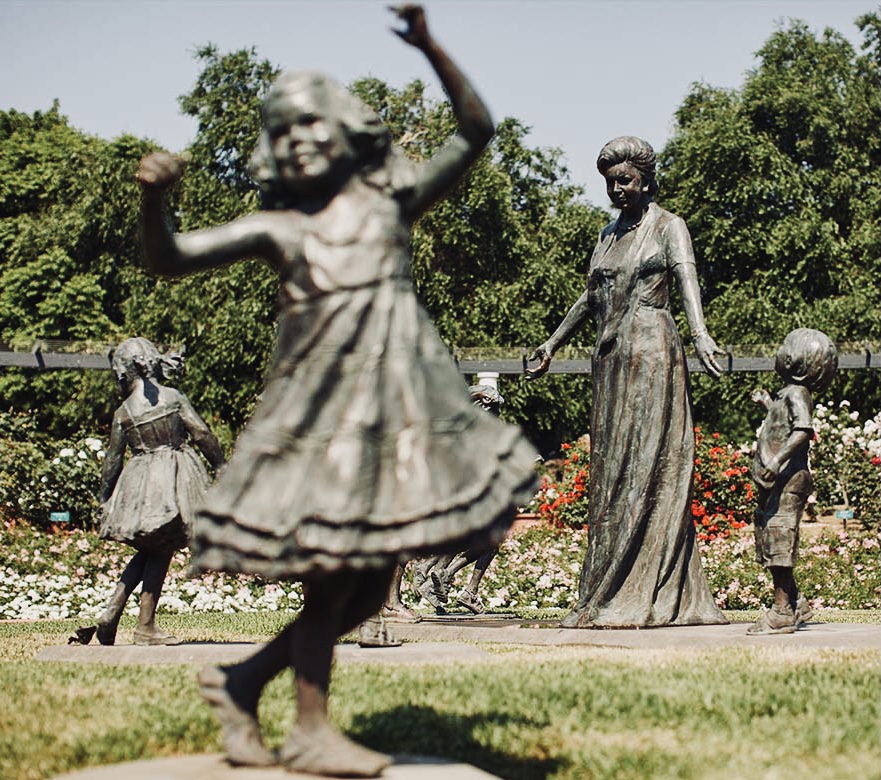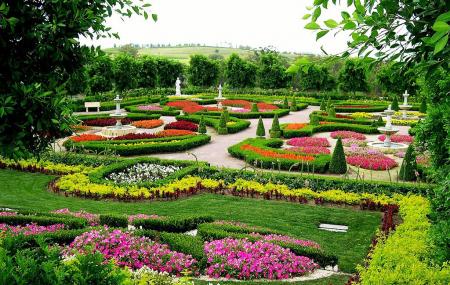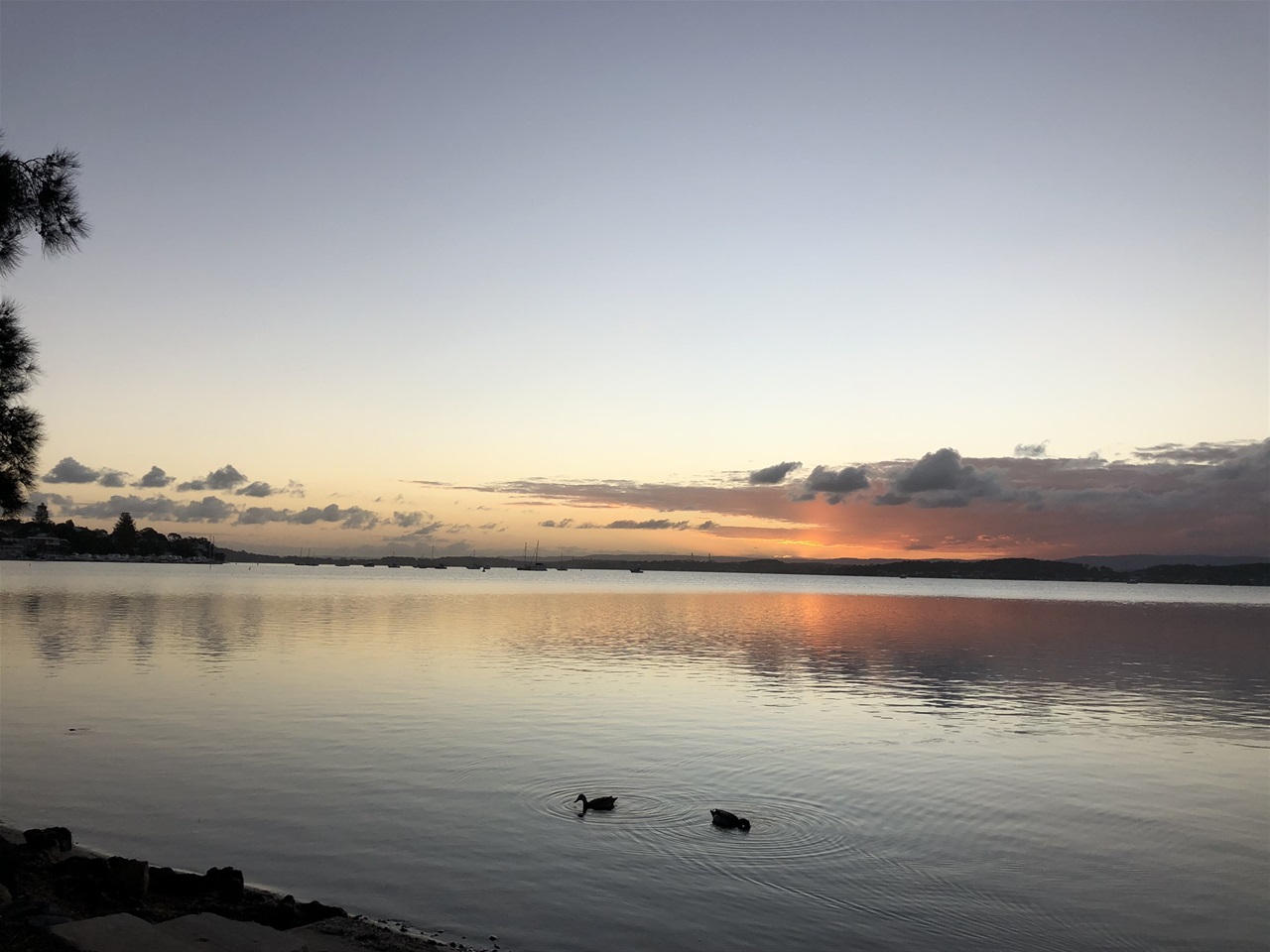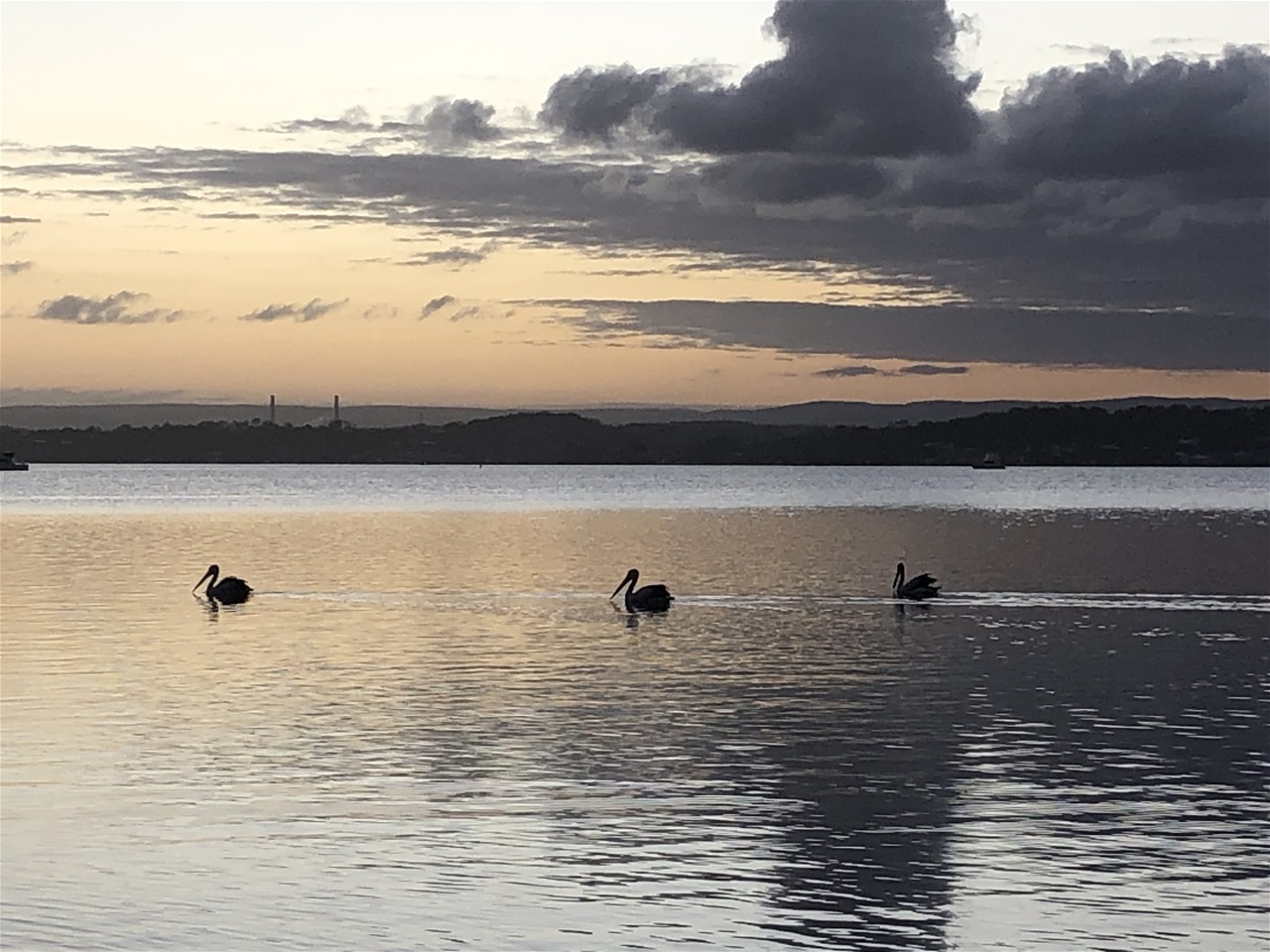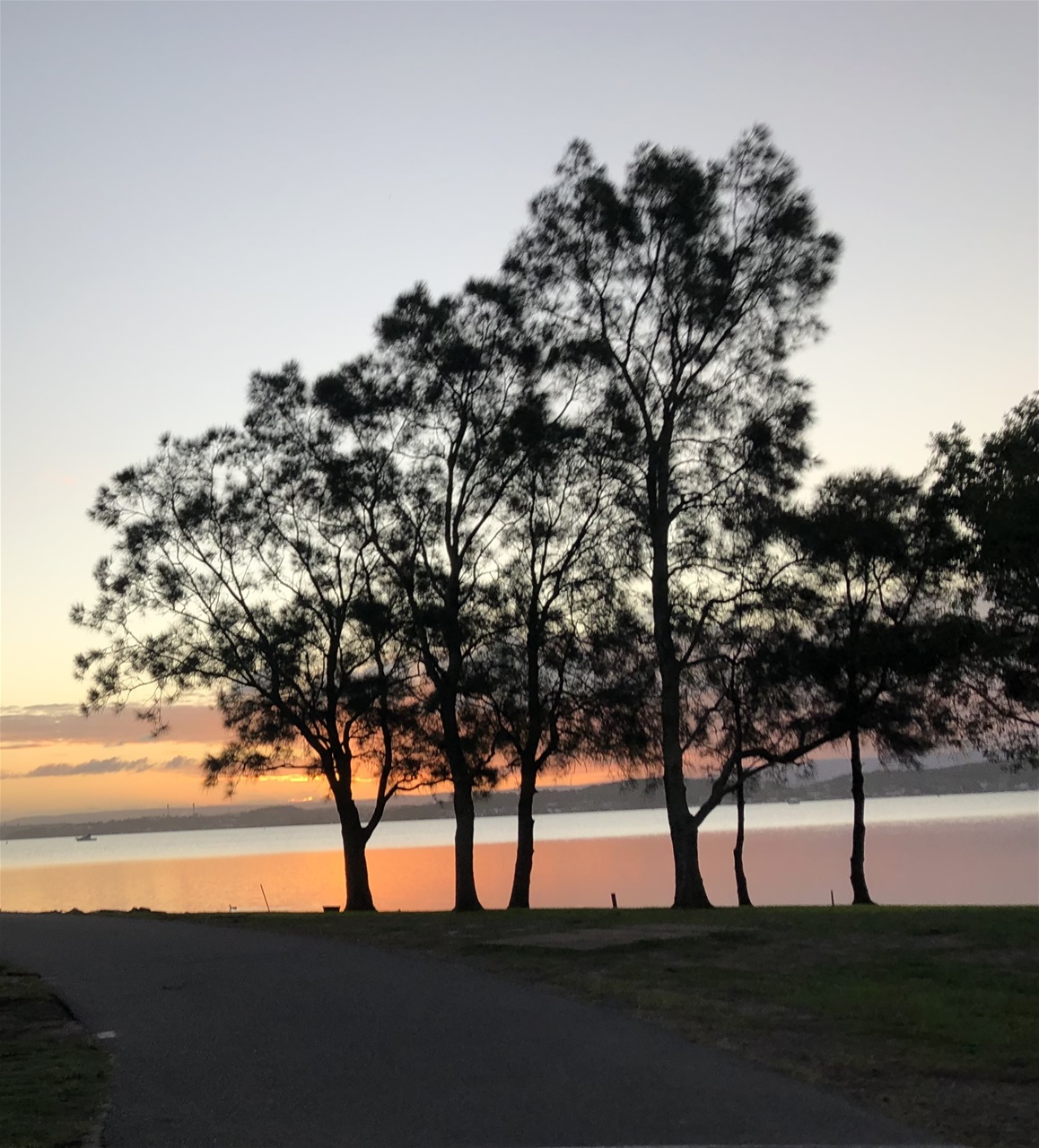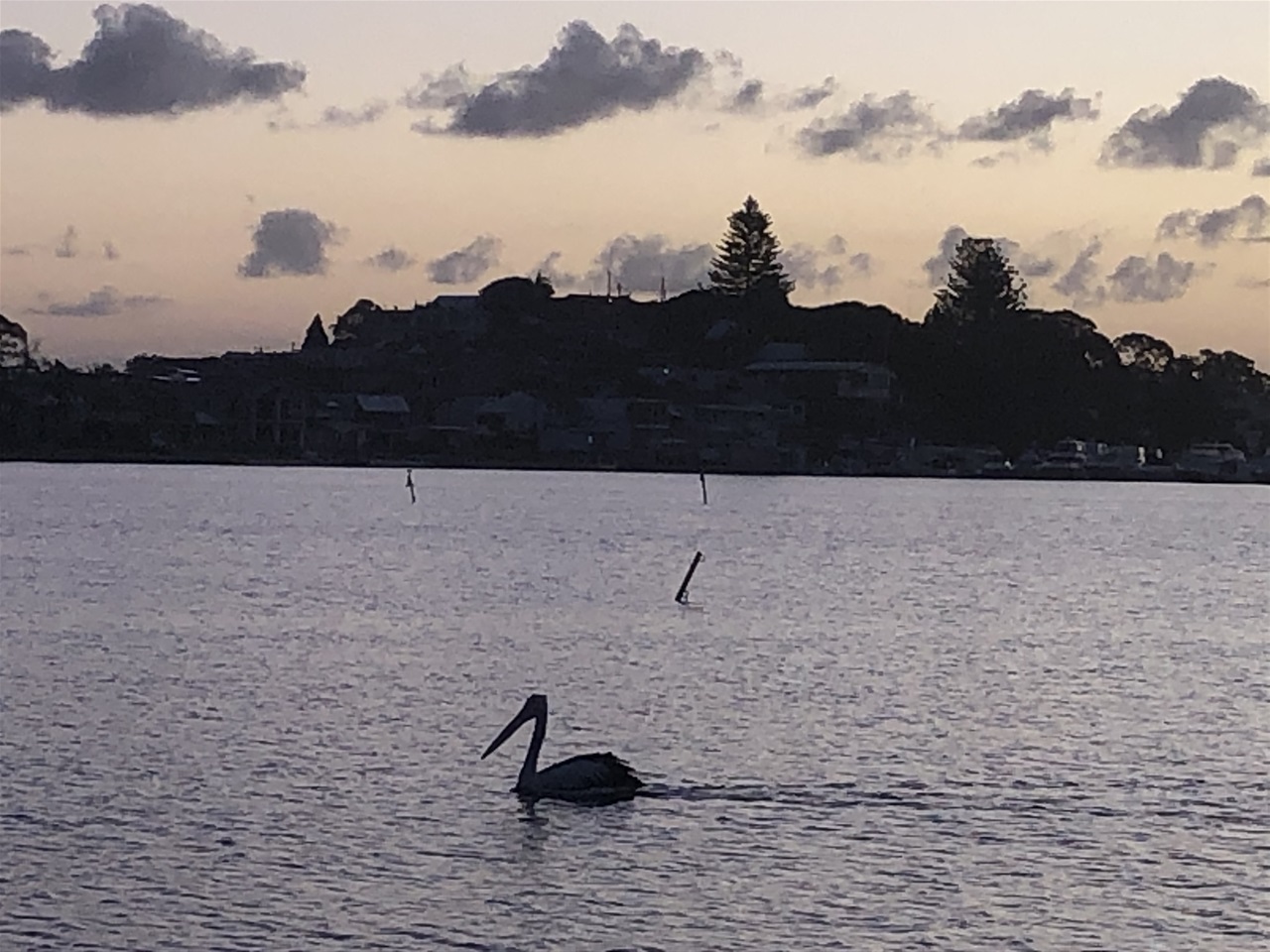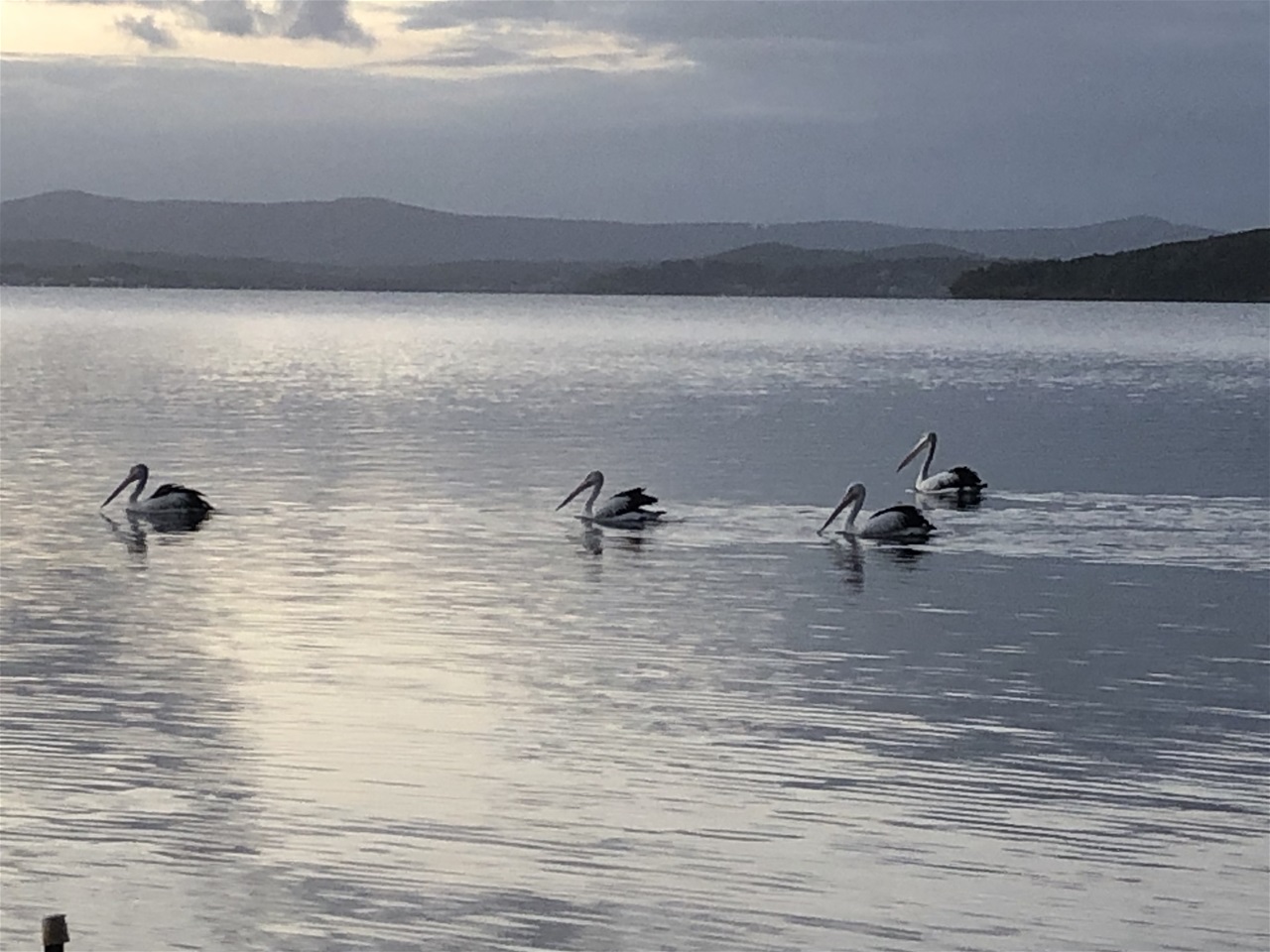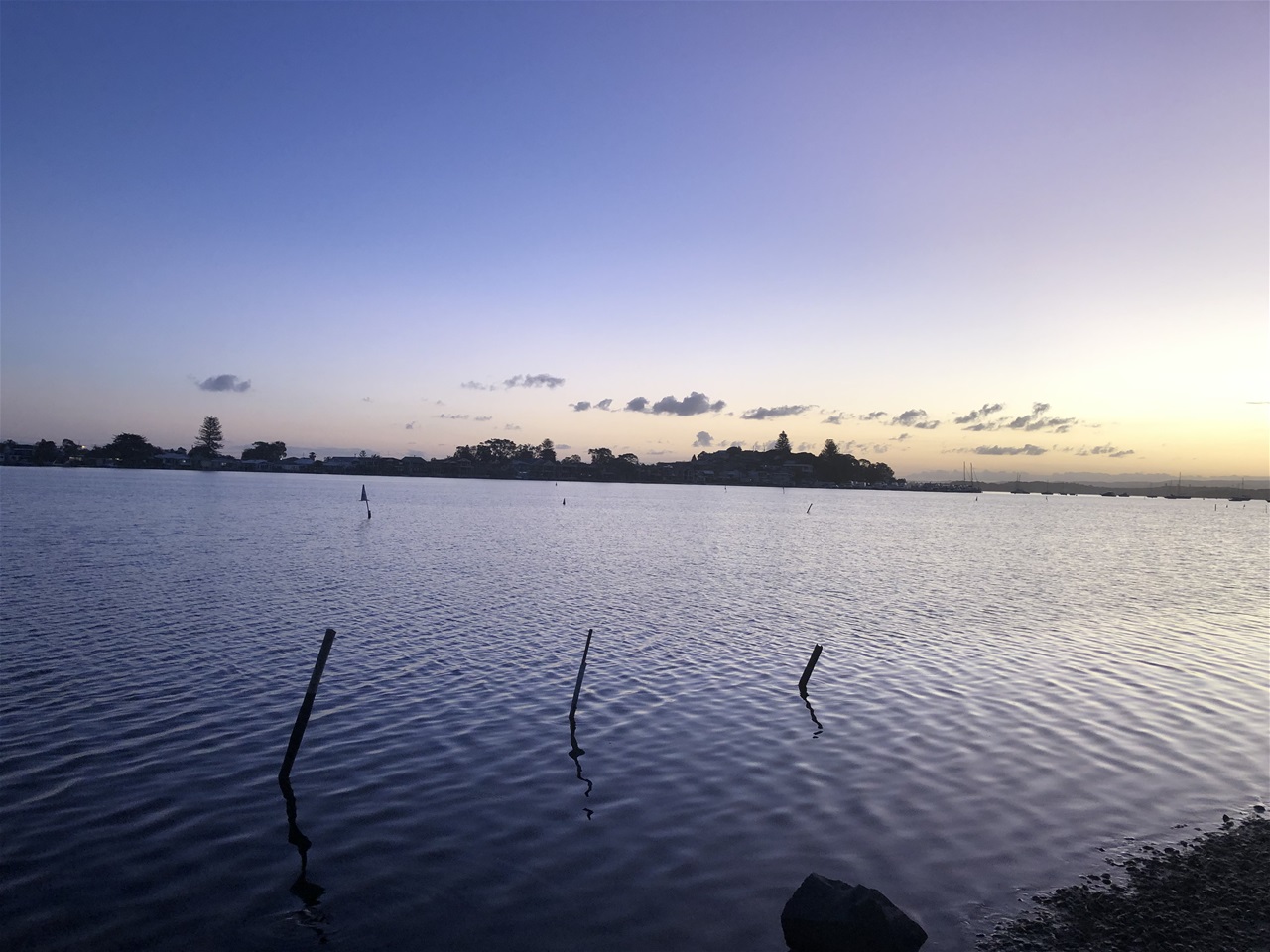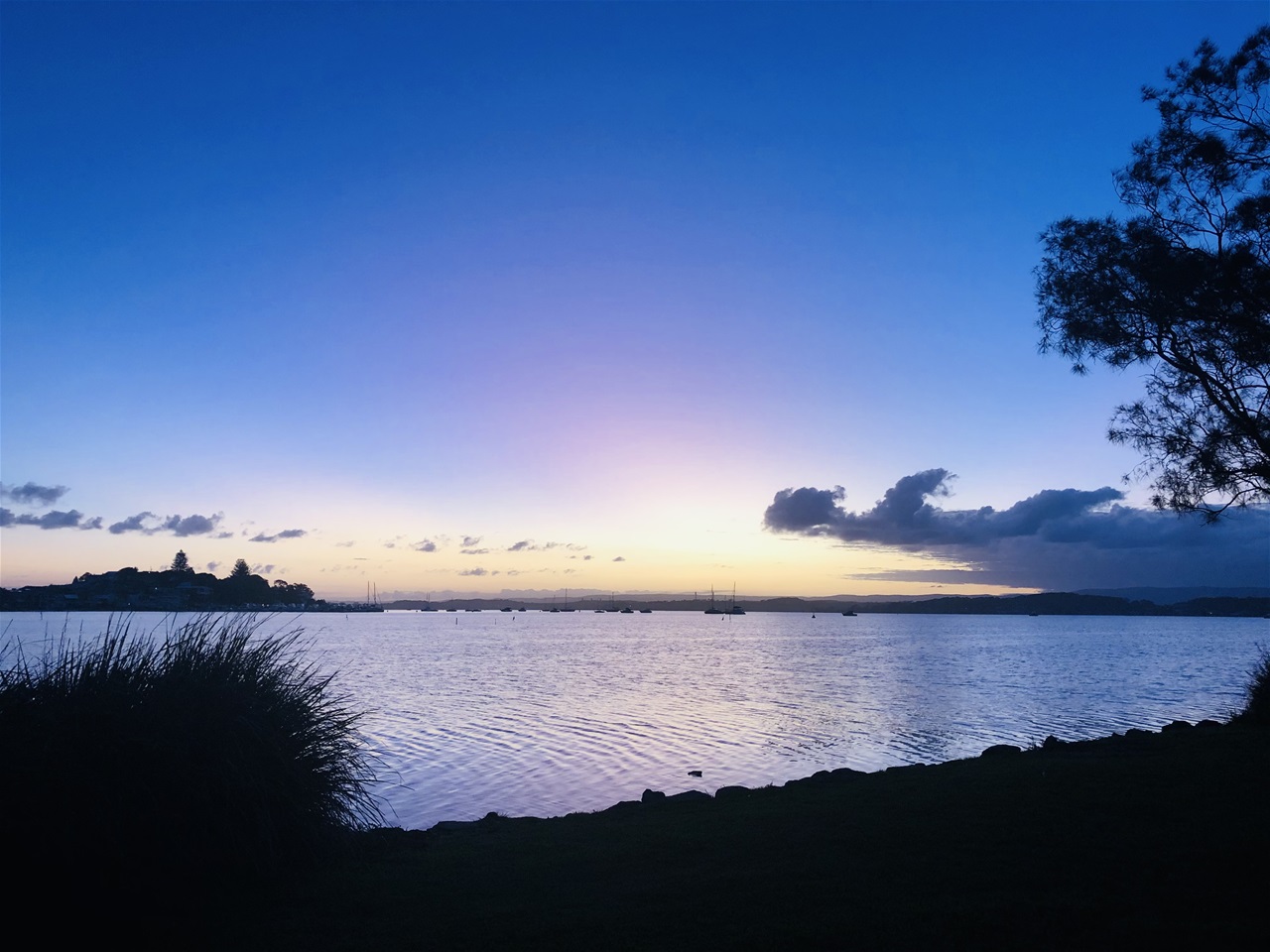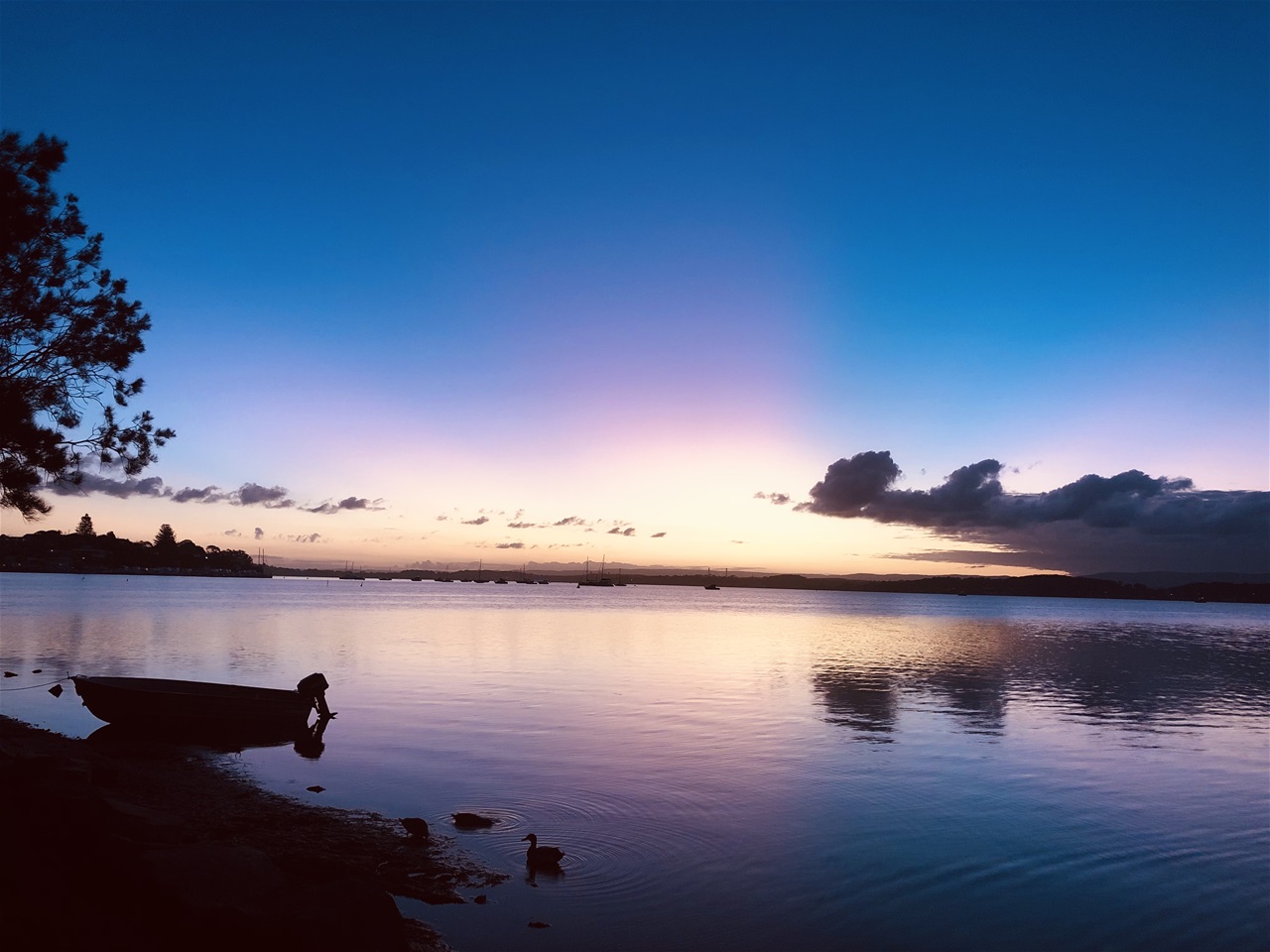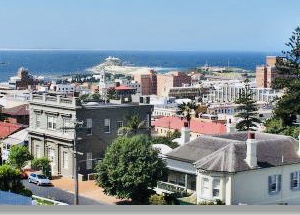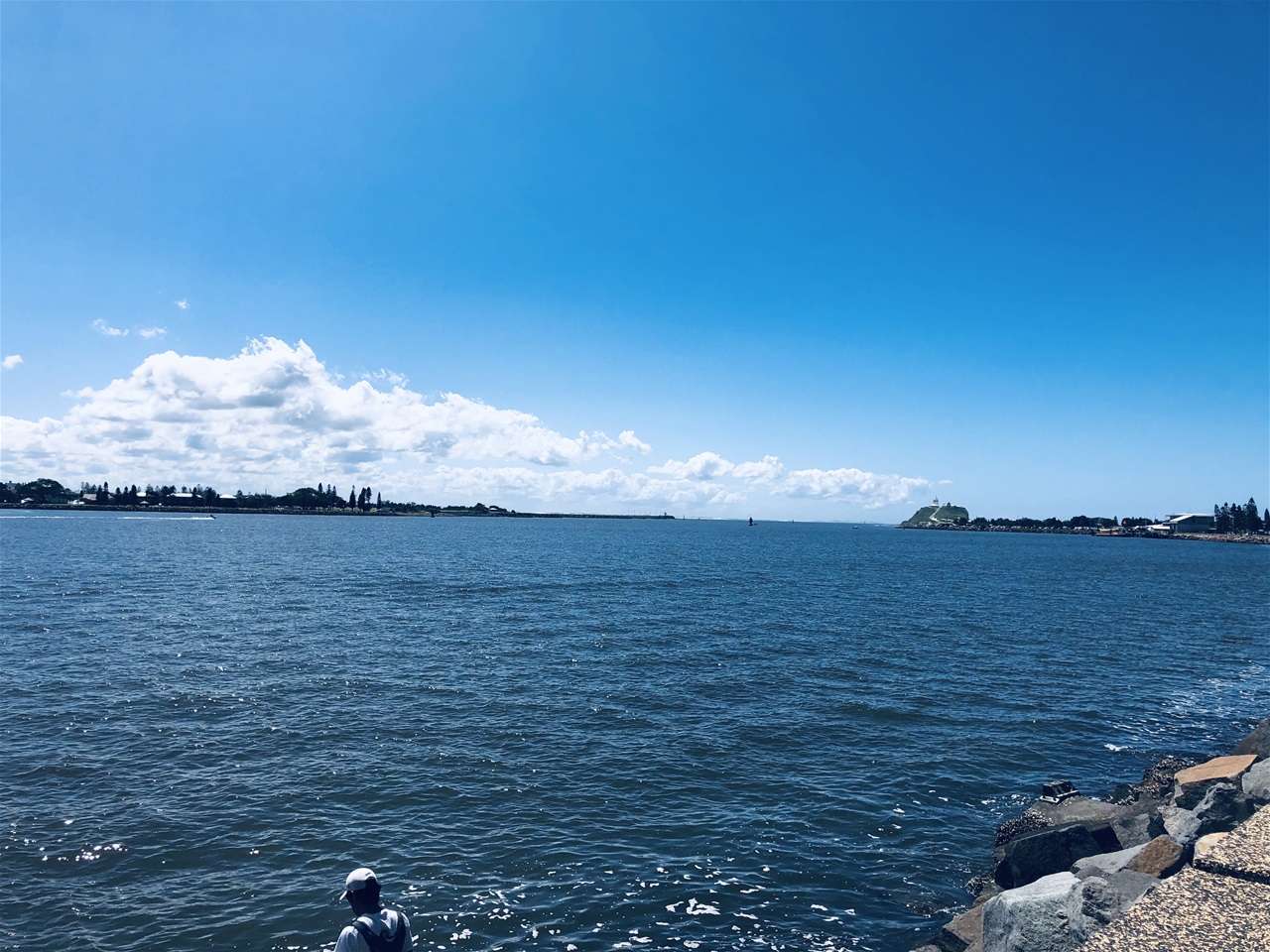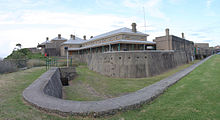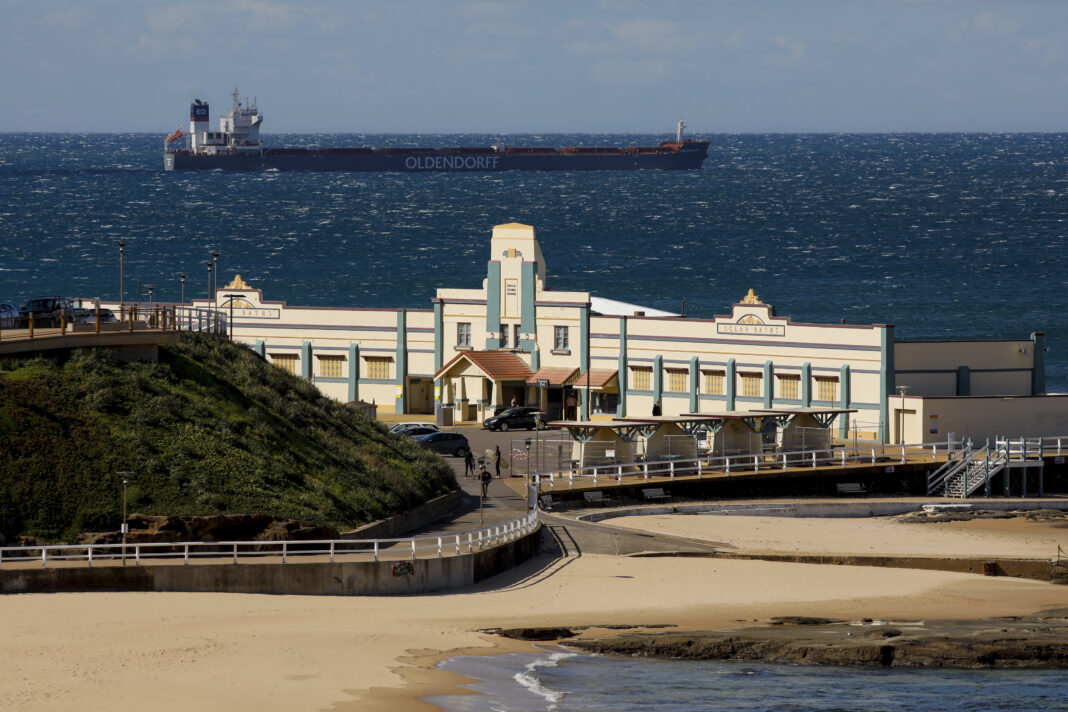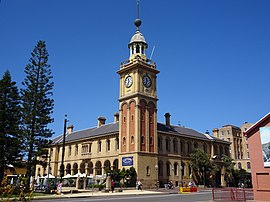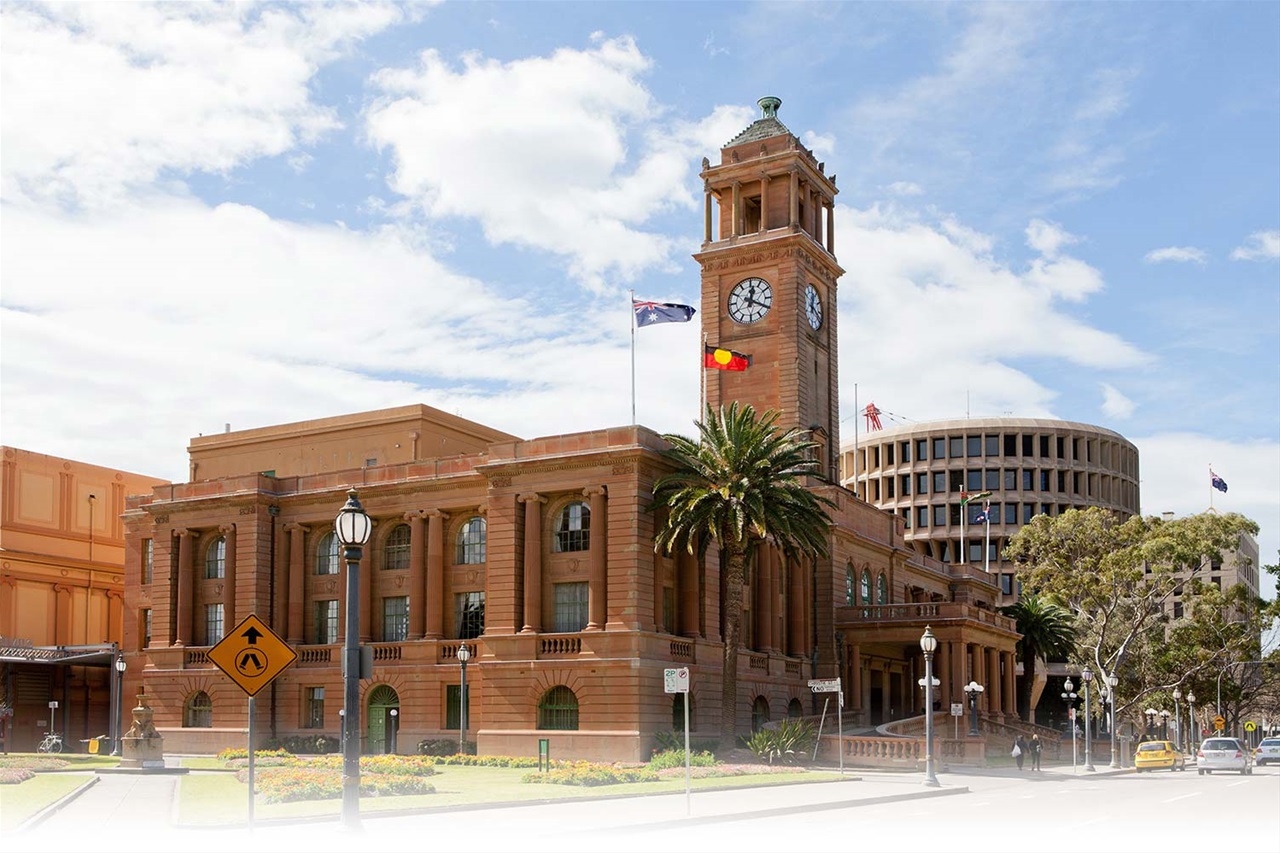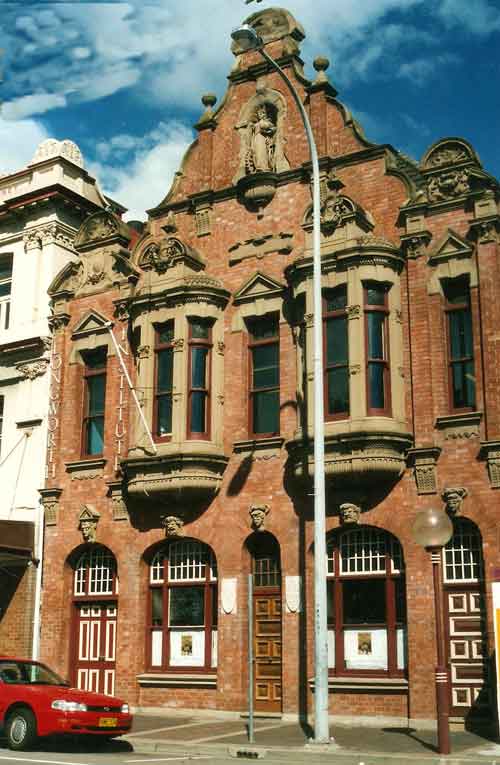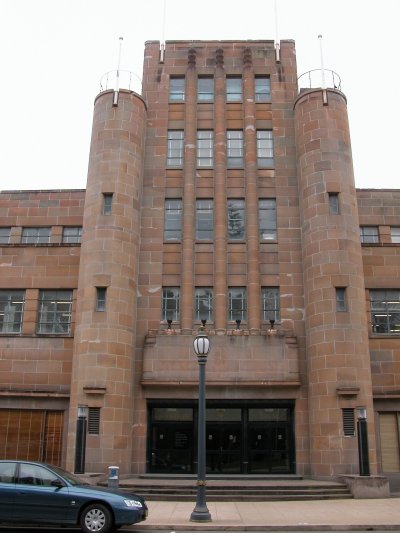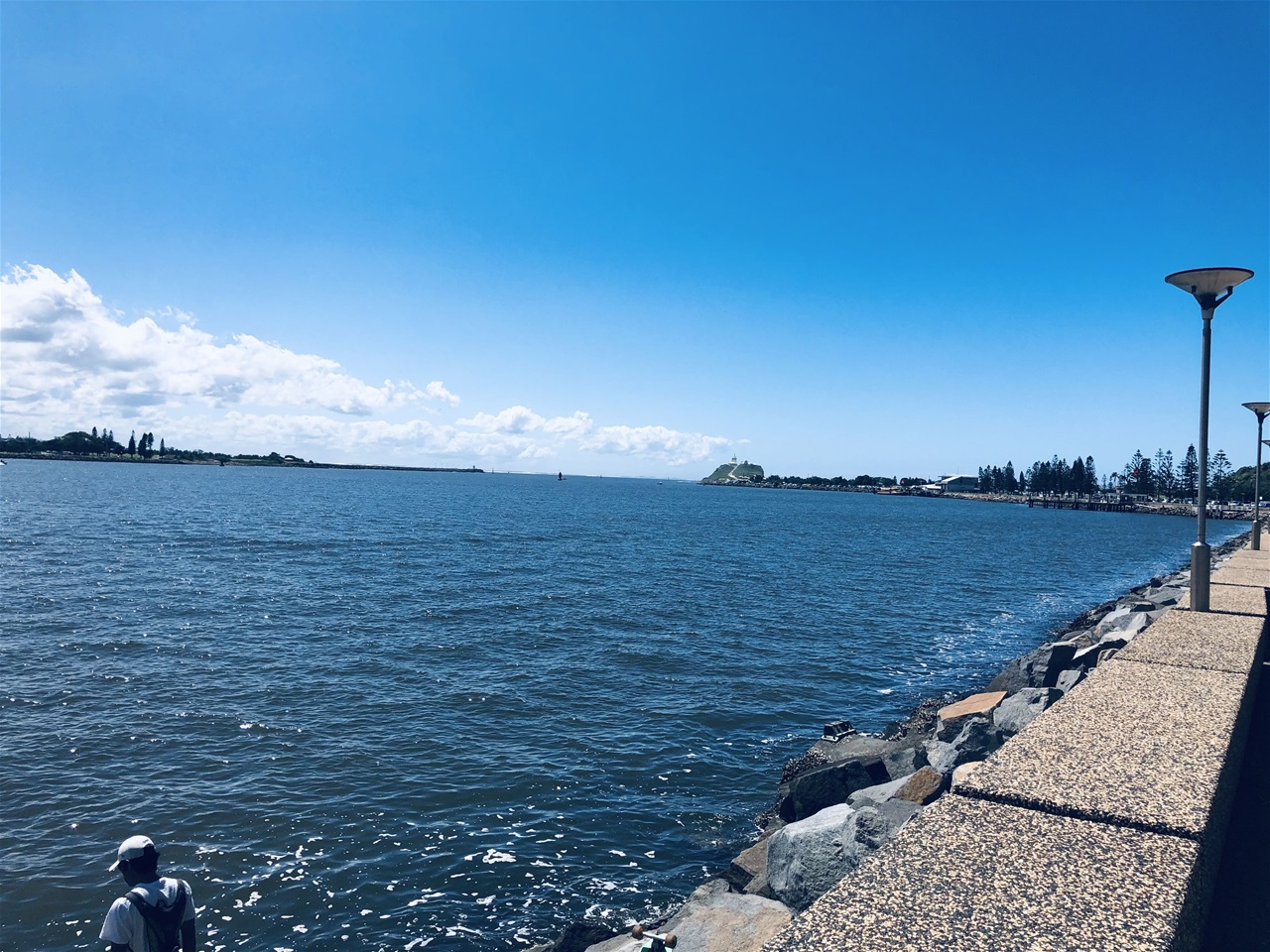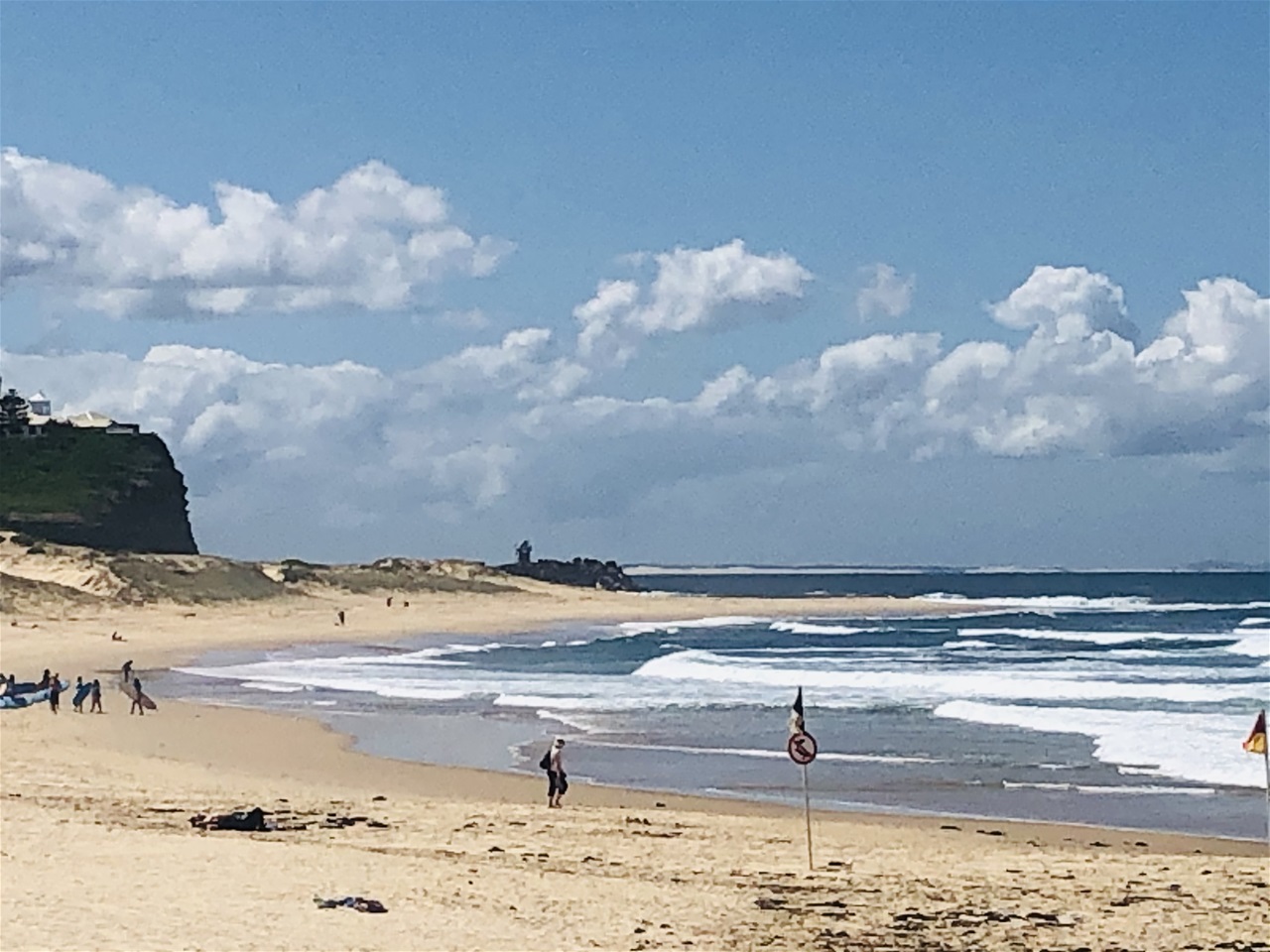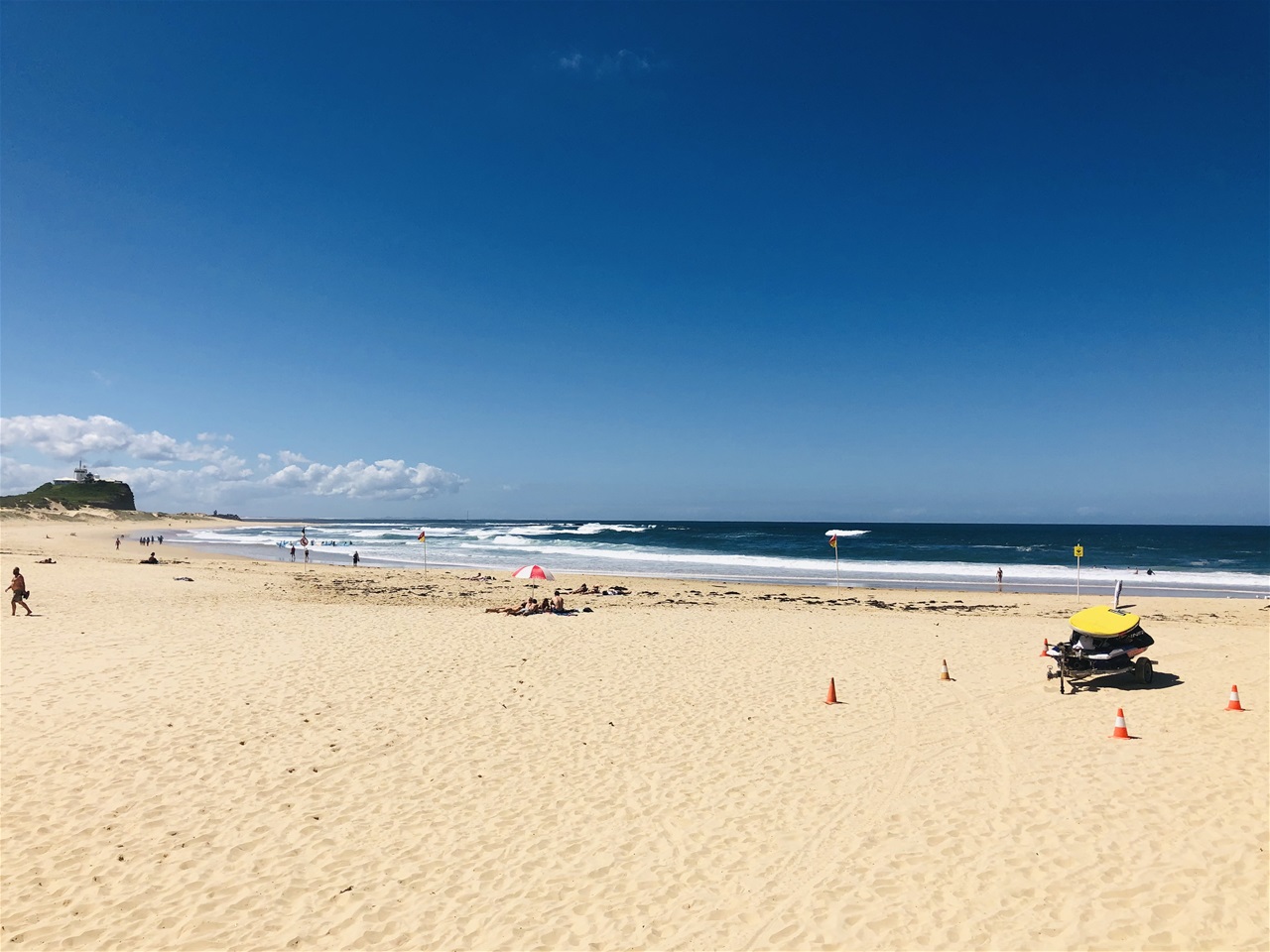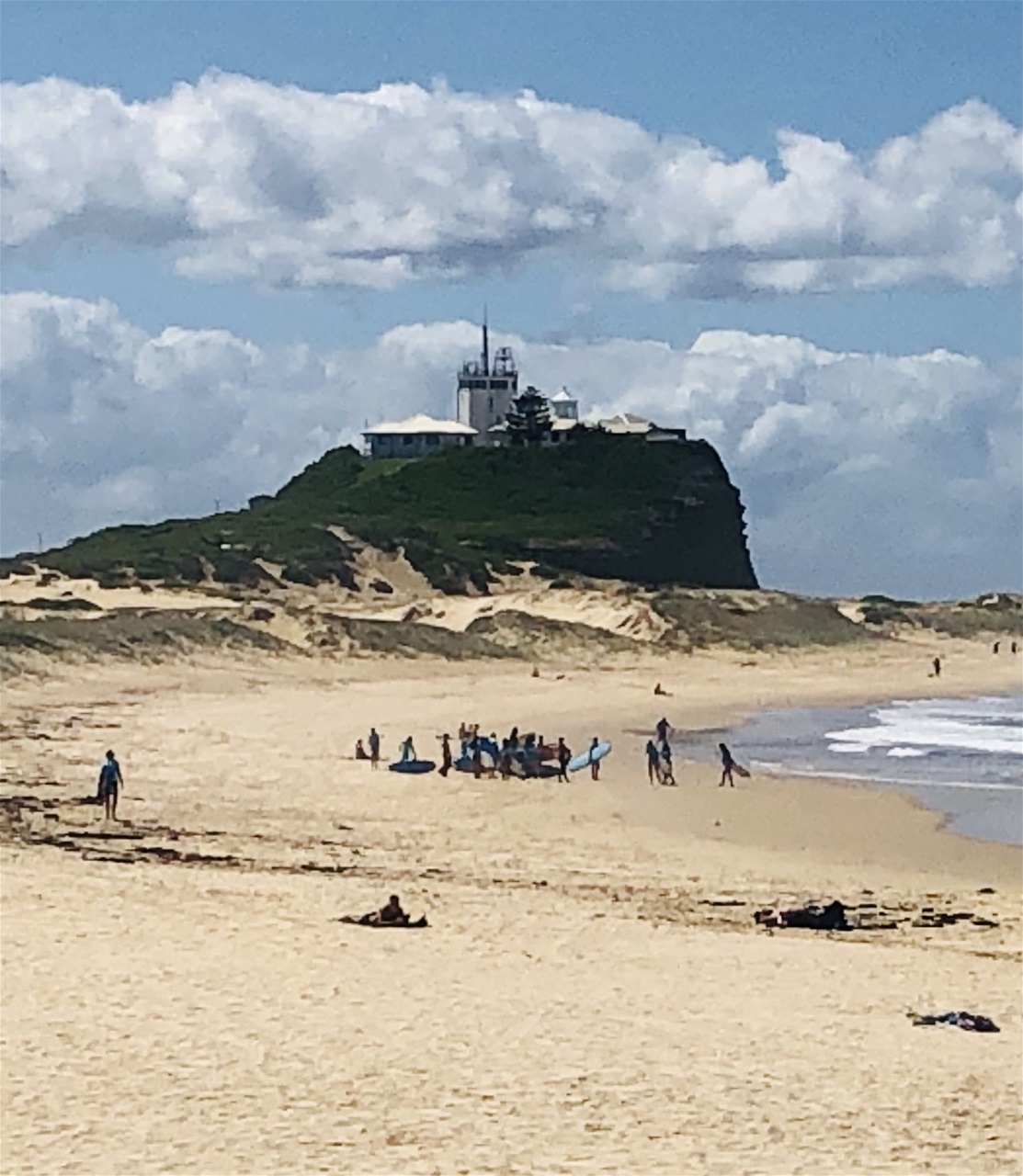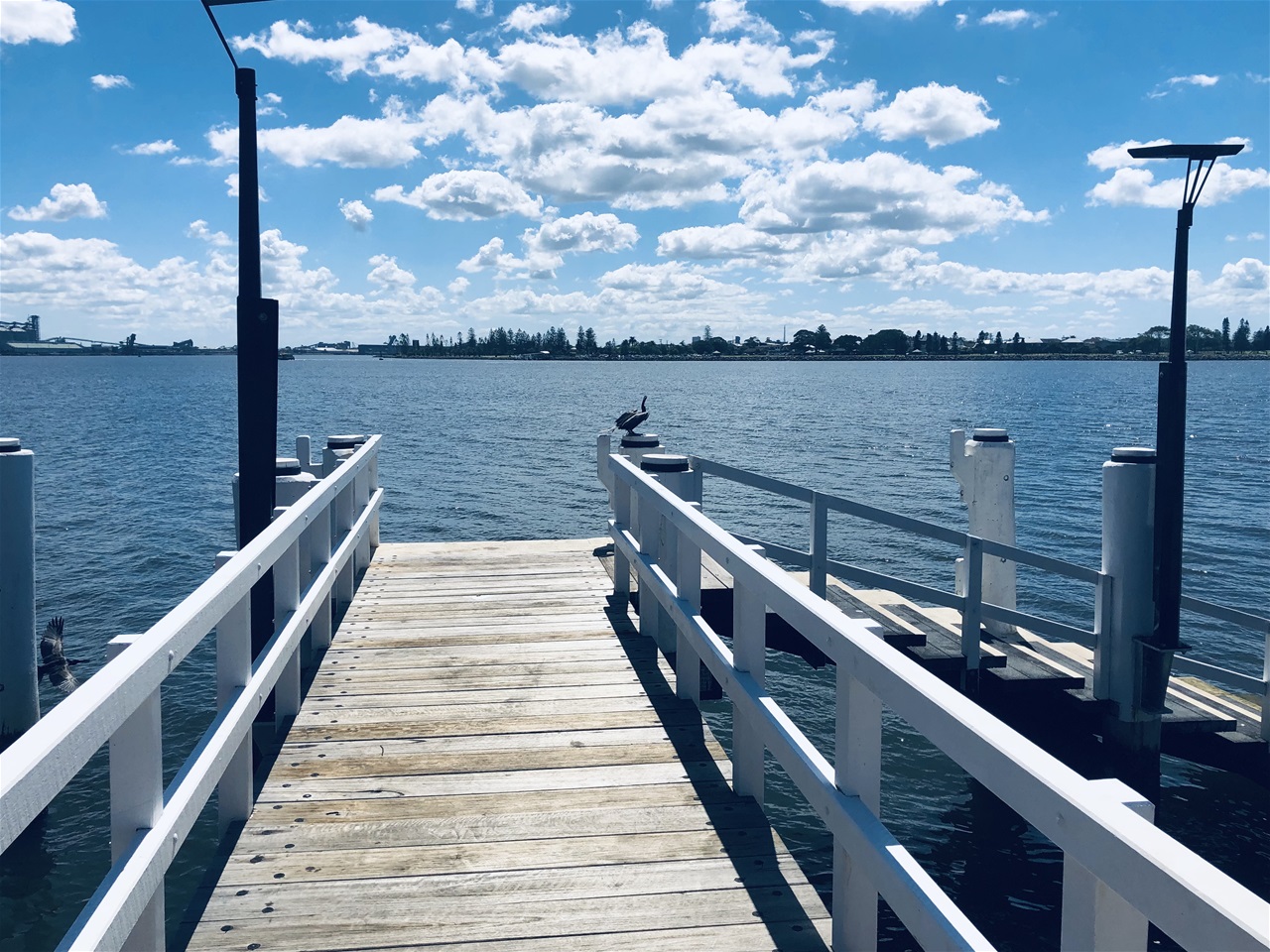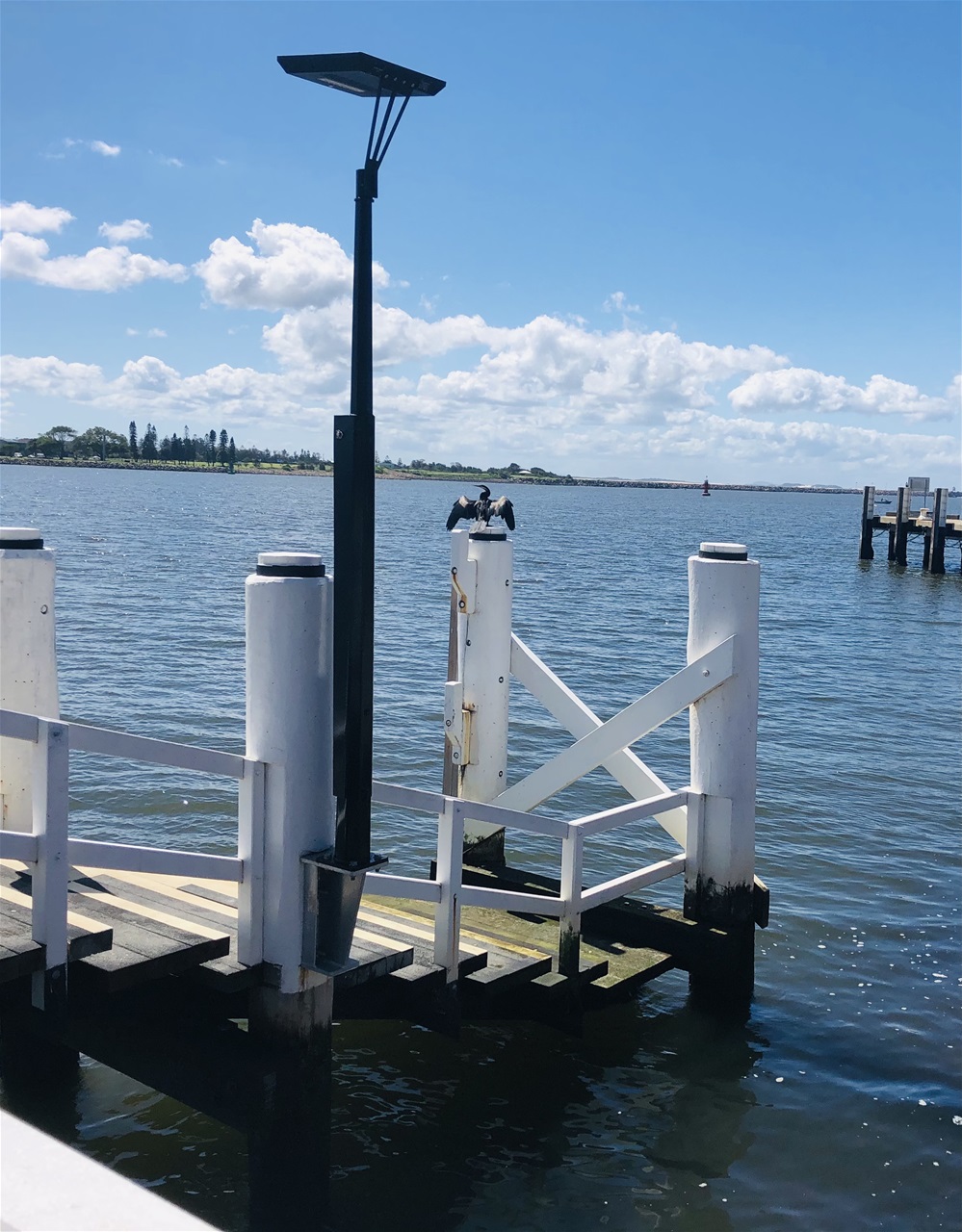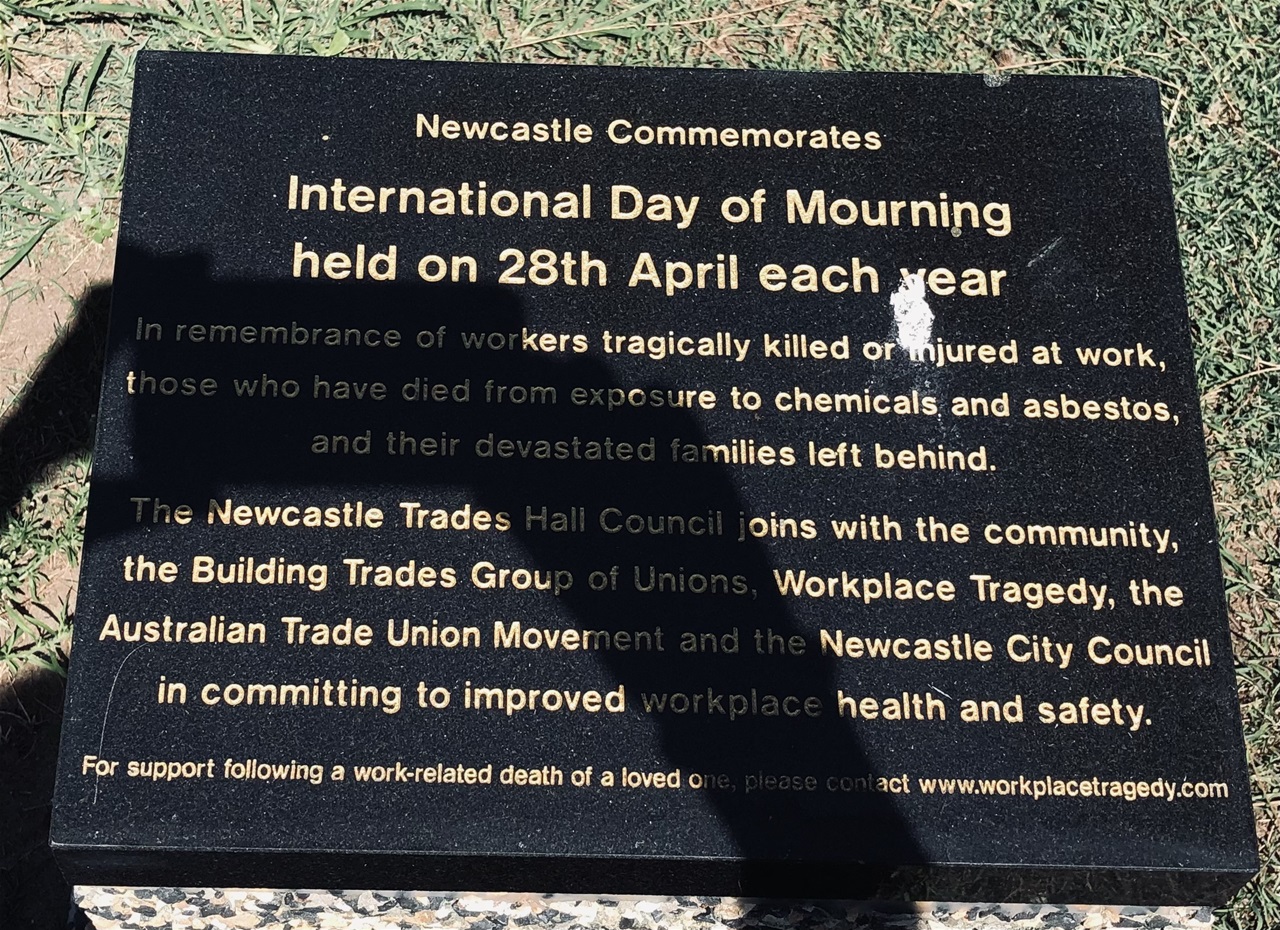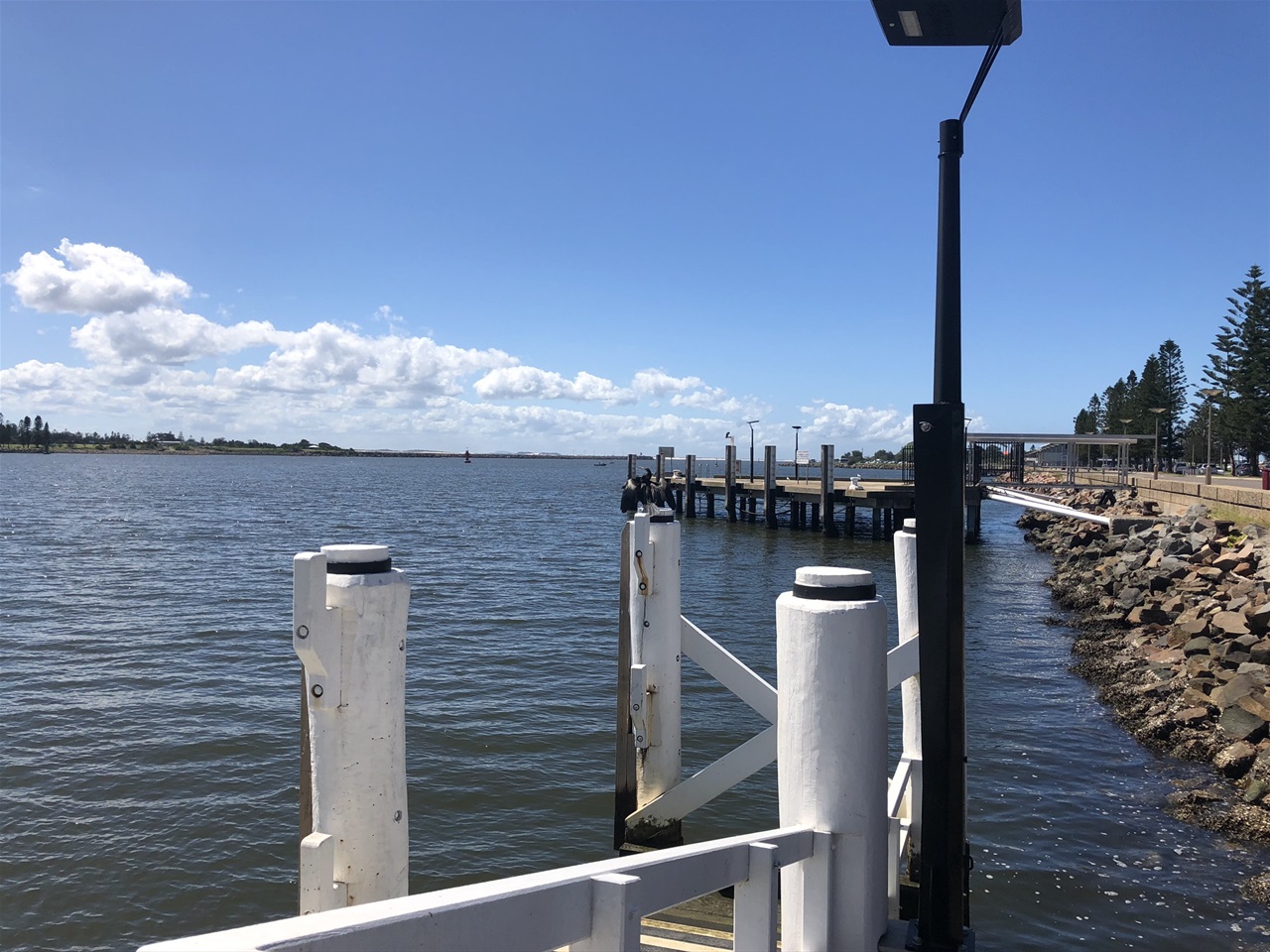Monday 16 March 2020
'Pilgrimage' to Newtown
It had been another cold, autumnal night in Glebe and the following morning brought dark clouds and heavy rain.
We had been lucky indeed to have had some respite from that inclement weather during our time in the Blue Mountains the day before.
Our hire car firm had responded to my email and confirmed that we could pick up the car that morning rather than on Wednesday which was excellent but as check-out was at 10:00 am we either had to take all our luggage with us and battle against the elements in pursuit of the nearest metro station or pay approximately $35 for a taxi.
Before deciding on either, we contacted our landlady to ask whether we would be able to leave our luggage in a corner of the flat for an extra hour or so while we went to pick up our hire car.
Her response was that we could leave it all day if we wanted to as the flat would be unoccupied until the following evening.
She suggested that we keep the keys until we returned for the luggage then leave them on the door when we left.
The cleaner would be arriving at 3:00 pm but if we left our packed bags against the wall near the door that shouldn't be a problem; we assured her that we would definitely have collected our bags by then.
It was very kind of her and we were extremely grateful.
Without our luggage in tow we easily found a bus that took us to Redfern then we caught a metro to Mascot and our usual bus to the airport.
The hire car desk was inside the international airport terminal which at that point was already pretty empty.
As we appeared to be the only ones at the hire car desk at all that morning, it took very little time to sort out the admin and pick up the car.
Within minutes we were en route to Glebe to collect our luggage.
We had never driven in Sydney before so we were a little worried about how we would cope with it especially with all that rain, but the roads didn't appear to be particularly busy so it wasn't as difficult as we thought it might be.
To get back to Glebe we had to drive through Newtown; our first home in Australia when we arrived soon after Christmas.
When we saw those familiar places again we felt quite nostalgic for the warm, balmy days we had spent there during the busy hustle and bustle of the Christmas festivities.
The weather was very different on that day though.
The swelteringly hot weather we experienced back then had been replaced by wintery rain and there were decidedly fewer people in the streets or in the shops.
Nevertheless, we decided to park the car and take a walk down Memory Lane.
When you spend months rather than days or weeks in a new country, you get to know it in a completely different way.
It becomes more than just a holiday as you establish a relationship with that land and you develop attachments and memories of different areas and places you have visited as we had done with Newtown.
On that rainy morning we relived those early memories; we walked past our first Australian home, we then picked up some picnic food from our 'local' supermarket, checked out the familiar op shops we had supported during the worst of the wildfire season, visited the station from where, on our very first day in Australia, we accessed the magnificent Circular Quay and saw one of the most extraordinary sights in the world, last but not least we had an excellent coffee in the café in the station foyer.
We had been so caught up in how we would get back to the UK that we had given very little thought to the fact that if all went according to plan we would be leaving Australia that week.
It was while we were walking in those wet, isolated, yet very familiar streets in Newtown that we suddenly thought of that and it did make us feel a little sad.
We realised at that point that we would probably not go back to Newtown at all after that day and that we would never have anymore flat whites in that excellent station café.
For that reason when we paid our bill that morning we told the barista through the hatch in the wall that his coffee was the best we had tasted on our travels in both Australia and New Zealand.
He was so surprised to hear us say that, that he came outside to shake our hands, thank us profusely and wish us well on our homeward travels later that week.
We were sorry to say goodbye Newtown but our luggage was waiting.
As we left that familiar station foyer for the last time, we took out our bottle of sanitizer and poured a generous dollop onto the hand that had been warmly grasped by our grateful barista.
The 'new normal' was suddenly upon us
"The best way to predict your future is to create it".
Abraham Lincoln
We set off from Glebe with all our luggage at approximately 12:00 noon.
We set course for Belmont South on our sat nav and discovered that our journey would take us very close to Ettalong beach where we had come with our daughters on the day after we arrived in Australia.
Notwithstanding the cold, wintery weather, we were still planning to have a picnic somewhere interesting en route that afternoon so when we realised that we would be passing quite close to Ettalong, we thought that we may as well stop there.
We estimated that it would take a couple of hours to get there in that very rainy, overcast weather so it made sense for me to use the time in the car to call the British High Commission for repatriation advice, as by then, we were 100% sure that our travel insurance would not be taking any steps at all to assist us.
This time our case number was recognised and although I was not put through to Vivienne, who we had spoken to before, the young man who replaced her was equally affable and helpful.
He was outraged at the behaviour of our travel insurance providers and he told us that we should document every extra expense and payment, no matter how small, from 12 March until we got home and add it all to our claim.
He explained that as we would have stayed with friends in Singapore and KL if we had we been able to travel on 12 March as originally planned, all expenses incurred from that date onwards should be claimed from the insurers on our return to the UK
He told us too that we shouldn't prioritise expense over safety at such a precarious time, especially considering our age.
He applauded the fact that we had chosen to leave Sydney and spend three days of that week in remote Belmont South but he also said that we should not hesitate to book expensive hotel accommodation if we felt that was the safest option.
In actual fact, we believed then (and it has since proved to be correct), that self contained units where we shared no access or facilities with anyone else, were by far safer than crowded hotels full of tourists waiting to be repatriated.
He also told us to download the gov.uk app onto one of our phones so we could check UK government advice on a daily basis, informing us on which countries to avoid travelling to at that time.
He emphasised the fact that if FCO advice was NOT to travel to a particular country or area of the world then we needed to adhere to that regardless of what airlines and travel insurance providers were saying.
With that in mind, he strongly advised us not to fly home via SE Asia on the 20th as all of SE Asia would be in lockdown by the end of the week and more and more flights were being cancelled every day.
Vietnam Air had already cancelled most of their flights to the UK as had Malaysia and Singapore.
We had not been made aware of that before.
If we did travel to any of those countries on the 20th, we would almost certainly be forced into quarantine in expensive and probably very basic government facilities.
When I explained that I had attempted to contact Vietnam Air on several occasions since early March, he speculated that airlines were either not responding to emails from passengers at all or were not always providing advice which would be in the best interest of their passengers
Vietnam Air should had not responded to any of my emails and had not explained to us that we should not travel to Hanoi on 21 March.
I suppose if they had done that, it would have amounted to the cancellation of our booking and a full refund from them which when multiplied hundreds of times over, would invariably lead to financial ruin, so they avoided making contact with passengers all together and left it up to them to decide whether to travel or not; that way they could claim later that they continued to operate even when borders were closed so if travellers were forced into quarantine facilities, it would not be down to them and they would not be obliged to issue any refunds.
The young man at the British High Commission, strongly advised us to book alternative flights to the UK via a different route as soon as we could.
He told us not to worry about the luggage as it could be shipped back for a few hundred dollars and we could add it to the list of expenses which our insurers should settle with us by law in due course.
He also reminded us that as we had booked business class flights from Hanoi to London on Vietnam Air, we were fully entitled to book business class flights on any alternative booking we made and claim the difference in cost back from our insurance once back in the UK.
I explained that the previous evening I had checked the cost of flights and the BA one I found at £700 suddenly jumped to £7000.
He was not surprised to hear that as some Australian travellers were paying up to $30,000 to return home before the country closed its borders the following week.
He appreciated that we would not wish to part with such a large sum of money in one fell swoop but he insisted that if that were our only option then our insurers would be obliged to reimburse us in due course.
He advised us to check online again and again over the course of the next few days for alternative flights home but also to use our judgment, if we felt that we could not pay the exploitative rates which airlines were charging stranded passengers for repatriation flights home at that time, then we could stay in Australia longer, but he also warned us that once borders and airports closed, it could be months before they re-opened.
He told us to take screen shots of several payment pages of these expensive flights and send those as attachments to our insurers together with estimated rental fees and living expenses in Australia for approximately three months.
He was sure they would offer immediate assistance on receipt of documents such as those.
Whatever we decided to do, he repeated what he had advised earlier, which was to retain all receipts and payment documentation from 12 March until we were safely back home in the UK, regardless of how long we remained in Australia and we should send photos of these to our travel insurance providers on a daily basis so we had ample proof of our attempting to contact them whilst stranded on the other side of the world without their assistance.
He suggested bombarding them with at least three emails a day with expenses attachments, including rental payments, food bills, travel costs etc.
He assured us that it wouldn't take many such emails before they decided to respond and offer us proper advice and assistance.
He was not wrong.
Speaking to that young man was the single most useful conversation we had with anyone at that time.
We had booked and paid for premium cover travel insurance and one way or another we would now receive it.
We had been empowered and it felt good.
Sadly I do not remember that young man's name but we were immensely grateful to him for the excellent advice he gave us and also for remembering to call us the next day on my Australian mobile number to make sure we were ok.
If only we had spoken to him several weeks before we would have been spared a lot of stress and many sleepless nights.
A rainy drive over Sydney’s iconic Harbour Bridge en route to Belmont South
'Picnic' on Ettalong Beach
It was as if a very heavy weight had been lifted from our shoulders after my conversation with that helpful young man at the British High Commission.
We were finally in control of our own destiny and would decide what was best for us with or without our insurer's permission or intervention.
It was a good moment and we were more than ready to enjoy our picnic on Ettalong Beach.
Sadly the weather did not reflect our mood so we ended up having our picnic in the car whilst watching the rain fall gently onto the white sandy beach ahead of us.
Once we finished eating, it did stop raining and brighten up a little so we decided to go for a little walk on that long stretch of beach from Ettalong to the ferry port in Woy Woy where we had caught our ferry to Palm Beach on that very hot day in late December.
Back then the beach was teeming with family groups, friends and children playing, swimming, running, having picnics or barbecues and generally enjoying the Christmas festivities Australian style.
On that day, however, our only companions were cold and wet seagulls with the occasional Great Crested Tern or Pelican.
It was still good to be back there though.
It reminded us, that notwithstanding the many challenges we had faced and all the cancellations and re-scheduling we had been confronted with throughout, it had been a wonderful trip from the very moment of our arrival.
To have experienced swimming with pelicans on our first full day in Australia was pretty amazing.
We had hoped to have a coffee at the Box on the Water bistro where we had eaten with our daughters and their friends when we were there in December, but unfortunately it was closed on that day; whether that was due to Covid, the bad weather or both, we did not know but it was unfortunate for us.
We had an excellent beachside walk in Ettalong and Woy Woy that afternoon; we would have stayed longer but a new wave of driving rain and cold autumnal sea breezes urged us to return to the car and press on to Belmont South.
Arrival in Belmont South
We arrived at our new accommodation in the small community of Belmont South at approximately 6:00 pm
As in Glebe our self contained studio apartment was attached to the main house but it was fully independent with no shared access whatsoever..
We entered via our own 'front' door at the back of the house and it was clean, newly refurbished and very well equipped.
We had our own mini kitchen and private terrace with a huge state of the art gas barbecue.
The landlords were delightful and came to meet us in person soon after we arrived.
They told us not to hesitate to call them should we require anything at all.
We had been extremely fortunate yet again with our Airbnb accommodation.
This was very much a low cost option but I do not think we could have been more comfortable in a four star hotel.
Once we settled in we walked to the banks of the beautiful Lake Macquarie, which happened to be at the end of our road.
We had been told about the abundance of wildlife in that area of NSW so we were keen to see it for ourselves, especially as the rain had cleared and we really needed to stretch our legs after several hours in the car.
We had very few expectations of that final week in Australia.
Our priority above all else was to stay safe, self isolate as much as possible and plan our immediate future.
But the deep autumnal colours of that sunset walk along the banks of Lake Macquarie totally took our breath away.
We saw flocks of ducks and pelicans all around us as well as an abundance of cackling white parrots flitting from tree to tree.
We spotted Honey Eaters, Australian Biterns, red-backed Kingfishers (I think), herons and so many other birds which we couldn't identify.
The sunset when it came was beyond spectacular.
We had never seen anything quite like it.
The sky with its dark, wintery rain clouds illuminated by the powerful autumnal sunlight, looked like an oil painting by one of the great masters.
It was one of the most glorious sights we had ever seen anywhere not just in Australia.
Without realising it we had stumbled upon one of the most prized holiday destinations in NSW.
I cannot recommend this area enough, especially for bird watchers.
We will definitely return there for a longer stay when we are able to go back to Australia - hopefully in the not too distant future.
https://lakemacholidayparks.com.au/
A "Medium Sized" Huntsman
After our wonderful walk along the banks of Lake Macquarie, we decided to pop to the local supermarket and pick up some food for our barbecue and a bottle of Hunter Valley wine.
We had had an unexpectedly successful day so an Australian style barbecue was the perfect way to conclude it.
We found a large but almost completely isolated supermarket a short drive from our accommodation where we bought everything we needed for both nights in Belmont South, then we returned home and enjoyed a delicious barbecue with a perfect bottle of Hunter Valley Shiraz.
After we finished eating, I drafted my first 'claim' email as advised by the young man I spoke to earlier at the British High Commission.
I explained that as we were premium, platinum level clients of theirs and had been offered no useful repatriation assistance at all, I would now be sending them copies of all invoices we expected to be reimbursed for once back in the UK.
I attached five invoices to that email and sent it but I then realised that we had been quite abstemious since returning from New Zealand.
Our accommodation payments had been very reasonable and our meals had been modest so receipts of those invoices would cause our insurers very little concern.
We needed to impress upon them the difficulty of the situation we found ourselves in.
To do that they needed to see the cost of flights back to the UK as we had seen them the previous evening so I decided to take a few screenshots of the cost of some of the flights being advertised online at that time.
I was in the process of doing that when I suddenly realised that my husband had left the room and was back out on the terrace.
It was past midnight so I was surprised that he had gone outside again at that time.
He back came in soon after with a can of insect repellent and a broom.
When I asked what he was doing, he simply responded with: "have you seen what's on that wall behind you?"
I looked over my shoulder and there on the magnolia wall next to our bed was the biggest spider we had ever seen in our lives.
It was the size of a frying pan and its legs were enormous.
We could not stay in the flat while that spider was in there with us and we certainly had no idea how to deal with it ourselves.
We had no idea what type of spider it was nor whether it was a venemous one or not.
We had looked at images of spiders and snakes prior to travelling to Australia the previous December so we would be able to identify them if we needed to, but when you are actually confronted with one in the flesh, so to speak, the images are of no help at all.
We had no choice but to call our landlords and ask for assistance.
When the landlord arrived he too was startled at the size of it and claimed that he had rarely seen one so large.
We wondered if we had to call a Spider Removal service as my former colleague had done in Sydney when she moved into her new home and spotted several red backs in the garden.
Our landlord told us that it wasn't necessary on that occasion as the spider in our bedroom was not a potential killer; it was a huntsman; just a medium sized one apparently; they could grow to twice or even three times the size of that one and early autumn was when they sneaked into people's homes to avoid the cool night air.
It must have crawled in through our front door while we were having our barbecue; we didn't think about shutting our windows or doors, but we definitely would the following night and every night after that wherever we were.
Trapping it under a glass and getting it out that way wasn't an option with that creature; even the landlord didn't know how best to approach that conundrum.
He couldn't risk trying to catch it with a broom and a dust pan in as it could escape under the bed and make it difficult for us to sleep there so sadly he had no choice but to spray it.
He told us that he sprayed it with a small amount of repellent just to daze it for a while to give him a chance to catch it and throw it out of the house.
This he did all very swiftly; he gently scooped up the spider's huge dormant body into a dustpan and put it out of the window into the front garden.
As it wasn't there the following morning, we assumed it had recovered and moved on; or maybe it provided another creature with a satisfying early breakfast.
Hopefully it was the former.
I remember saying to my colleague when we met up in late January, that Australia's reputation for having huge, dangerous spiders was a little exaggerated; we had been there for almost a month at the time and had only seen a dead one in our garden in Newtown soon after our arrival.
Never has the expression 'I spoke too soon' been truer than it was in our little flat on the shores of Lake Macquarie on that evening when we were faced with what must surely be one of the largest spider species in the world.
Even now over a year later, back in the UK, I still find myself checking under beds and cupboards just to make sure one isn't lurking there ready to pounce.
As much as we love Australia, neither of us are fond of arachnids, but large spiders, venomous snakes, plagues of mice and rabbits, 1 million camels, are 6.3 million feral cats are just a few of the examples of Australia's ability to sustain wildlife in a manner that other countries cannot.
Australia's bushlands provide a steady source of food supply all year round for its wildlife.
The climate is warm and dry in summer and temperate and humid in winter so all animals in the wild, including insects and arachnids, tend to do well there, they grow bigger than they would in a cooler climate and reproduce with relative ease.
Australia is a wonderful country and a trip downunder is one we would recommend to people of all ages but its extensive wildlife is part and parcel of the Australian experience.
Seeing parrots, cockatoos, budgies, kookaburras flitting from tree to tree is truly wonderful, watching kangaroos and wallabies bouncing along on the side of the road when when is on a country drive is something one never forgets but if you are there long enough, the chances are you will come across a poisonous snake and a massive spider at some point as we did.
Take comfort though, most house spiders in Australia tend to be huntsman; large, very large but not poisonous; I expect they would give you a nasty bite if you attack them but otherwise they do no harm.
It's the smaller red backs you need to watch and the funnel webs but even they don't seek people out to bite them.
If you leave them alone they won't bother you.
That's certainly how we saw it when we were there and it worked well for us.....most of the time!
Tuesday 17 March 2020
The Hunter Valley
https://en.m.wikipedia.org/wiki/Hunter_Region
We first considered a Hunter Valley tour in February when we were still with our UK friend but as our New Zealand travel date was brought forward we were unable to fit it in.
Our plan at the time was to book a Hunter Valley Wine Tour package trip, where we would have been collected by coach in Sydney then driven to different vineyards over the course of the following two days, staying in different locations each night, much as we had done in Perth on our Swan Valley tour.
But that was all before Covid 19 took the world by storm and changed our lives forever; before we knew it, many freedoms and activities we took for granted were suddenly no longer available.
By late March 2020, our options were far more limited and our priorities had changed.
At that point we travelled to Belmont South as it was a remote, country location and far easier to self isolate in than Sydney.
Many of the Hunter Valley vineyards and cellar doors which we could have visited in February were already closed but the larger, more modern establishments were still offering social distance tours which we thought might be a good thing to do in what could have been our final few days in Australia.
"The Hunter Valley, known officially as the Hunter Region, extends from approximately 120 km to 310 km north of Sydney".
"It contains the Hunter River and its tributaries with highland areas to the north and south".
"Situated at the northern end of the Sydney Basin bioregion, the Hunter Valley is one of the largest river valleys on the NSW coast, and is most commonly known for its wineries and coal industry".
"Most of the population of the Hunter Region lives within 25 km of the coast, with 55% of the entire population living in the cities of Newcastle and Lake Macquarie".
"Under Australia's wine appellation system, the Hunter Valley wine zone, covers the entire catchment of the Hunter River and its tributaries".
"The Hunter wine region is one of Australia's best known wine regions, playing a pivotal role in the history of Australian wine as one of the first wine regions planted in the early 19th century".
"The success of the Hunter Valley wine industry has been dominated by its proximity to Sydney with its settlement and plantings in the 19th century fuelled by the trade network that linked the valley to the city".
"The steady demand of consumers from Sydney continues to drive much of the Hunter Valley wine industry, including a factor in the economy by the tourism industry".
"While the Hunter Valley has been supplanted by the massive Riverina wine region as the largest producer of New South Wales wine, it still accounts for around 3% of Australia's total wine production and is one of the country's most recognisable regions".
"For over 30,000 years the Wonnarua tribe of Aboriginal Australians inhabited the land now known as the Hunter Valley wine region".
"Along with the Worimi to the north and the Awabakal to the south, the Wonnarua developed a trading route connecting the Coquun (Hunter) Valley to the harbour now known as Sydney."
"The wine-making history of Hunter Valley begins with the European settlement of the Sydney and the New South Wales region of Australia in the late 18th century as a penal colony of the British Empire".
"The Hunter River itself was discovered, by accident, in 1797 by British Lieutenant John Shortland as he searched for escaped convicts".
"The region soon became a valuable source for timber and coal that fuelled the steamship trade coming out of Sydney".
"Land prospector John Howe cut a path through the Australian wilderness from Sydney up to the overland area in what is now known as the (Lower) Hunter Valley proper in 1820".
"Today, the modern Putty Road between the cities of Windsor and Singleton follows Howe's exact path and is a major thoroughfare for wine tourists coming into the Hunter Valley from Sydney".
"As previous plantings in the coastal areas around Sydney succumbed to the humidity and wetness, and plantings to the west were limited by spring frost damage, northern reaches leading to the Hunter became, almost by default, the first wine region of the new colony".
"The expansive growth of the Hunter Valley in the mid to late 19th century came directly from its monopoly position of the lucrative Sydney market".
"The provincial government of New South Wales had enacted regulations that placed prohibitive duties on wines from other areas such as Victoria and South Australia".
"Following World War I, many returning Australian veterans were given land grants in the Hunter Valley".
"This temporarily produced an up-tick in plantings but the global Great Depression as well as a series of devastating hail storms between 1929–30 caused many growers to abandon their vineyards".
Tulloch
https://www.tullochwines.com/our-story/
In between long country walks, bird watching and rural drives, we were able to visit two wineries that day.
The first one we visited was Tulloch Wines, one of the oldest vineyards in the region.
The usual cellar door wine tastings were not available at that time but we could book and pay for specific pairings or tastings.
We were seated inside but we were alone in a very large, modern, well ventilated space.
We opted for a chocolate and wine tasting which worked so well that we bought some of those chocolates so we could repeat the experience at home.
"The Tulloch story began in 1838 when James Tulloch arrived in Australia from Scotland and settled in Camberwell".
The Tulloch family set up the Branxton General Store which proved popular in pioneering Australia and appeared to serve them well.
At some point "James’s grandson, John Younie Tulloch (JY), accepted an unusual settlement for a debt : a 43 acre property in nearby Pokolbin".
"Tulloch took an immediate liking to the property, especially the five acres of neglected Shiraz vines it contained and undertook his first foray into viticulture and winemaking".
"By the 1920s J.Y. had established himself as the largest vigneron in the Hunter and began the tradition of quality and excellence that is now synonymous with the Tulloch name".
"In 1938 the company was named J.Y. Tulloch & Sons Pty. Ltd".
"In 1940 J.Y. passed away and his eldest son, Hector took over the reins and was integral in bringing the Tulloch name to prominence with the development of the Pokolbin Dry Red Shiraz and Hunter River White labels in the 1950s".
"In 1965 Hector Tulloch passed away and was survived by his wife Eileen and two children, Jay and Helen".
"In 1969 the company was sold outside of the family for the first time to Reed Consolidated Publishing and so began an era of ownership from outside of the family, which continued until 2001".
"The Tulloch brand suffered enormously during this period due to neglect at the hands of large companies and multiple ownership changes".
"In 1973 Hector’s only son Jay became General Manager of the company, a position which he retained through the many ownership changes until 1996 when he tired of working for one large corporate company after another".
"In 2001 the opportunity arose to buy back the old family company, J.Y. Tulloch & Sons from the large conglomerate, Southcorp Wines".
"Unable to resist and with interest from long term friends and business associates the new era of J.Y. Tulloch & Sons began".
"With Jay Tulloch once again at its helm and its commitment to premium Hunter Valley wines renewed, one of the Hunter’s great winemaking names lives on".
"Now the next phase of the Tulloch story has begun with Jay’s youngest daughter, Christina, taking on the role of CEO".
"The Tulloch Verdelho and reinvigorated Pokolbin Dry Red label lead the charge in a portfolio of premium wines that draws on the ability to produce wine styles for all generations".
We thoroughly enjoyed all five of the tastings we had that day; my particular favourites were the late picked Verdelho, the dry red Shiraz and the Crème de Vin.
The Donarch Fine Chocolates the wines were paired with were exquisite and resulted in our visiting a Chocolaterie nearby to sample more equally delectable chocolate delights.
The number of excellent Chocolateries all over Australia is something that really took me by surprise.
I was expecting the wine to be good and although they far exceeded our expectations, we were in no doubt that the wine tours would be amazing but I had no idea at all that Australia also specialised in the art of chocolate making which it definitely does.
It certainly ranks among the best chocolate that I have ever tasted and it is also so beautifully crafted; veritable works of art in every sense of that expression and definitely worth trying if the opportunity should ever present itself.
McGuigan Wines
https://www.mcguiganwines.co.uk/about-us.html
The other vineyard that was still offering tastings at that time was McGuigan's.
We were very fortunate with McGuigan's as there was a notice outside informing visitors that their cellar door would be closed from 18 March 2020 until further notice so we were their last cellar door guests until after that first lockdown several months later.
They were offering tastings free to anyone who spent $15 or more on wines to take home; we spent about $50 in the end as we wanted to buy a special bottle of sparkling wine for our North Sydney friends as a farewell gift before we returned to the UK.
We also wanted a couple of bottles for ourselves as would probably be eating at home in the evenings from then onwards and we still didn't know how long we would be staying in Australia.
As the wines used for tastings would not be served to anyone else after we left, the young server invited us to have as much as we wanted of it.
My husband was the designated driver that day so he had to limit his consumption of those delectable wines quite substantially but as I didn't want our young server to feel we were snubbing her very generous hospitality, I helped myself to several top-ups.
On the McGuigan Wines website you can read that:
"With four generations and over 100 years of winemaking to draw on, the McGuigan family has been a constant driving force in the Hunter Valley's wine tradition".
"Every generation has contributed to that legacy, dedicating their lives to bringing Australia and the world some of the best Hunter Valley wines"
"The McGuigan Black Label range stand out in the Australian wine market, securing three of the top six positions as Australia’s best selling red wine by volume:
#1 Black Label Red,
#3 Black Label Cabernet Merlot
#6 Black Label Merlot".
"The uncompromising dedication to crafting the finest Australian wines is reflected in McGuigan Wines being crowned International Winemaker of the Year at the prestigious International Winemaker & Spirits Competition (IWSC)".
"This accolade has been achieved not once, not twice but four world record beating times".
"At McGuigan's we enjoy our role of being the perfect hosts".
"Our customers are our guests and we are determined to make them feel welcomed, comfortable, and well-informed so that they have the most pleasing wine experience imaginable".
"Life is difficult and complicated – enjoying wine shouldn’t be".
We can certainly confirm that as trying and stressful as our situation was at that time in Australia, the young server at McGuigan's cellar door could not have been more hospitable, more welcoming and more generous.
She was also cautious and well informed about the Covid situation unfurling before us, we were the only guests in that area at that time and she left the bottles and sanitizer wipes on the counter for us to help ourselves, but keeping a safe distance at all times while she told us about each of the wines in turn and cheerfully answered any questions we wanted to ask.
Her warm hospitality provided us with the perfect respite from what was going on around us and what we would inevitably need to face in the not too distant future.
The Roche Estate
https://www.winecountry.com.au/bill-imelda-roche
When we left McGuigan's, we decided to go and have tea and coffee at the Roche Estate which is a large corporate looking establishment with winery, several bars a fine restaurant and a large stage and space for outdoor concerts and festivals.
Our friends had gone to see Elton John there several weeks before and had enjoyed a wonderful meal in the restaurant beforehand so when we saw signs to it not far from McGuigan's Winery we decided to stop for a cuppa.
When we drove in we found that this estate included several boutiques, a fine cheese store, where you could sample some of the area's most delicious cheeses, a Chocolaterie and a very large bar area with lots of outdoor seating.
We sat at a solitary table on the outer edge of that outdoor seating area and ordered our hot drinks.
We were glad of them a few minutes later when it started to rain again so we moved to a table under a large pergola nearer the entrance to the bar.
The corporate feel of the Roche Estate did not render it any less welcoming than others we had visited in the Barossa and Swan Valley wine regions that summer.
The bar staff were attentive and kind and the cheese store gave us each a generous bag of free samples to take home.
Much of the estate had already closed for the lockdown; concerts had been postponed until further notice and the restaurants were no longer serving.
When I read about the Roche Estate a few weeks later, I learnt that it had been set up by a corporate couple called Bill and Imelda Roche.
"Bill & Imelda Roche established Nutrimetics in Australia in 1968, quickly expanding the company into Asia Pacific, Europe and Mexico, setting up corporate offices in 16 countries".
"After acquiring the ownership of the worldwide interests of Nutrimetics, which included the United States and Canada, they moved the international headquarters from California to Sydney".
"An Australian first".
"The Group was subsequently sold in 1997 to the Sara Lee Corporation".
"Upon retiring, Bill Roche decided the time was right to honour a long-held ambition and build a garden that would be enjoyed by generations to come".
"The construction of the Hunter Valley Gardens, Pokolbin began in 1999, on what was originally horse paddocks and vineyards".
"Over a period of five years, under the direct personal management and guidance of Bill and a team of up to 50 landscape gardeners, architects and engineers, the Gardens came to life".
"Hunter Valley Gardens now includes 25 hectares of multi award-winning international gardens, with eight kilometres of walking paths winding through gardens consisting of over 6000 trees, 600,000 shrubs and over 1 million ground cover plants - plus waterfalls, statues, murals and much more".
"The ten individually themed gardens created by Bill and his team showcase the artistry of gardens around the world".
' "A love of gardens enhances lives and brings with it an appreciation of nature’s beauty" '.
' "Gardens also provide a counter to the many pressures of day to day living" '.
" 'The spiritual experience of getting back to nature and into gardens is very rewarding" .’
"Bill Roche Hunter Valley Gardens opened in October 2003 and to date has welcomed 4 million guests!"
"Over the years, the Gardens have continued to be enhanced, and to this day a team of 27 horticultural staff work to make sure the displays are beautiful".
"The introduction of family orientated events such as Christmas Lights Spectacular and Snow Time, plus new attractions including a giant Ferris Wheel, has ensured that the Gardens continues to be enjoyed by multi-generations of visitors, from the very young to the young at heart".
' "Hunter Valley Gardens aims to provide visitors with a magical experience – a combination of the sounds of water and birds, together with a multitude of fragrances and colours" '..
" 'For many, an exciting and enriching experience, for others one of calm and comfort.
" 'I trust we have provided something for everyone.’ "
"Bill Roche. Roche Group Pty Ltd, today owns Hunter Valley Gardens, Pokolbin, Mercure Resort Hunter Valley Gardens, Harrigan’s Irish Pub, Hunter Valley Gardens Village and Roche Estate'.
"Bill & Imelda Roche were inducted as Legends in 2019".
An extraordinary couple with an extraordinary legacy.
Lake Macquarie - Belmont South
https://en.m.wikipedia.org/wiki/Lake_Macquarie_(New_South_Wales)
We left the Roche Estate at around 6:30 pm so we were back in Belmont South just in time for sunset.
We parked the car at our accommodation then walked to beautiful Lake Macquarie just as the evening light was beginning to grow more intense and starting to illuminate the lake and surrounding countryside in a myriad of deep autumnal hues.
"Lake Macquarie or Awaba is Australia's largest coastal salt water lake"
"It covers an area of 110 square kilometres and a short channel connects it directly to the Tasman Sea".
"Most of the residents of the City of Lake Macquarie live near the shores of the lake", as we did in Belmont South, which we discovered later was part of the City of Lake Macquarie.
"Lake Macquarie is twice as large as Sydney Harbour and is one of the vastest salt water lagoons in the Southern Hemisphere".
"Aboriginal people of the Awabakal nation lived in the area surrounding what is now known as Lake Macquarie for thousands of years".
"The name Awaba, which means "a plain surface" was used to describe the lake".
"Lake Macquarie was first encountered by Europeans in 1800, when Captain William Reid was sent from Sydney to retrieve a load of coal from Newcastle Harbour".
"Reid took a wrong turn and found himself in a lake rather than a river, with no coal to be seen anywhere".
"The lake's name "Reid's Mistake" was retained until 1826, when it was renamed in honour of Governor Lachlan Macquarie".
Important Bird Area
"The remnant and fragmented eucalypt forests on the southern margins of the lake have been identified by BirdLife International as a 121 km2 Important Bird Area (IBA) because they support significant numbers of endangered swift parrots and regent honeyeaters in years when the swamp mahoganies and other favoured trees are flowering".
"Masked owls and ospreys regularly nest within the IBA", though sadly we did not see either when we were there last March.
We did see lots of pelicans again though and quite a few blue billed ducks as well as many other birds we couldn't clearly identify in the waning evening light.
The colours of the sunset were completely different on that evening from the previous one as the sky was not so overcast.
Fewer yellow, orange and brown tones and more blue, purple and pink.
If the sayings were true then the following day would be a sunny one.
Repatriation Flight Confirmed
We had had another wonderful day in what we now think of as one of the most beautiful areas of Australia that we visited in the entire time we were there.
We finished the excellent bottle of Hunter Valley Shiraz with our barbecue followed by our free cheese samples from the Roche Estate and even a couple of Donarch Fine Chocolates with our tea and coffee.
We made sure that our bedroom window and doors remained tightly shut all evening on that occasion; we certainly didn't want another eight legged visitor on that night as well.
I checked my inbox after dinner as I usually did.
Based on past experience, I assumed I would not have received anything useful so when I noticed an email in my inbox from a complete stranger's personal email address, I simply thought it was spam.
I considered ignoring it and not even opening it in case it carried spyware or a virus as spam mails often do.
It's only when I saw the words flight and insurance in the heading that I decided to check it.
It appeared to have been sent to us by a manager of an insurance company that must have been associated in some way with ours even though I had never heard of them and had never seen that company name on any of our insurance documentation.
He started his email to us by "apologising unreservedly" for not contacting us before and for causing us what must have been "incredible stress and angst" over the course of the past few weeks.
He confirmed in his email that his priority at that point was to "repatriate us safely with immediate effect".
He included a mobile number in the email and invited me to call at any time so we could discuss the practicalities of our return.
I was still a little suspicious as spam emails were getting more and more sophisticated, but we agreed that I should call that number and find out what it was all about.
I would certainly not be sharing personal data or account details with him.
He answered the phone after just two rings and he introduced himself as one of the senior managers of an insurance company we had never heard of; he, in turn didn't appear to know the name of our insurance company but he was familiar with Travel Services LTD, which we assumed was the parent company of our insurers; so we could only assume that his firm was the parent company of our parent company.
He confirmed that he had been forwarded documentation from us and about our situation, earlier that day which authorised him to approve payment of our repatriation to the UK.
I do not know how travel insurance companies work exactly but this seemed really strange.
How could a company that we had never heard of, that was not mentioned in any of our insurance documentation, be in a position to authorise anything at all for us?
We would have liked to check with our insurers first before confirming anything with this person but as they had not been answering the phone for several weeks at that point, that was not an option.
I explained all this to him of course, and he told us that most people in the UK were working from home due to Covid, as he was himself, hence his having to use his personal email address.
We were still a little sceptical especially as he had used a personal email address rather than a company one which people should use even when they work from home; but we had no choice; we had to at least listen to what he had to say.
He explained that he had received the email I had sent to our insurance parent company the previous evening where I attached screenshots of the cost of flights back to the UK as they appeared at the time.
He then said that he too had checked the cost of flights from Australia to the UK and had found that Emirates were still offering reasonable rates compared to many of the others for their Sydney to Gatwick flights so he advised us to check that as soon as we finished speaking to him and if they had availability, we should book immediately
I told him that we had already paid for business class flights on Vietnam Air which we now could not use due to border closures so how could we guarantee that other borders wouldn't close between the departure date and our booking and paying for another flight back to the UK, with the worst case scenario of our getting stuck in Dubai and being forced into a quarantine facility?
He explained that there were no guarantees about anything at that volatile time, but that he would authorise the reimbursement of any costs associated with our return journey, including quarantine if it came to it though he hoped that it would not.
We wondered whether we should stay in Australia longer in cheaper long-stay accommodation and travel back with all our luggage when things had settled down a little.
He told us that his remit at that time was to repatriate us but if borders closed completely and all repatriation flights were cancelled then he would support us with a longer stay in Australia.
I then mentioned that as we had paid for business class flights on Vietnam Air, with all our daughter's extra baggage included, were we entitled to business class flights on our replacement flights as well?
Or would he be able to assist us with shipping costs for all our excess luggage?
He confirmed that we were fully entitled to business class flights providing that the cost was not excessive.
He actually said that it would be easier to adhere to social distancing guidelines in business class so considering our age we should certainly see whether that could be an option for us.
After our chat with the very helpful young man at the British High Commission, we had already decided that we would book alternative flights to the UK that evening, so we had nothing to lose at all by taking his advice and trying Emirates.
The final thing I asked which he appeared to be totally expecting was why then?
Why were we subjected to weeks of neglect by our insurers only to be offered assistance so late in the day when flights were at their most expensive and the Covid situation was at its most critical point?
He apologised profusely yet again and explained that he assumed that our insurers had made a judgment call about us at the time and did not consider us to be in as much urgent need of assistance as others they may have been dealing with at the same time.
He understood that we had family and friends in Australia so that too could have been a contributory factor.
He had only heard of our situation a few hours before following receipt of the email I had sent the previous evening.
He assured me that there would be a full enquiry into why we had not been assisted before and we would be informed of its findings.
We went onto the Emirates site as soon as we finished speaking to whoever that insurance person was.
Sure enough economy flights were still available at under £1000 per person which was extraordinary considering what others were charging; economy plus and business class, however, were prohibitively expensive; over £3000 per person for Economy Plus and up to £15000 per person for business and £27,000 plus for first class, so those options were well and truly out of our league.
We would definitely have to ship our excess baggage back via courier though as Emirates was only allowing passengers to take 23 kilos of checked baggage and 10 kilos of hand luggage in a main bag and hand bag or computer bag.
The next available flight was on Monday 23 March so we booked it; but we realised that a lot could happen before then so we shouldn't count our chickens yet.
Especially as we would be travelling after most of the world would be in full lockdown; how that was going to work we did not know. .
Above all else our main concern was how safe we would be travelling from one side of the world to another during a pandemic of that magnitude.
But our options were limited; risks had to be taken one way or another and under the circumstances it would be better to be in our own home in the UK than in rental accommodation 10,000 miles away, so we went ahead and booked the new flights.
If all went well we would be returning to the UK on Tuesday 24 March 2020 UK time.
UK Friend tests positive for Covid
www.theguardian.com/world/2020/apr/01/absolutely-wrong-how-uk-coronavirus-test-strategy-unravelled
The only other noteworthy message I received that evening was from a good friend who wrote to inform me that she had just tested positive for COVID-19.
She explained that she had felt unwell for almost two weeks before being able to access a Covid test.
This particular friend was at the time a senior partner at a busy GP practice in Cornwall.
From what I had heard and read, accessing a Covid test in the UK was extremely difficult in those early months of the pandemic.
We knew as a fact that in March 2020 PCR Covid tests were readily available in both Australia and New Zealand to anyone who had symptoms, so why this was a problem in the UK we could not understand.
In New Zealand it was their stringent test, track and trace policy from when just four people were singled out as having the virus, that kept it at bay and curtailed its spread in the wider community.
I could understand that comparing the UK with New Zealand was unfair as the latter have a minuscule population and their remote location in the Southern Hemisphere rendered isolation far easier for them than anywhere in Europe.
However, there is no doubt that the UK could have managed those early weeks better had political agendas not been the government's main focus at that time.
I would have thought that doctors, nurses, carers and anyone at all who has any contact time with patients or the elderly whether in hospital, care homes or even in people's homes, should have been tested on a regular basis as a matter of course.
If this does not happen during a pandemic crisis of such magnitude, then surely the very people who should be caring for the sick and elderly would be the ones putting them in grave danger.
We know as a fact that both Australia and New Zealand took advice from Italian health care providers and scientists urging the rest of the world to not make the same mistakes they did when the virus caught them unawares in late January and early February.
Australia, New Zealand, Germany and many other countries all over the world listened to that advice and focused on testing and tracking from very early on in the process, but the UK did not.
All sorts of reasons were given for this in UK based media outlets.
European publications attributed those early mishaps to arrogance and political superiority.
The UK government was in the process of delivering Brexit to the nation at the time so it couldn't possibly be seen to take advice from any EU country as to how best to deal with the pandemic at home, even if it did mean extensive loss of life which it definitely DID
The UK's Covid death toll in 2020 was one of the highest in the world.
History will record that as one of the most careless and incompetent asts of government leadership in the UK's history.
The UK was shocked to its core and in the eyes of the nation the uncaring, right wing political machine which was prioritising its own interests above the preservation of life was left wanting.
Sensationalist headlines pointing to self interest or incompetence.
A headline in the Daily Telegraph published in late March 2020 stated that: "Coronavirus testing effort hampered by kits contaminated with Covid-19"
The Guardian published an editorial entitled: "Absolutely wrong’: how UK’s coronavirus test strategy unravelled"
In that article, the Guardian's Health Editor Sarah Boseley wrote:
"On 11 March, the day before Boris Johnson told the nation that the coronavirus sweeping the UK could no longer be contained and that testing for Covid-19 would stop except for the seriously ill in hospital, the head of No 10’s “nudge unit” gave a brief interview to the BBC".
"At the time it was barely noticed – it was budget day, after all".
"With hindsight, it seems astonishing".
The 'herd immunity' principle which I referred to in a previous entry, was the government's plan for the pandemic at that time.
According to Sarah Boseley, this "was a window into the thinking of the political strategists directing the UK response to Covid-19, who claimed to base what they were doing on scientific evidence".
"We would let the disease spread among the healthy".
"So no need to test".
"If there was a moment when the UK turned its back on the traditional public health approach to fighting an epidemic, this was it".
"Ebola, Sars, Mers – in previous epidemics, nobody had questioned the need to hunt down and eliminate the virus by testing everyone with symptoms, tracking their contacts and isolating and testing those people in turn".
"But not this time".
At least not in the UK.
"You can’t fight a fire blindfold,” said Dr Tedros Adhanom Ghebreyesus, the director general of the World Health Organization, just five days after the UK switched course, in what sounded like an urgent appeal to Johnson, Halpern and any fellow travellers" on that treacherous path..
“You can’t stop this pandemic if you don’t know who is infected".
"We have a simple message for all countries: test, test, test".
That is certainly what Australia and New Zealand were doing.
"Test every suspected case".
"If they test positive, isolate them and find out who they have been in close contact with up to two days before they developed symptoms and test those people too.”
"But his warnings were shrugged off by government ministers in the UK" clearly saying what the government wanted to hear to pursue its political agenda.
"Public health experts had been sidelined and a newer breed of scientist was in favour at No 10".
"According to Richard Horton, editor-in-chief of the Lancet medical journal, the dominant voices in the Scientific Advisory Group for Emergencies (Sage), the scientific expert group advising the government, were mathematical modellers and behavioural scientists, including Halpern".
"On 25 March, Horton told MPs on the science and technology select committee that Sage appeared to have little input from public health experts and doctors, despite being chaired by the chief medical officer, Chris Whitty, and the chief scientific officer, Sir Patrick Vallance".
"The clue for Horton was in the main papers it considered in advising the government of the strategy. “There is evidence on modelling and on behavioural science, but I don’t see the evidence from the public health community or from the clinical community,” he explained".
"Testing, isolation and quarantine – basic public health interventions – were barely on the agenda".
"Warnings from Chinese and Italian scientists of the severity of Covid-19 had not been understood or had been deliberately sidelined".
“We thought we could have a controlled epidemic".
"We thought we could manage that epidemic over the course of March and April, push the curve to the right, build up herd immunity and that way we could protect people,” said Horton."
"“The reason why that strategy was wrong is that it didn’t recognise or accept that 20% of people infected would end up with severe critical illness".
"The evidence was there at the end of January.” Anthony Costello, a UK paediatrician and former director of the WHO, also fiercely criticised the decision to stop tests".
“For me and the WHO people I have spoken to, this is absolutely the wrong policy,” he said.
“The basic public health approach is playing second fiddle to mathematical modelling."
"Less than two weeks on from the lockdown that Johnson announced on 23 March, the original strategy, the decisions that came before and after it, and the UK’s inability to ramp up testing for NHS staff – let alone anyone else – are under unrelenting scrutiny".
"Ministers have been flailing".
"What has emerged is a picture of confusion and uncertainty at the top, with ministers making promises they cannot keep and apparently with little comprehension of the global tussle for tests that may make it impossible for the UK to buy its way belatedly out of the problem".
"The UK is now competing with every other nation to obtain the kits it needs, particularly the polymerase chain reaction (PCR) test, which tells someone whether they have Covid-19 or not".
"The Guardian has been told that presidents and prime ministers are trying to outbid each other to secure these kits and their components, which are in short supply".
"The US under Donald Trump", (whose approach to Covid in those early months, many believe the UK government was attempting to emulate in an act of rapprochement which they hoped would lead to a favourable post Brexit trade deal), "has also woken up to the need to test – and is telling companies that export them that America must come first".
"No wonder, perhaps, the UK now finds itself struggling to increase testing to 25,000 a day for hospital patients and health workers, let alone meet its ambition – once stated but now seldom mentioned – to reach 100,000 a day, to include other key workers".
“In all countries we have prime ministers calling the CEOs and diagnostic companies to try to get hold of the stocks".
"There are global shortages even of the swabs, which are made by companies in just two countries, the US and Italy".
"In the UK, the testing regime has also been hampered by the lack of laboratory capacity to analyse the samples – a warehouse in Milton Keynes has been set up with the laboratory facilities to add capacity".
"In the long term, hopes are pinned on blood tests for antibodies produced by the immune system fighting the infection, which will show who has had Covid-19 and is probably therefore immune".
"But another sign of the disconnect between public health experts and Downing Street became evident last Wednesday."
"Prof Sharon Peacock, director of infections at Public Health England, told MPs that millions of home testing kits would be available, delivered by Amazon or bought in Boots, within days, not weeks"
"Tests are being ordered across Europe and elsewhere and purchased in south-east Asia".
"This is widespread practice".
We are not alone in doing this,” she said".
"But within hours, Whitty seemed to quash the idea".
"He warned that antibody tests needed proper evaluation, which was being undertaken at Oxford University".
“The key thing for us to do is evaluate".
"Are these tests accurate enough to be used by the general public?” he said at the prime minister’s press conference the same day".
"The health secretary, Matt Hancock, has said the government had bought 3.5m antibody tests, but the Guardian understands the UK has actually put in orders for 40m more".
"It is the sort of drastic gamble that governments around the world are taking, afraid that stocks will disappear".
"Antibody tests are available right now on the internet to anyone who wants them – but some are unreliable, and could give the wrong verdict".
"So far, the best are 90% sensitive to Covid-19 and 90% specific".
"The perils are all too apparent, and not just for the antibody tests: Spain and the Czech Republic recently had to send back hundreds of thousands of antigen tests to China because they had an accurate detection rate of just 30%".
"Antibody tests are being used widely in China and South Korea, where the virus has already been beaten down to lower levels by the traditional PCR testing of those with symptoms and tracing and isolating their contacts".
"Mass contact tracing, which can be highly labour-intensive, is made possible through phone apps, which alert people who have been near someone who has tested positive".
"The concept was greeted with horror by some in the UK as mass data gathering and an invasion of privacy – yet Oxford University is now developing just such an app".
"Looking ahead to the endgame, testing and tracing contacts, figuring out where the virus has been and who is still vulnerable is widely acknowledged among scientists to be the way to stamp out the last pockets of a pandemic".
"For now, Italy is doing more testing than any other country, desperate to bring down its cases and fatality rates".
"Not far behind is Germany, which has been doing widespread testing of suspects with symptoms and contact tracing in the WHO-recommended fashion from the beginning".
"Its efforts are being led by the renowned public health body, the Robert Koch Institute".
"And while they are the first to say the pandemic is in its early stages and could yet explode in Germany, the rise in cases and deaths has not been not as sharp as in the UK and nowhere near the levels seen in Italy and Spain".
"It remains to be seen whether the new UK attention to testing can help bring the numbers down here as well".
"In a few short weeks, a strategy that rejected old science for new seems to have unravelled – and testing has suddenly become central to the fight against Covid-19."
"Testing is being carried out in hospitals, new and old, and in places such as the huge vacant car park of Chessington World of Adventures in Surrey, where every ride stands still."
"Under temporary canvas roofs, nurses in wind-blown plastic aprons, gloves and masks lean into open car windows to swab the nose and back of the mouth of healthcare workers, who may have the telltale dry cough, or are isolating because their child or partner has."
That was then.
That was the UK that we had just booked a flight to return to the following week.
We were justifyibly concerned.
For the first time, we felt that we would be more at risk when back in the UK than during the 27 hour journey we had to face to get there in two planes and three airports potentially filled with fellow travellers some of whom would inevitably already have covid.
Now, over a year later, everything has changed.
The UK secured vaccines for the entire nation in Autumn 2020 and its aggressive vaccination programme combined with severe national lockdowns, border closures and compulsory quarantine has reduced the UK covid infection rate substantially.
This is the positive approach to fighting the pandemic which should have been adopted from the very start.
For the families of all those who died in 2020 and for Health Care providers like my friend who now has long Covid probably for the rest of her life and was forced into early retirement, this may be seen as too little, too late - and quite frankly, who could blame them?
Wednesday 18 March
A family get together.......on Zoom
Our elder daughter and her partner had enjoyed a wonderful few days of social isolation tourism in Tasmania.
They would be flying back to Melbourne later that morning then that evening they would be boarding their Qatar Air flight back to the UK.
As timings worked well for all of us, we changed our three way Skype or WhatsApp chat to our very first family Zoom.
The first I had heard of Zoom was when we were walking in the Blue Mountains the previous Sunday and we ran into a fellow teacher who started chatting to us about a new walking trail which would be opening to the public that week and which he was hoping to try out 'in between zoom lessons'.
His school had already locked down and one of the schools our North Sydney friend taught at would be closing the following week and all teachers would have to deliver their usual lessons via zoom.
Our friend was a little nervous as she had not used it before so they had a useful chat on how to set up an account and how to engage more despondent students who were already regarding lockdown as a bit of a holiday from work.
She was very grateful for the advice before starting her zoom teaching the following morning.
As for me, it took us a while to even work out how the links and passcodes I had been sent, actually worked before I even attempted to login.
By the time we managed to connect, our daughters had been chatting for about 15 minutes already.
I was very impressed when I eventually managed it though.
It was extraordinary to think that we could all connect so easily from different locations of the earth and have a face to face conversation online as if we were in different rooms in the same house.
How the world would have coped with lockdown without zoom or other similar online platforms, I do not know.
Our elder daughter told us that they were sad to be leaving Australia earlier than originally planned but they were pleased that they would see her partner's grandmother who at that time was gravely ill.
They would be met at the airport by her partner's parents and would be staying with them for a few weeks at least.
In actual fact they ended up having to stay with them for 5 months when lockdown laws rendered any unauthorised travel illegal.
We informed both our daughters of our imminent travel plans and explained that someone linked to our travel insurance company had authorised repatriation flights for us which we had booked for the following Monday though we could not take their two bags and the extra one of ours on that new flight with us so we would need to ship them back separately.
They were all pleased that we had managed to book a flight via Dubai as they had heard that Vietnam was already in lockdown and its airports were closed.
It's interesting that Vietnam Air had not bothered to inform us of that fact.
Both were concerned that we would be flying back in economy where social distancing would be impossible but we assured them that we had bought lots of masks, latex gloves and sanitizer.
Our younger daughter hadn't seen us since early January so she was keen to drive to Surrey for a long weekend soon after we returned; we would have liked that too but unfortunately lockdown prevented any form of non urgent travel at all so we didn't see her until early July.
We talked about her wedding that day and she told us that the bridesmaids' dresses had been finally agreed upon.
Both girls were looking forward to seeing the Luisa Spagnoli dress which I had bought for it at the QVB in Sydney in February.
None of us could have imagined then that we would be in and out of lockdown semi permanently for over a year and that all mass gatherings including weddings, would be cancelled with immediate effect.
The cancellation of our daughter's wedding was confirmed in April 2020.
We were all saddened by it at the time as everything had been planned and organised but at least she did not lose too much money unlike so many others who lost thousands.
We are looking forward to celebrating with her and her fiancé in May 2021.
A more intimate gathering of just 15 guests instead of the original 150 will join her and her partner in Bath for their big day and we're sure it will be wonderful.
When / if Covid-19 ever beats a hasty retreat and social distancing is a thing of the past then a celebration with all the original guests will be arranged.
Our family Zoom reunion had been a great success; we all agreed to meet up again on Zoom at the weekend.
What we didn't fully appreciate yet at that first Zoom encounter was that via Zoom was the only way we would be meeting up with anyone at all for a very long time.
A new day had dawned and it would be with us for a very long time
Newcastle - NSW
https://en.m.wikipedia.org/wiki/Newcastle,_New_South_Wales
Check out time was flexible at our Belmont South accommodation, as we were the final guests that would use that studio until after lockdown.
Our landlords both came to say goodbye to us when we left which was unusual in Australia as most of our rentals were either through agents / managers or accessed via a key-box safe so we never met the landlords at all.
That Belmont South couple were delightful and wished us all the best with our return journey when we told them that we had booked new flights for the following Monday.
They could see that we were worried about further border closures and cancellation of the newly booked flight but they reassured us and explained that as our travel insurance had approved the booking, they would cover any losses.
They also said that if that happened we shouldn't worry at all as we could return to their flat and stay as long as we liked for a nominal rent.
We could even do some gardening if we wanted if our stay ended up being a longer one.
That little studio flat did actually have its own little garden.
It was a very generous offer which for a split second I thought of accepting there and then.
We thanked them profusely; and reciprocated by offering to assist the landlord's sister and her family who we were told were stuck in the UK and couldn't get a flight back to Australia before Monday's lockdown.
We would have been happy to put them up in our house in Surrey if they found themselves stranded.
We agreed to stay in touch and keep each other informed.
If the Covid pandemic taught us anything at all, it's that when times are hard, people definitely step up.
Some call it the 'Dunkirk Spirit'; we experienced it several times over the course of the weeks that followed and we are truly grateful to all those wonderful people who rendered those challenging times a little easier for us.
On that note we said goodbye to our lovely landlords and set course for Newcastle.
We couldn't do a full tour of the city at that time but as it was a beautiful sunny day we thought a walk along the Promenade and an hour or two in an isolated spot on Nobby's beach at would do no harm at all.
"The Newcastle metropolitan area is the second most populated in all of New South Wales"
"It includes the Newcastle and Lake Macquarie local government areas and is the hub of the Greater Newcastle area, which includes most parts of the local government areas of City of Newcastle, City of Lake Macquarie, City of Cessnock, City of Maitland and Port Stephens Council".
"Located at the mouth of the Hunter River, Newcastle is the predominant city within the Hunter Region".
"Famous for its coal, Newcastle is the largest coal exporting harbour in the world, exporting 159.9 million tonnes of coal in 2017 alone".
"Beyond the city, the Hunter Region is not just known for its wine industry but also for its extensive coal deposits".
"Geologically, the area is located in the central-eastern part of the Sydney Basin".
History
"In September 1797, Lieutenant John Shortland became the first European settler to explore that area of NSW".
"His discovery of the area was largely accidental; as he had been sent in search of a number of convicts who had seized a locally-built vessel called Cumberland as she was sailing from Sydney Cove".
"While returning, Lt. Shortland entered what he later described as "a very fine river", which he named after New South Wales' Governor John Hunter".
"He returned with reports of the deep-water port and the area's abundant coal".
"Over the next two years, coal mined from the area was the New South Wales colony's first export to the UK".
"Newcastle gained a reputation as a "hellhole" in those early days as it was a place where the most dangerous convicts were sent to dig in the coal mines as harsh punishment for their crimes".
"By the start of the 19th century the mouth of the Hunter River was being visited by diverse groups of men, including coal diggers, timber-cutters, and even more escaped convicts".
"Philip Gidley King, the Governor of New South Wales from 1800, decided on a more positive approach to exploit the now obvious natural resources of the Hunter Valley"
"In 1801, a convict camp called King's Town (named after Governor King) was established to mine coal and cut timber".
"In the same year, the first shipment of coal was dispatched to Sydney".
"This settlement closed less than a year later".
"A settlement was again attempted in 1804, as a place of secondary punishment for unruly convicts".
"The settlement was named Coal River, also Kingstown and then renamed Newcastle, after England's famous coal port in Tyneside."
"The name first appeared by the commission issued by Governor King on 15 March 1804 to Lieutenant Charles Menzies of the marine detachment on HMS Calcutta, then at Port Jackson, appointing him superintendent of the new settlement".
"The new settlement, comprising convicts and a military guard, arrived at the Hunter River on 27 March 1804 in three ships".
"HMS Lady Nelson, the Resource and the James".
"The convicts were all sent from the 1804 Castle Hill convict rebellion".
"The link with Newcastle upon Tyne, England (its namesake) and also whence many of the 19th century coal miners came, is still obvious in some of the place-names – such as Jesmond, Hexham, Wickham, Wallsend and Gateshead".
"Morpeth, New South Wales is a similar distance north of Newcastle as Morpeth, Northumberland is north of Newcastle upon Tyne".
"Under Captain James Wallis, commandant from 1815 to 1818, the convicts' conditions improved, and a building boom began".
"Captain Wallis laid out the streets of the town, built the first church of the site of the present Christ Church Anglican Cathedral, erected the old gaol on the seashore, and began work on the breakwater which now joins Nobbys Head to the mainland".
"The quality of these first buildings was poor, and only (a much reinforced) breakwater survives to this day".
"During this period, in 1816, the oldest public school in Australia was built in East Newcastle".
"Newcastle remained a penal settlement until 1822, when the settlement was opened up to farming".
"As a penal colony, military rule was harsh, especially at Limeburners' Bay, on the inner side of the Stockton peninsula".
"There, convicts were sent to burn oyster shells for the production of lime".
"Military rule in Newcastle ended in 1823".
"Prisoner numbers were reduced to 100 (most of these were employed on the building of the breakwater), and the remaining 900 were sent to Port Macquarie".
"Today The Port of Newcastle remains the economic and trade centre for the resource rich Hunter Valley and for much of the north and northwest of New South Wales".
"Newcastle is the world's largest coal export port with over 3,000 shipping movements handling cargo of 95.8 Mt per annum, of which coal exports represented 90.8 Mt in 2008–09"
"The volume of coal exported, and attempts to increase coal exports, are opposed by many environmental groups who blame global warming, climate change and consequently the ever increasing risk of wildfires, to aggressive mining practices all over Australia which they claim other developed nations are actively reducing".
"Newcastle also had a shipbuilding industry with the Walsh Island Dockyard and Engineering Works, State Dockyard and Forgacs Shipyard".
"In recent years the only major ship-construction contract awarded to the area was the construction of the Huon-class minehunters".
"The era of extensive heavy industry passed when the steel works closed in 1999".
"Many of the remaining manufacturing industries have located themselves well away from the city itself".
Art and Culture
"Newcastle has one of the oldest theatre districts in Australia".
"Victoria Theatre on Perkins Street is the oldest purpose-built theatre in all of Australia".
"The theatre district that occupied the area around what is now the Hunter Street Mall vanished during the 1940s".
"The old city centre has seen some new apartments and hotels built in recent years, but the rate of commercial and retail occupation remains low while alternate suburban centres have become more important".
"The CBD itself is shifting to the west, towards the major urban renewal area known as "Honeysuckle"."
"This renewal, to run for another 10 years, is a major part of arresting the shift of business and residents to the suburbs".
"Commercial renewal has been accompanied by cultural renaissance".
"There is a vibrant arts scene in the city including a highly regarded art gallery and an active Hunter Writers' Centre".
"Recent fictional representations (like Antoinette Eklund's 'Steel River') present a new vision of the city, using the city's historic past as a backdrop for contemporary fiction".
"The old central business district, located at Newcastle's eastern end, still has a considerable number of historic buildings, dominated by Christ Church Cathedral, seat of the Anglican Bishop of Newcastle".
"Other noteworthy buildings include Fort Scratchley, the Ocean Baths, the old Customs House, the 1920s City Hall, the 1890s Longworth Institute (once regarded as the finest building in the colony) and the 1930s art deco University House (formerly NESCA House, seen in the film Superman Returns)".
Newcastle’s outdoor 1920s ocean swimming pool with an art deco pavilion, on a promenade overlooking the beach.(photo courtesy of https://www.google.co.uk/search?q=ocean%20baths%20newcastle%20nsw&tbm=isch&hl=en-gb&safe=strict&tbs=rimg:CUxf_1X8s6WxgYYl6rQNnLobF&client=safari&prmd=misvn&sa=X&ved=0CBMQuIIBahcKEwi4if6Mka3wAhUAAAAAHQAAAAAQBw&biw=375&bih=553#imgrc=7Iij9X_gQBtxhM)
Newcastle's magnificent Longworth Institute built in the 1890s and once regarded as the most imposing building in the colony (photo courtesy of https://www.google.co.uk/search?q=the+longworth+institute+newcastle+nsw&safe=strict&client=safari&hl=en-gb&prmd=minv&sxsrf=ALeKk02Y0lxyNk7bvJ3CVWUZq-dCme245w:1620032609720&source=lnms&tbm=isch&sa=X&ved=2ahUKEwiI5-fhk63wAhXWXhUIHaVEDmoQ_AUoAnoECAIQAg&biw=375&bih=553&dpr=2#imgrc=fcjy1YlBMmw1MM)
